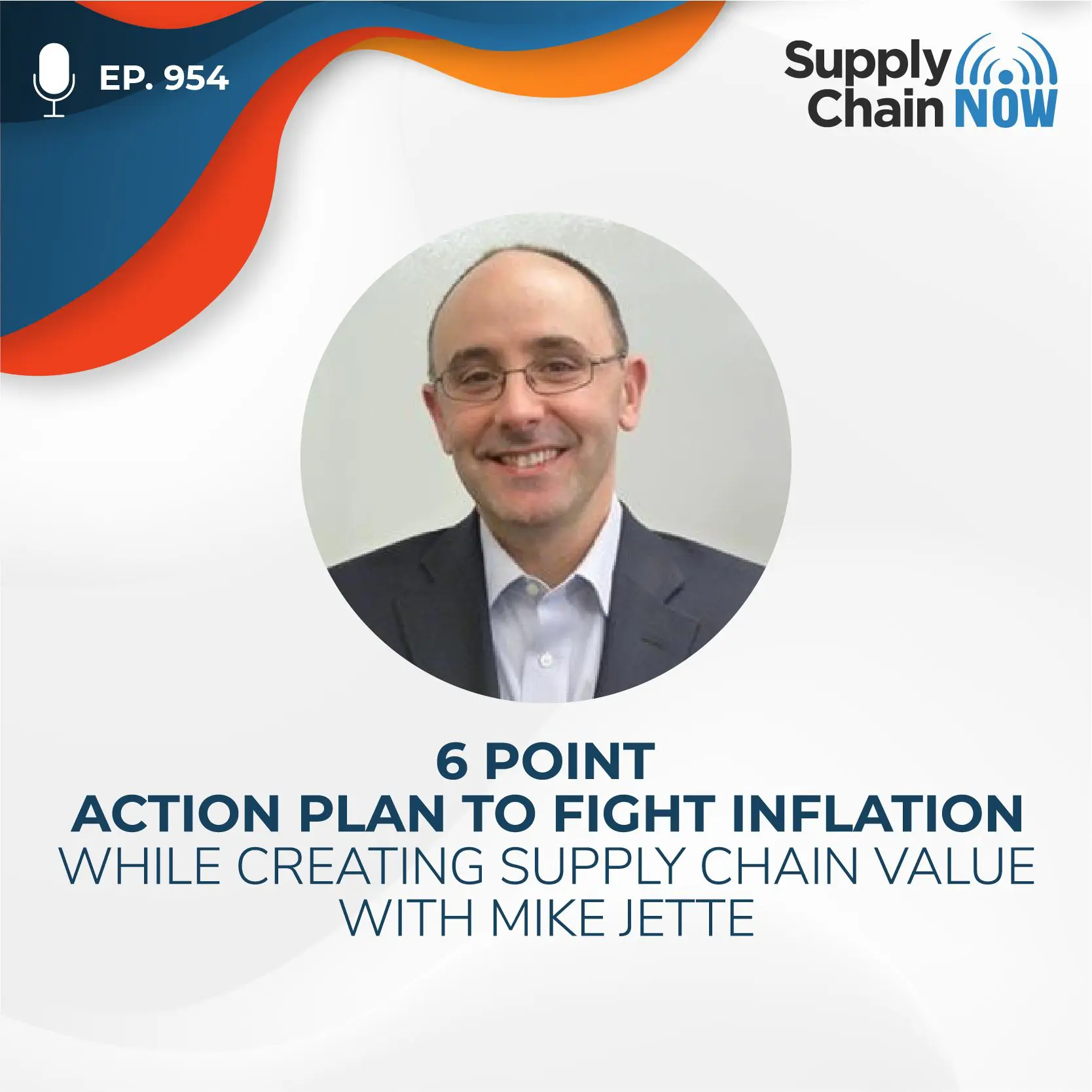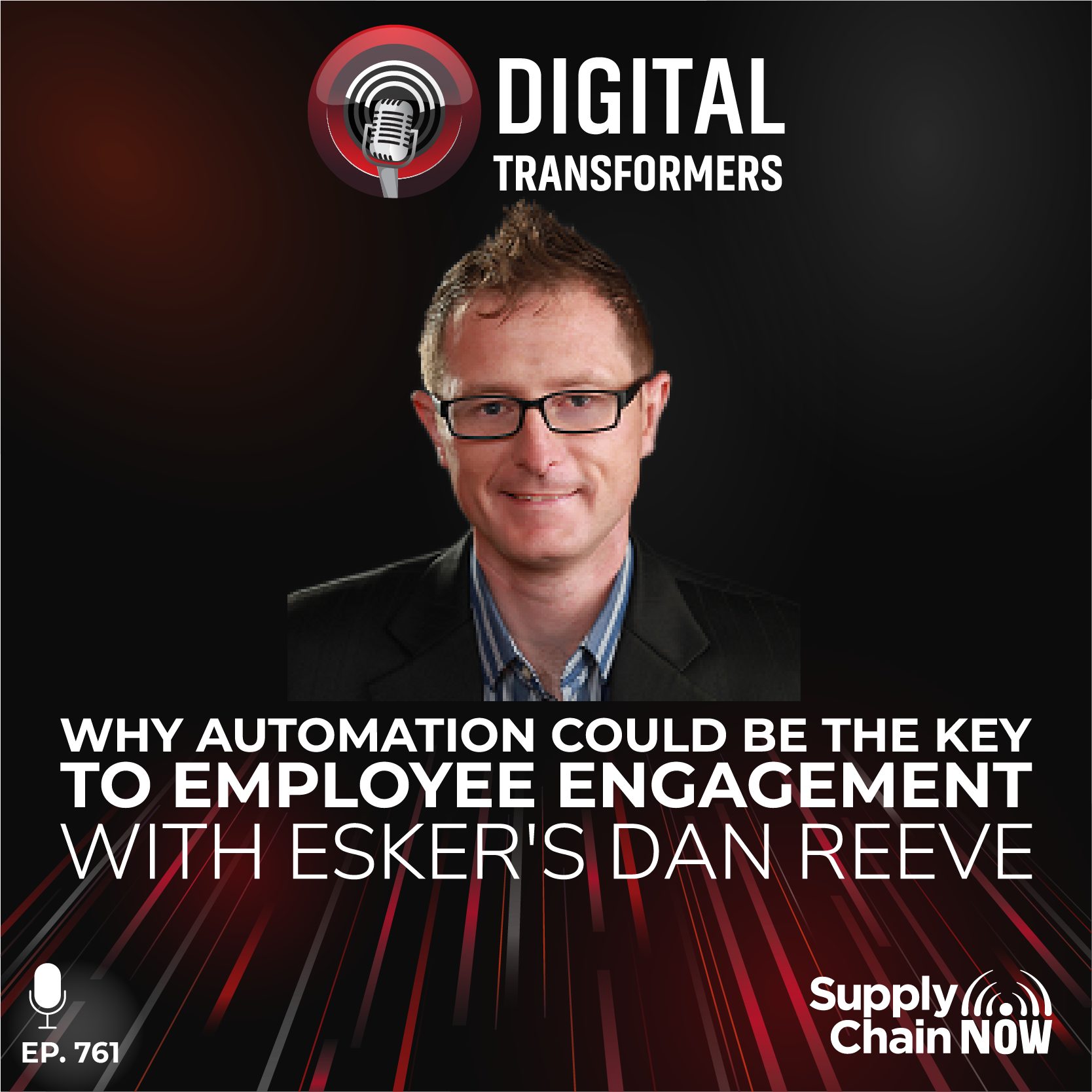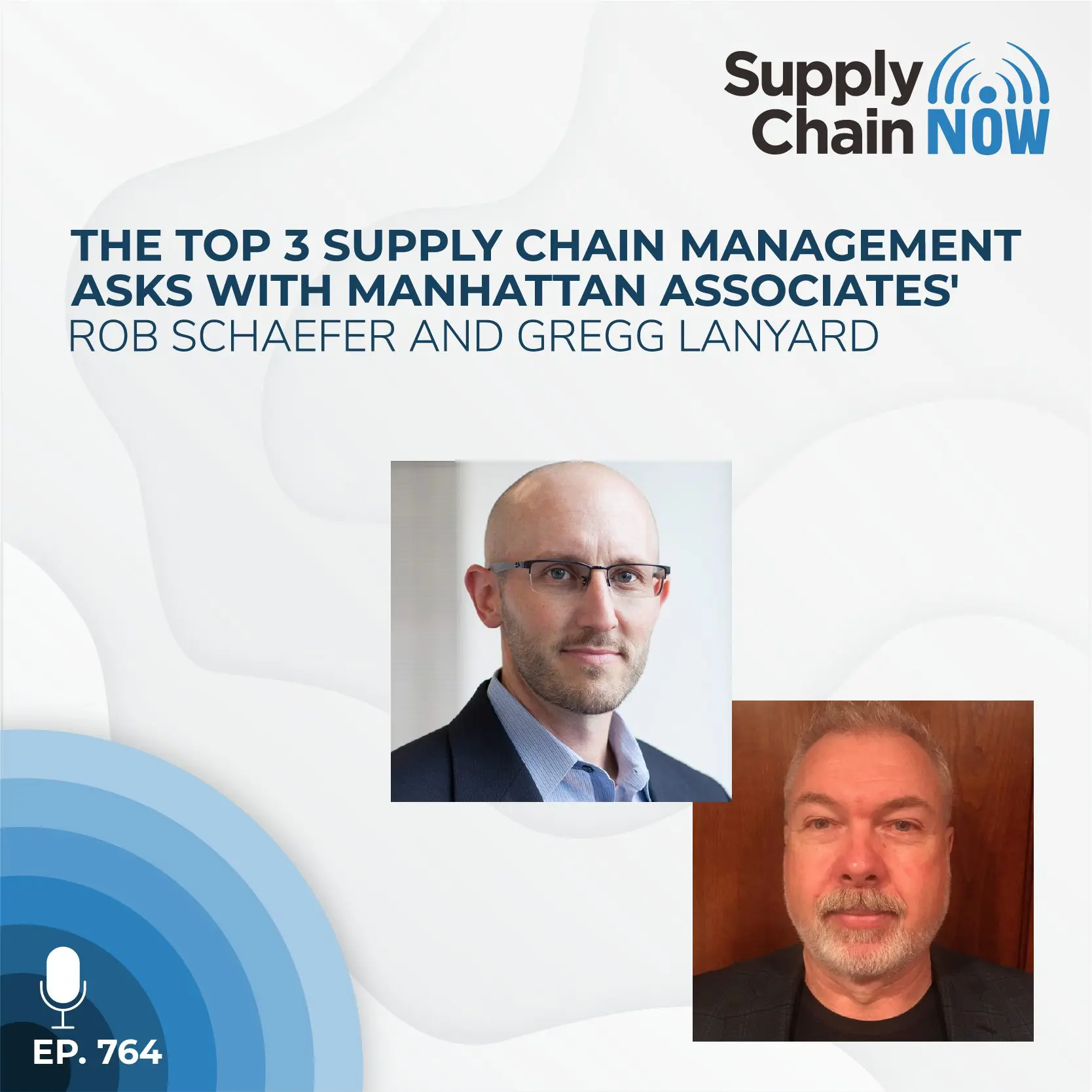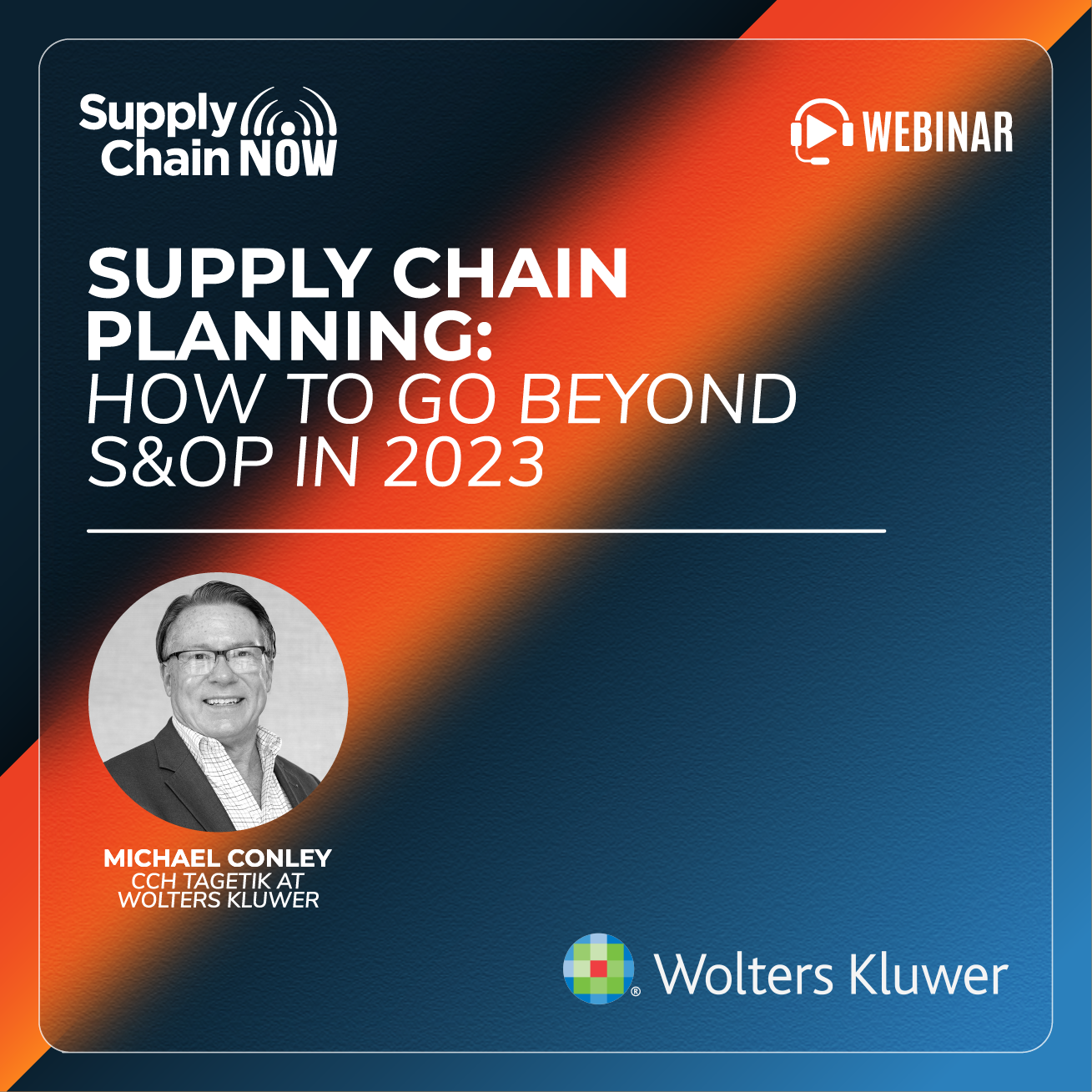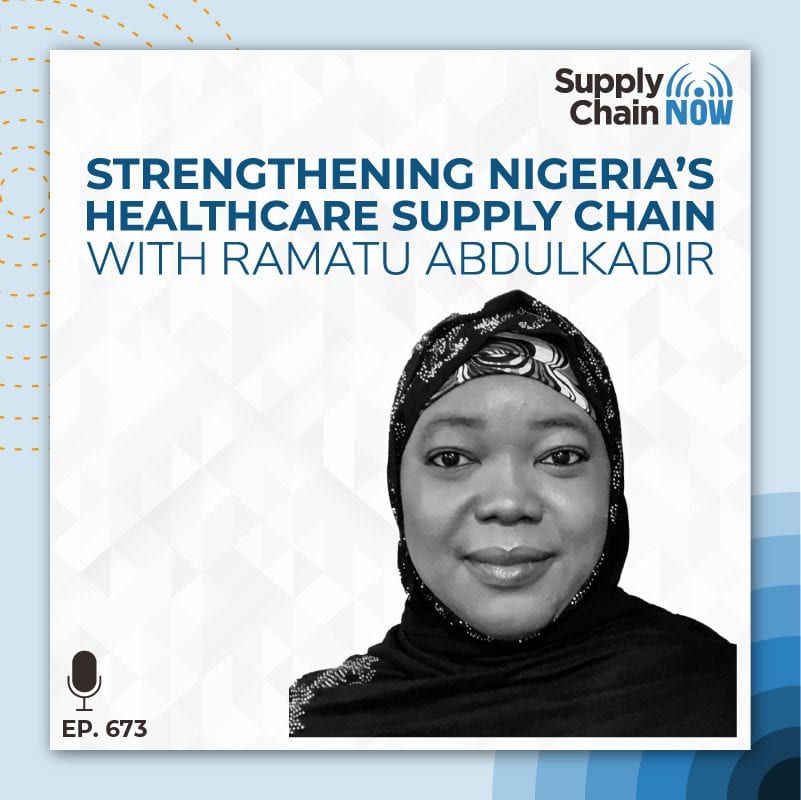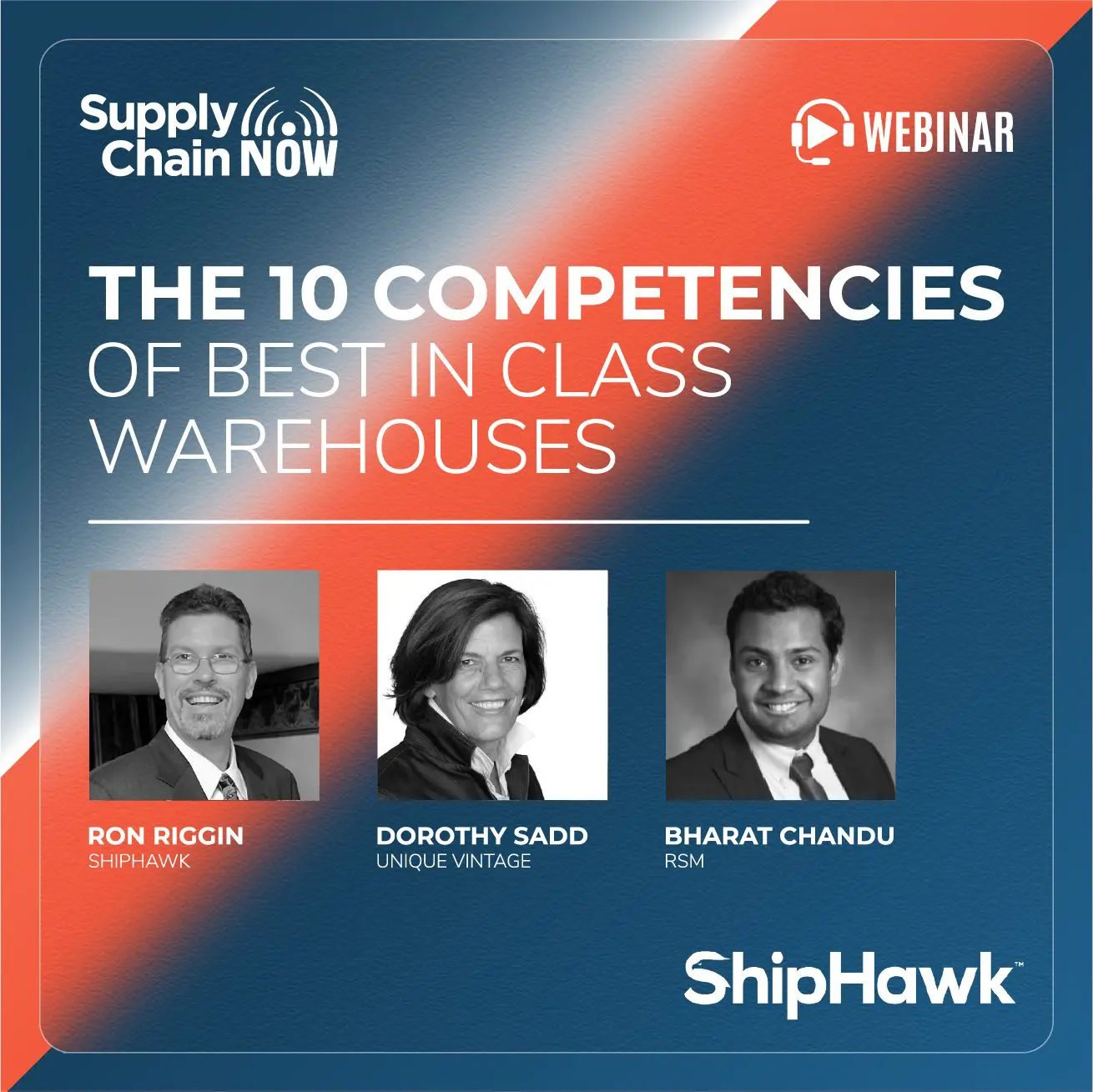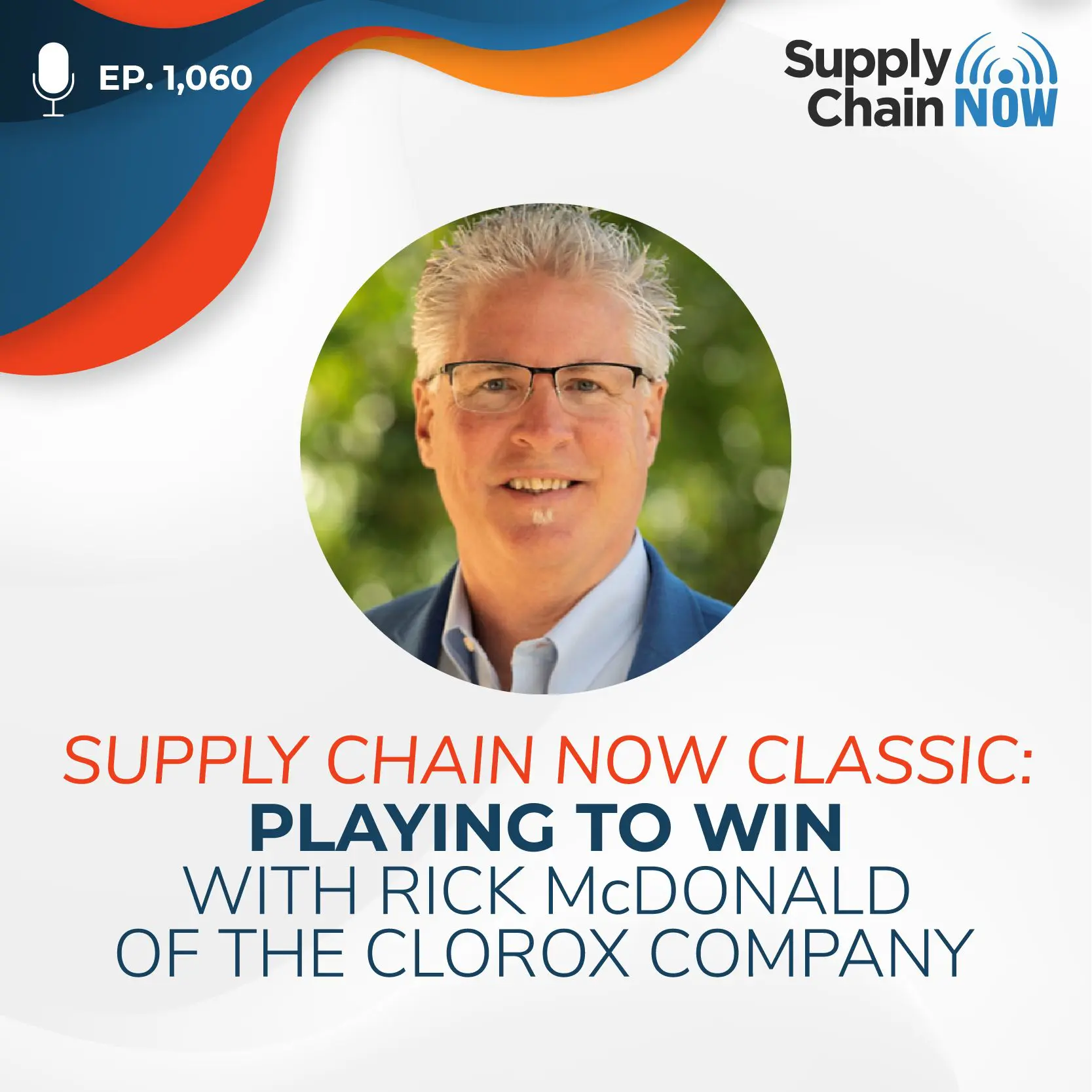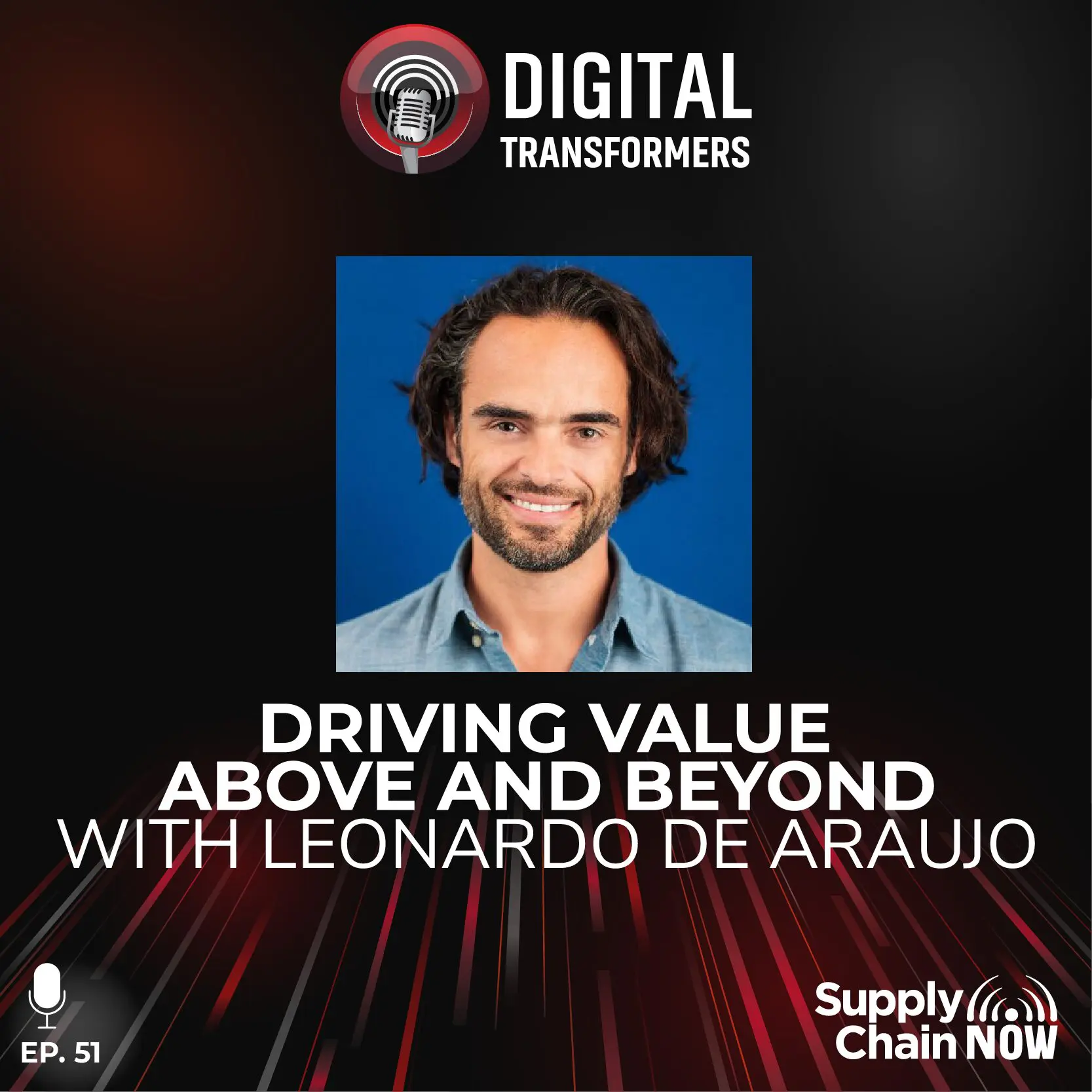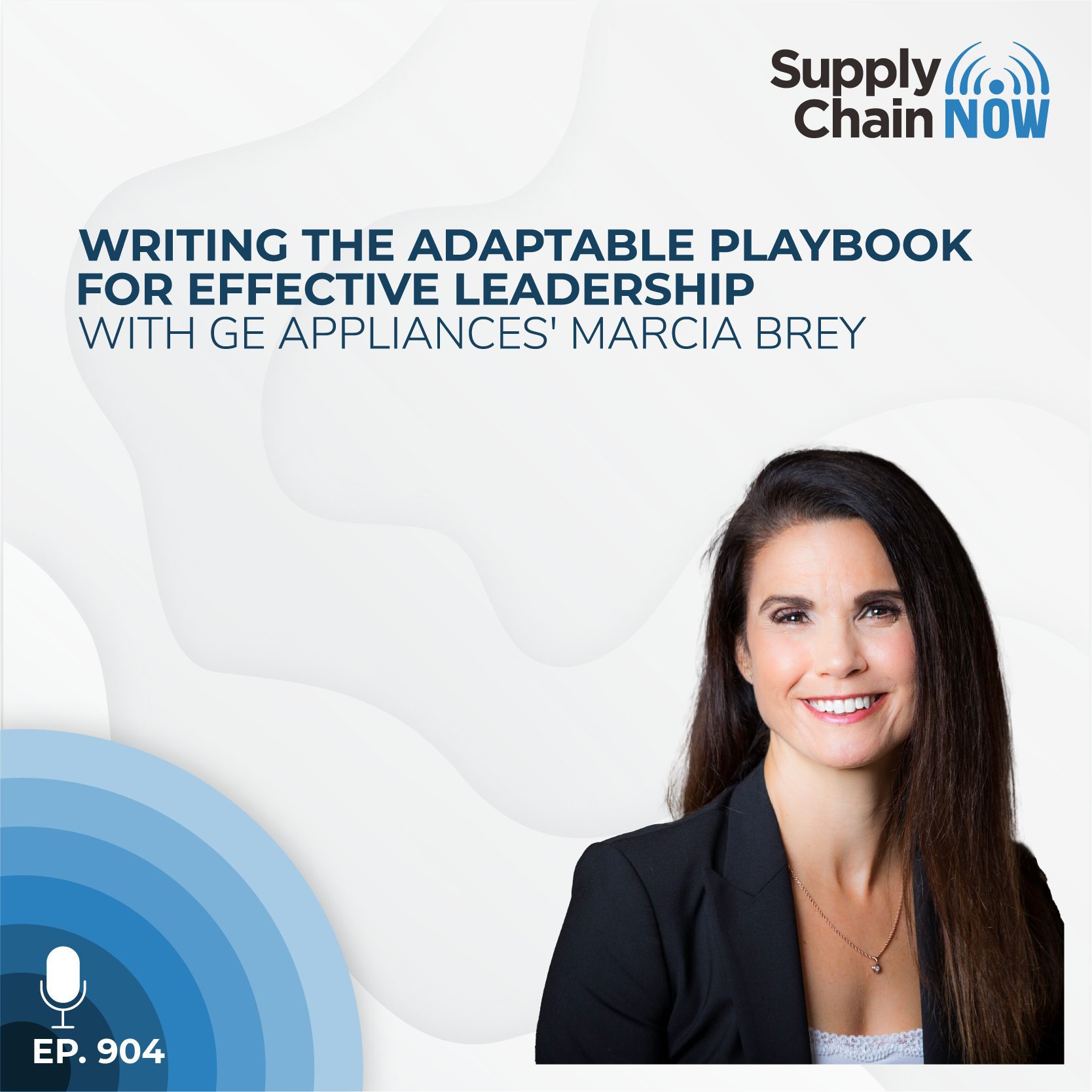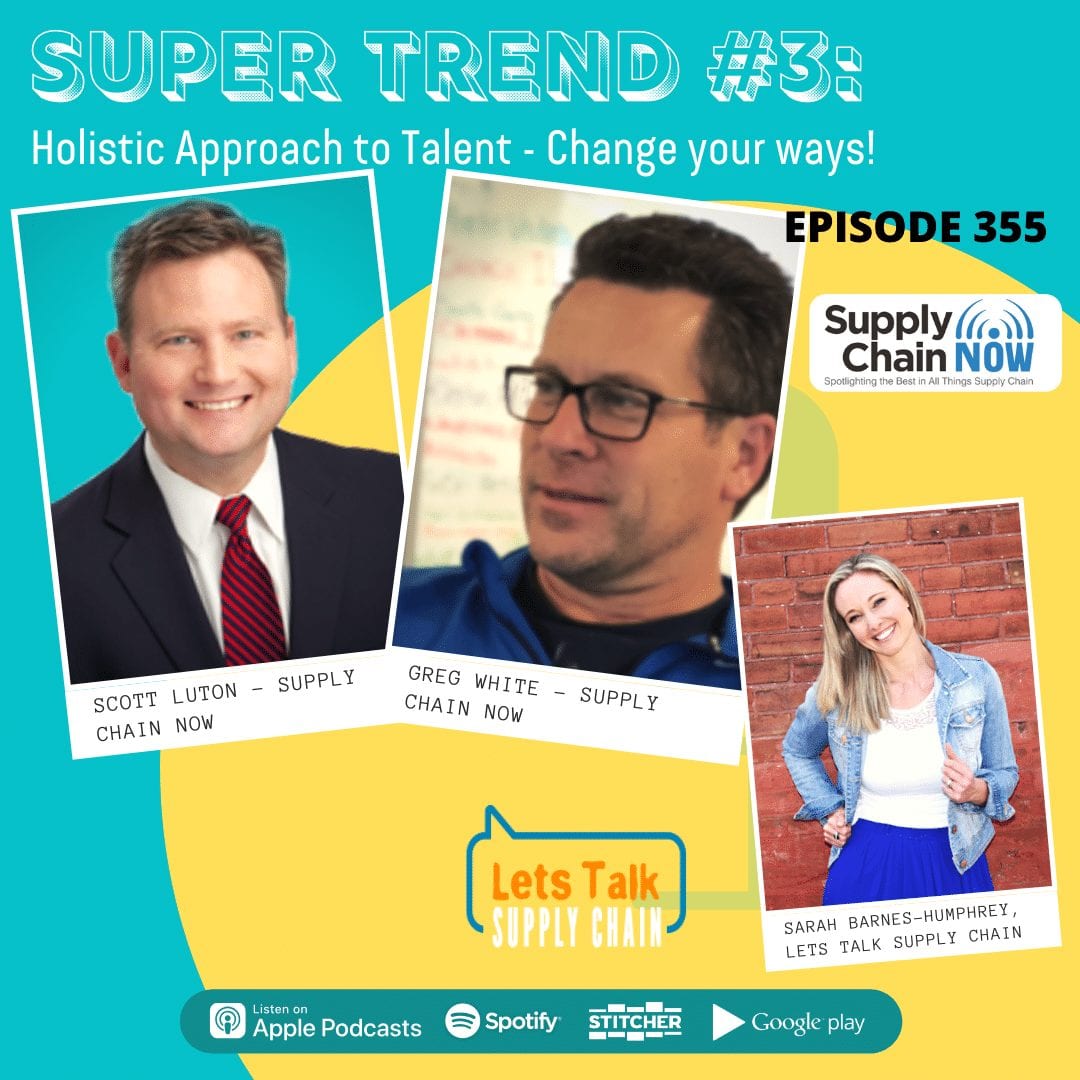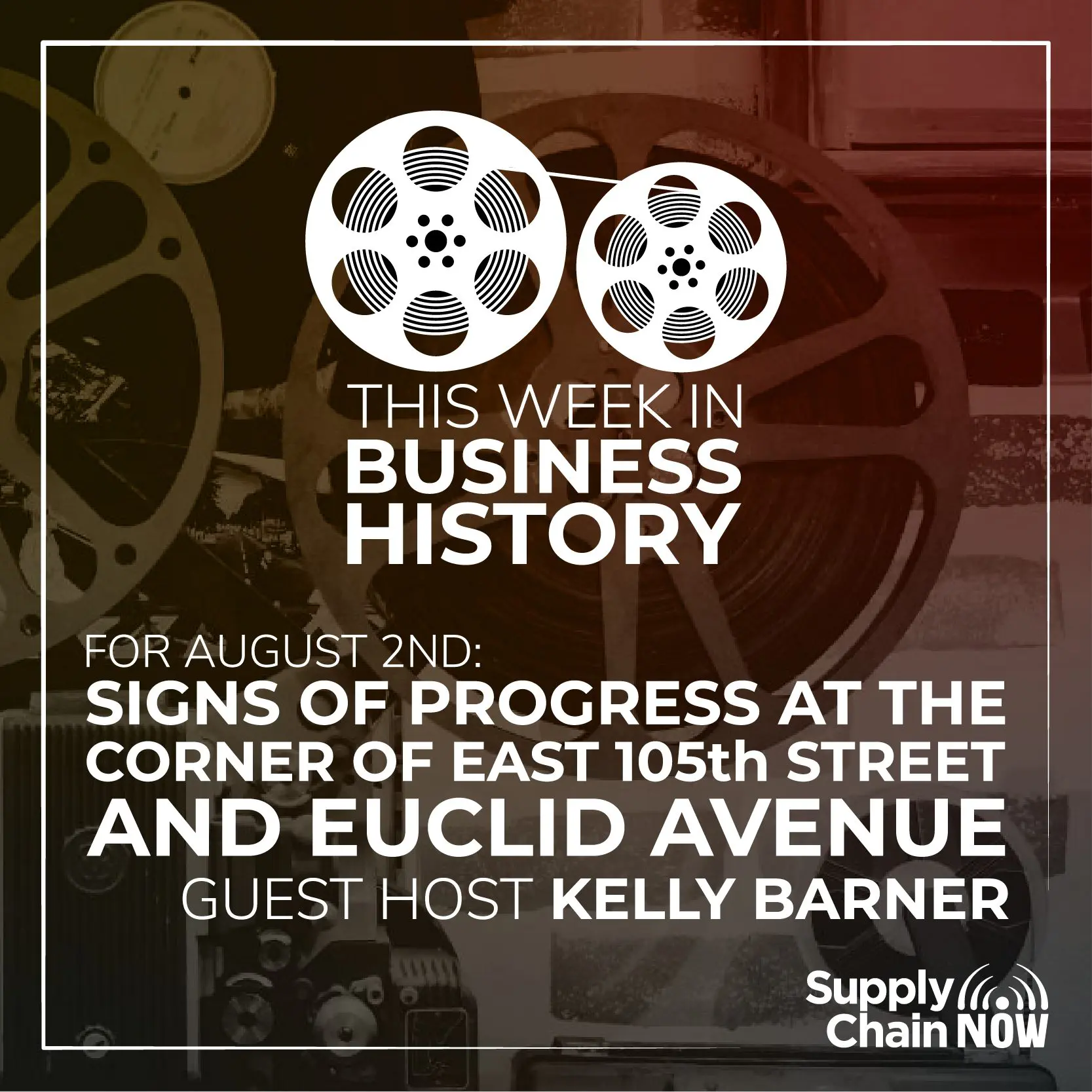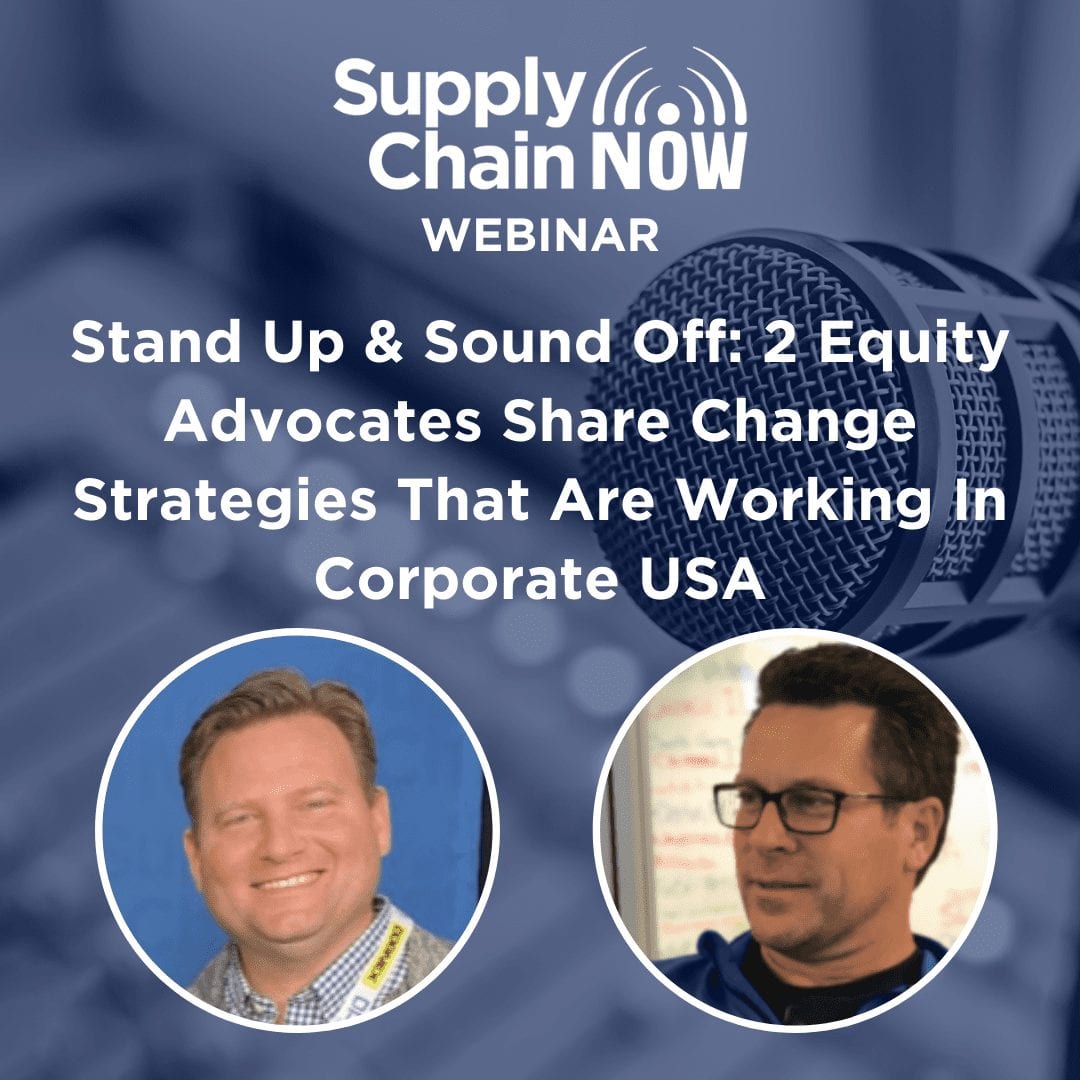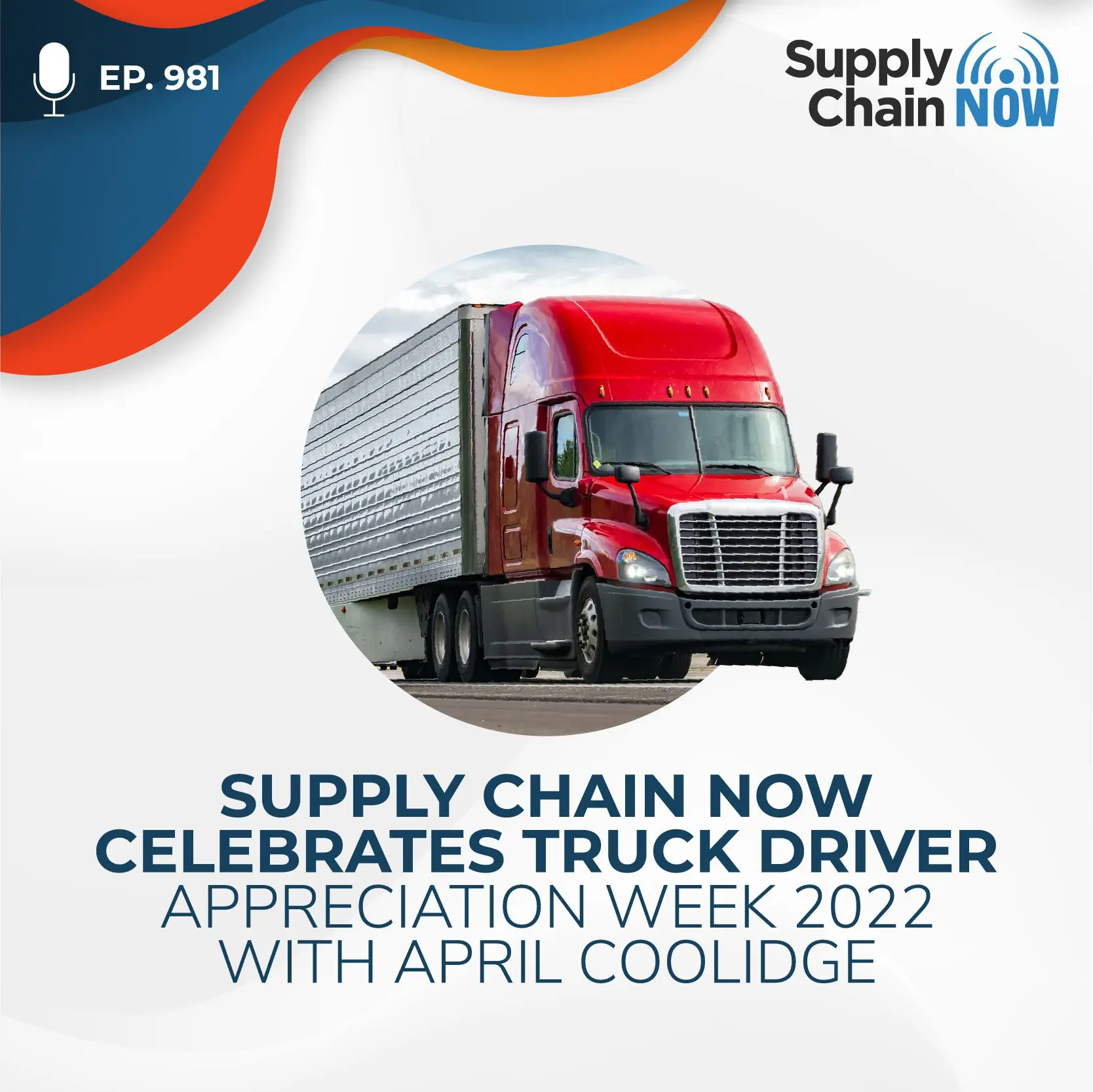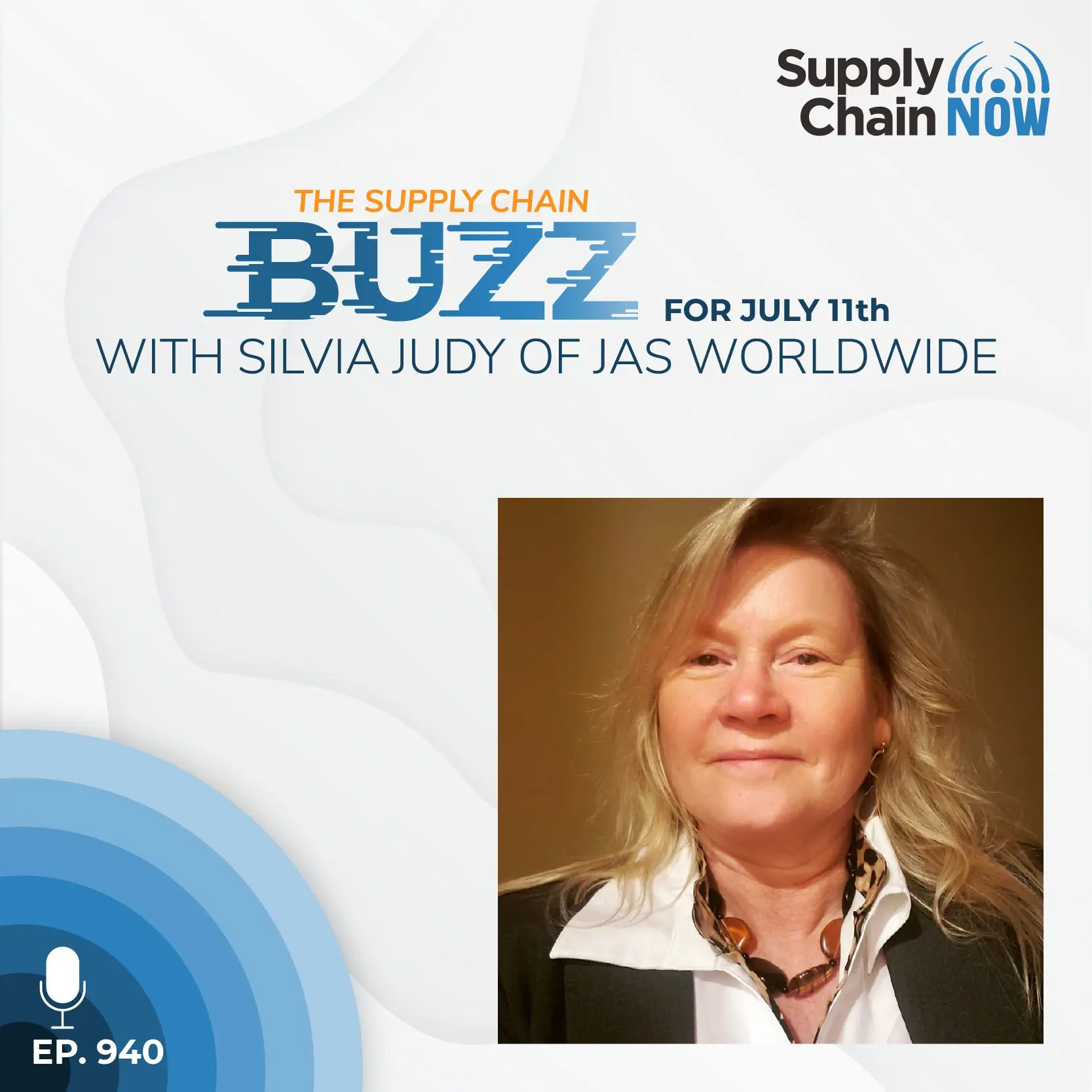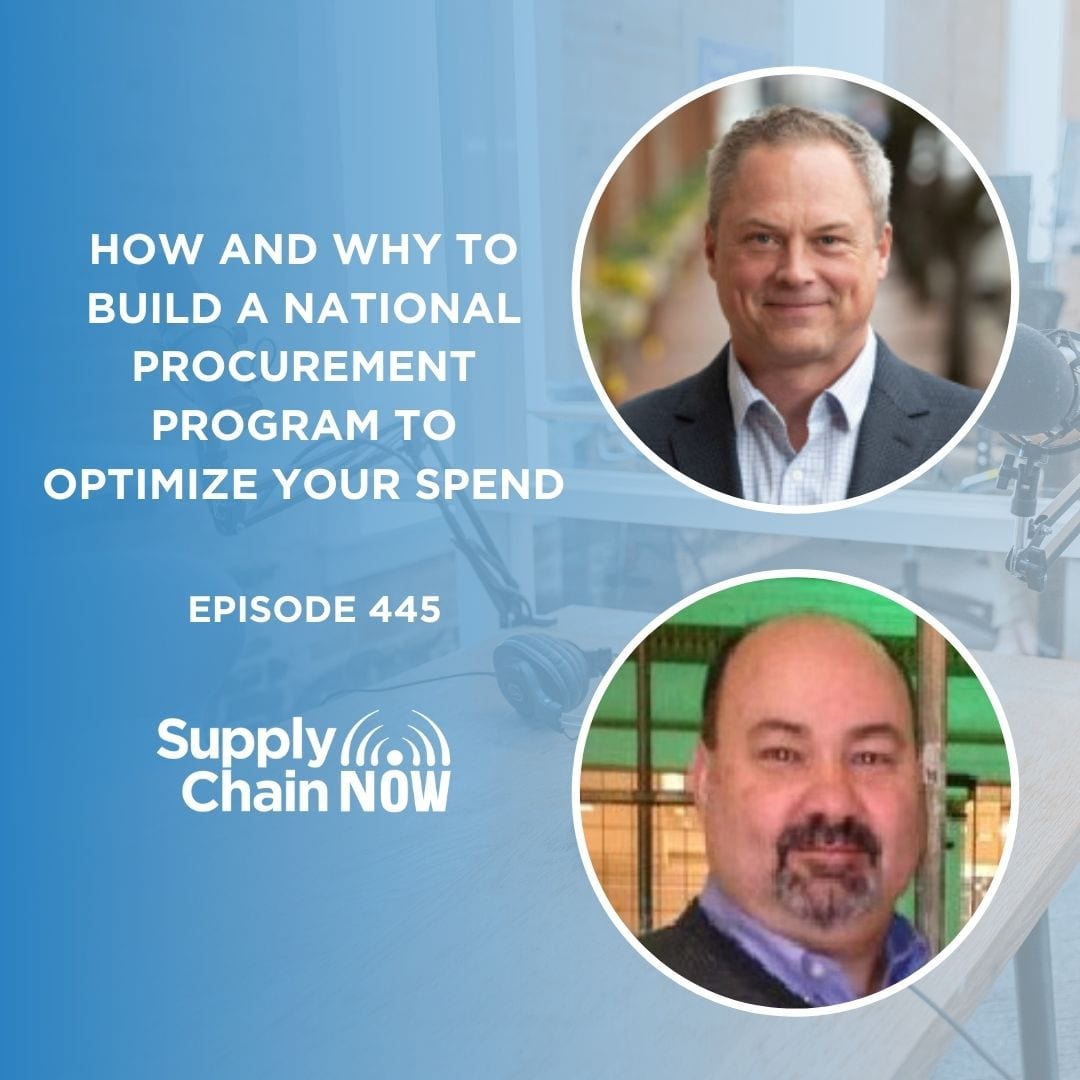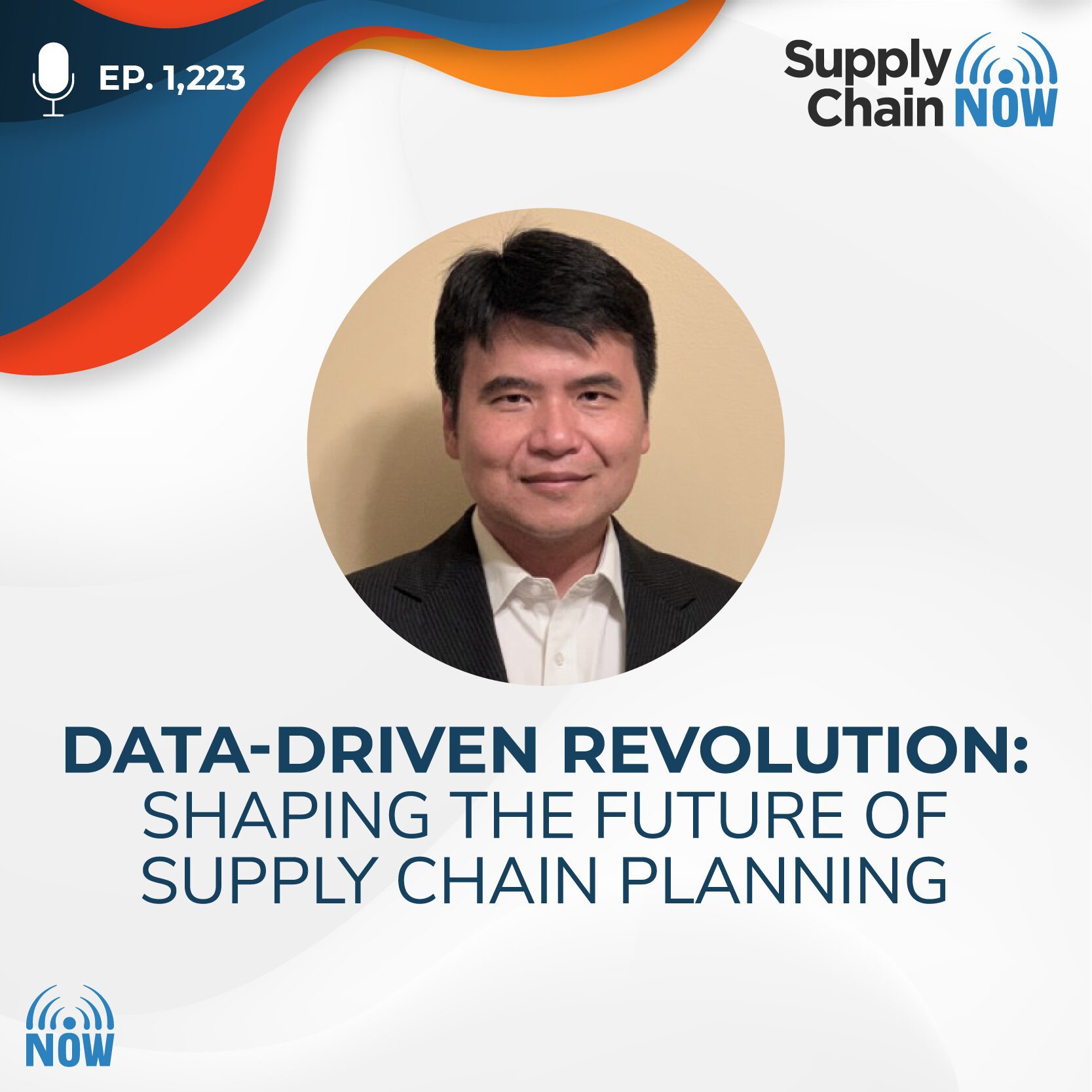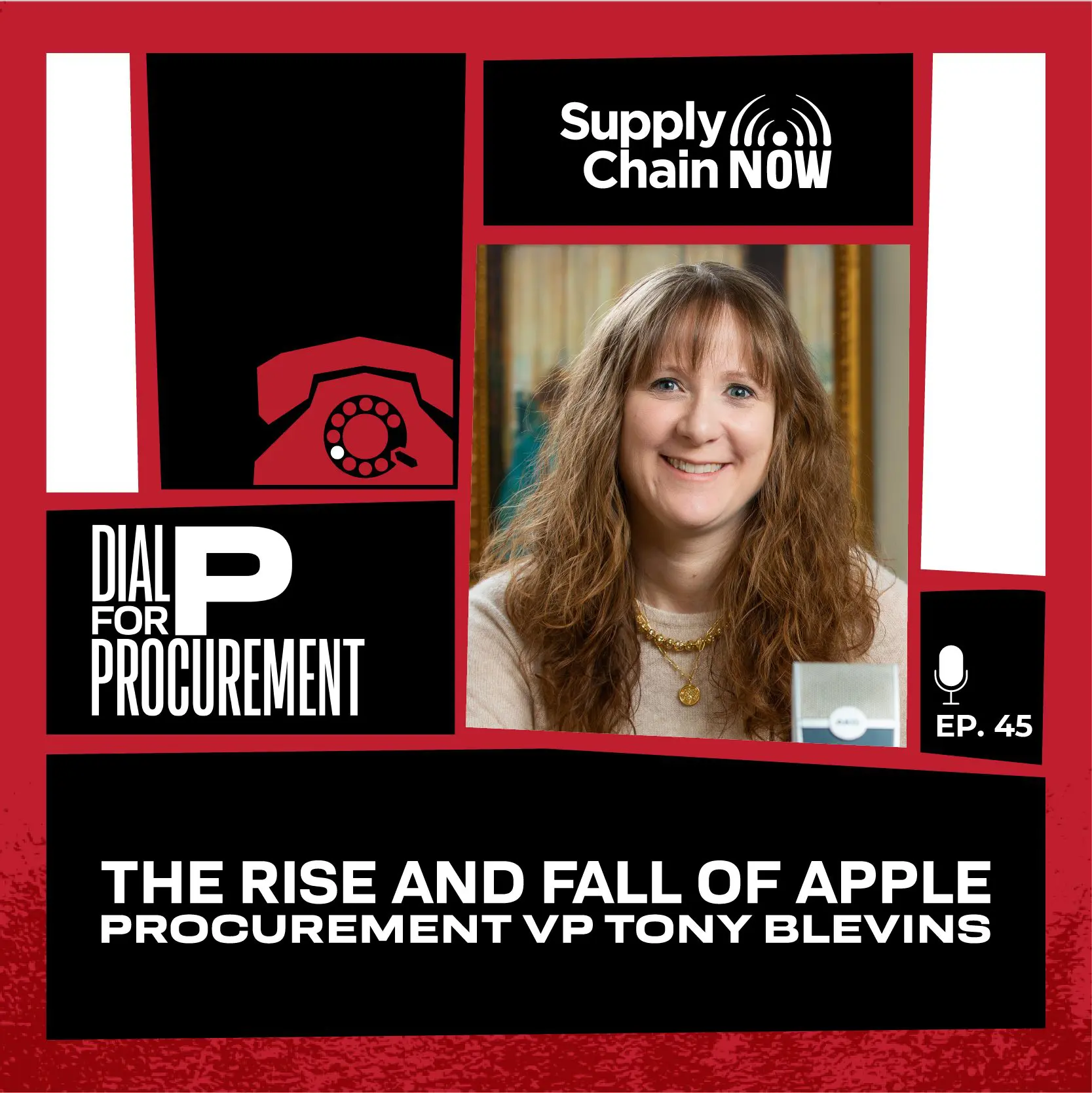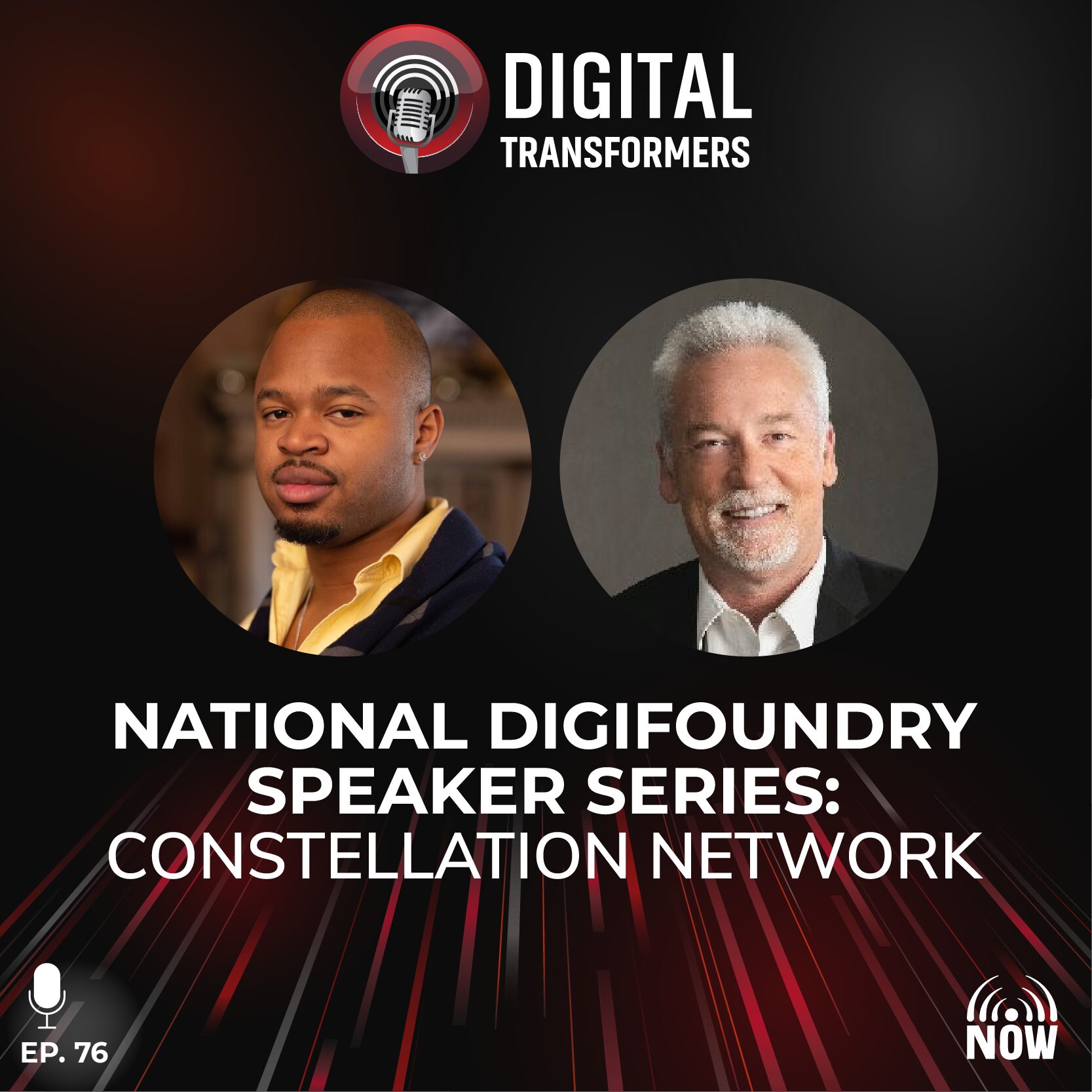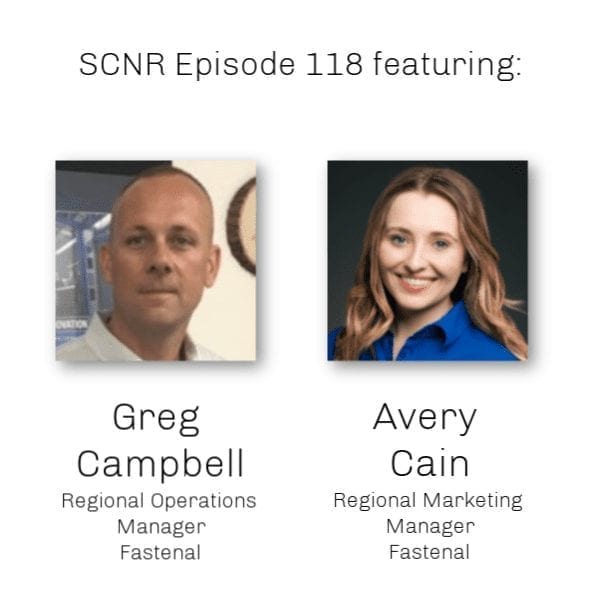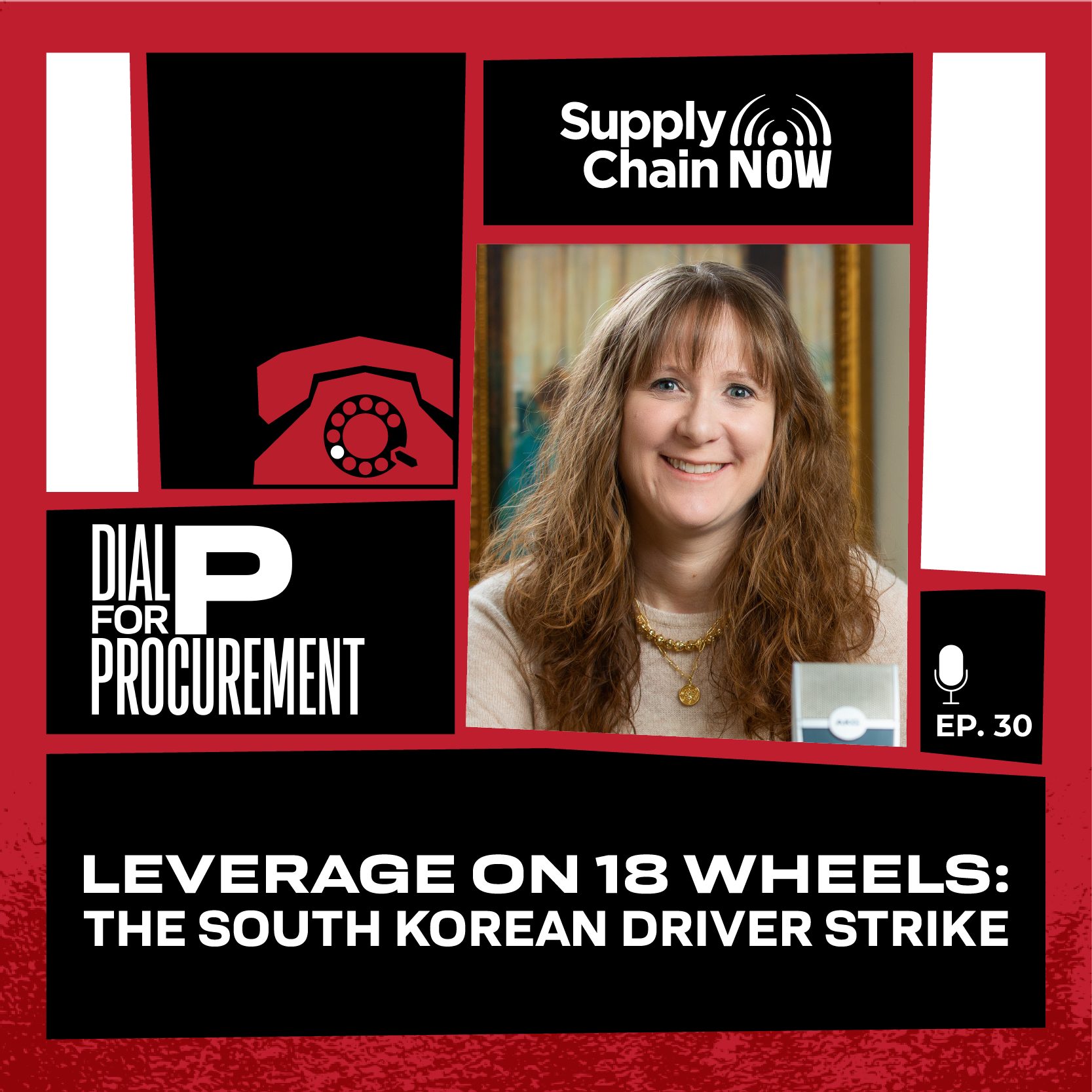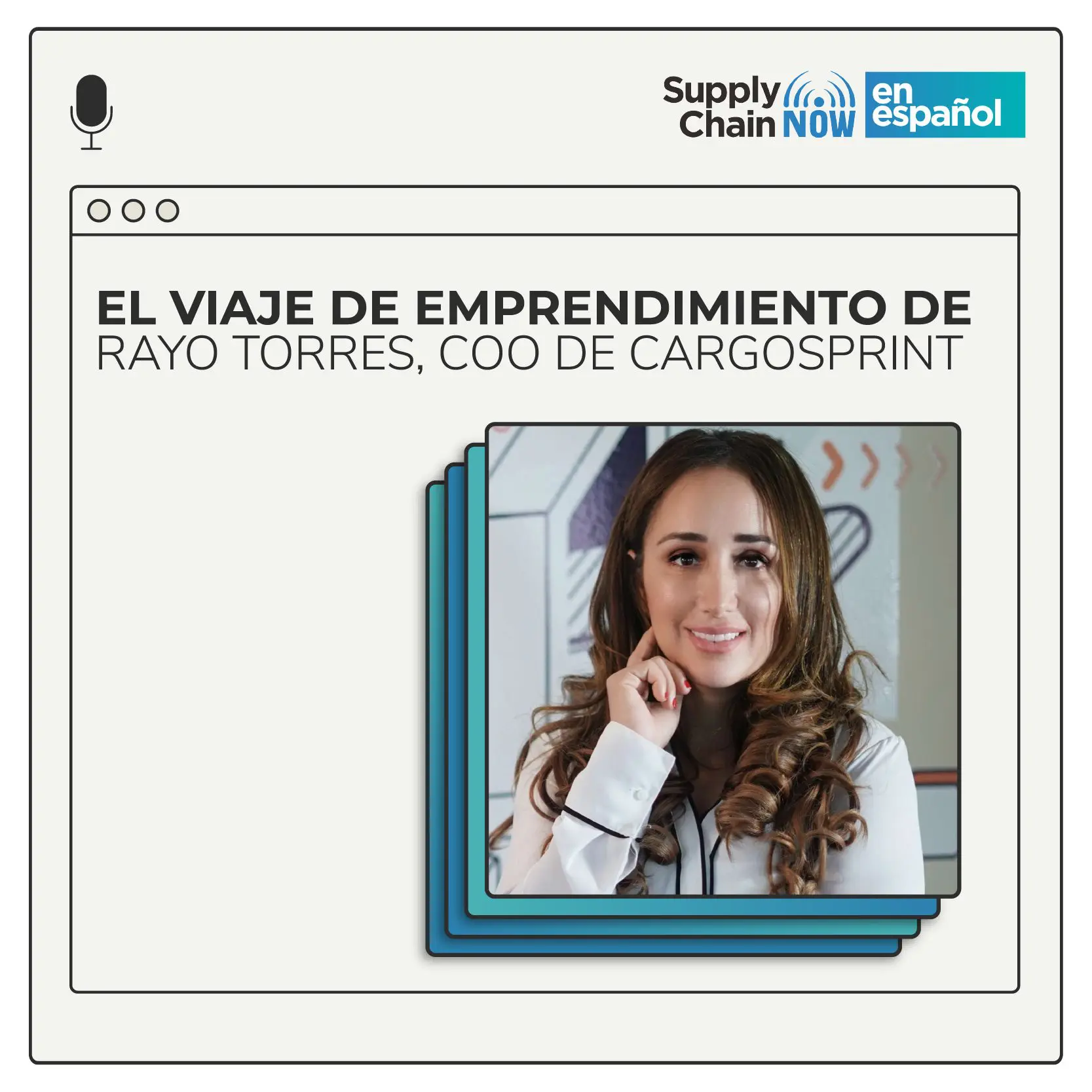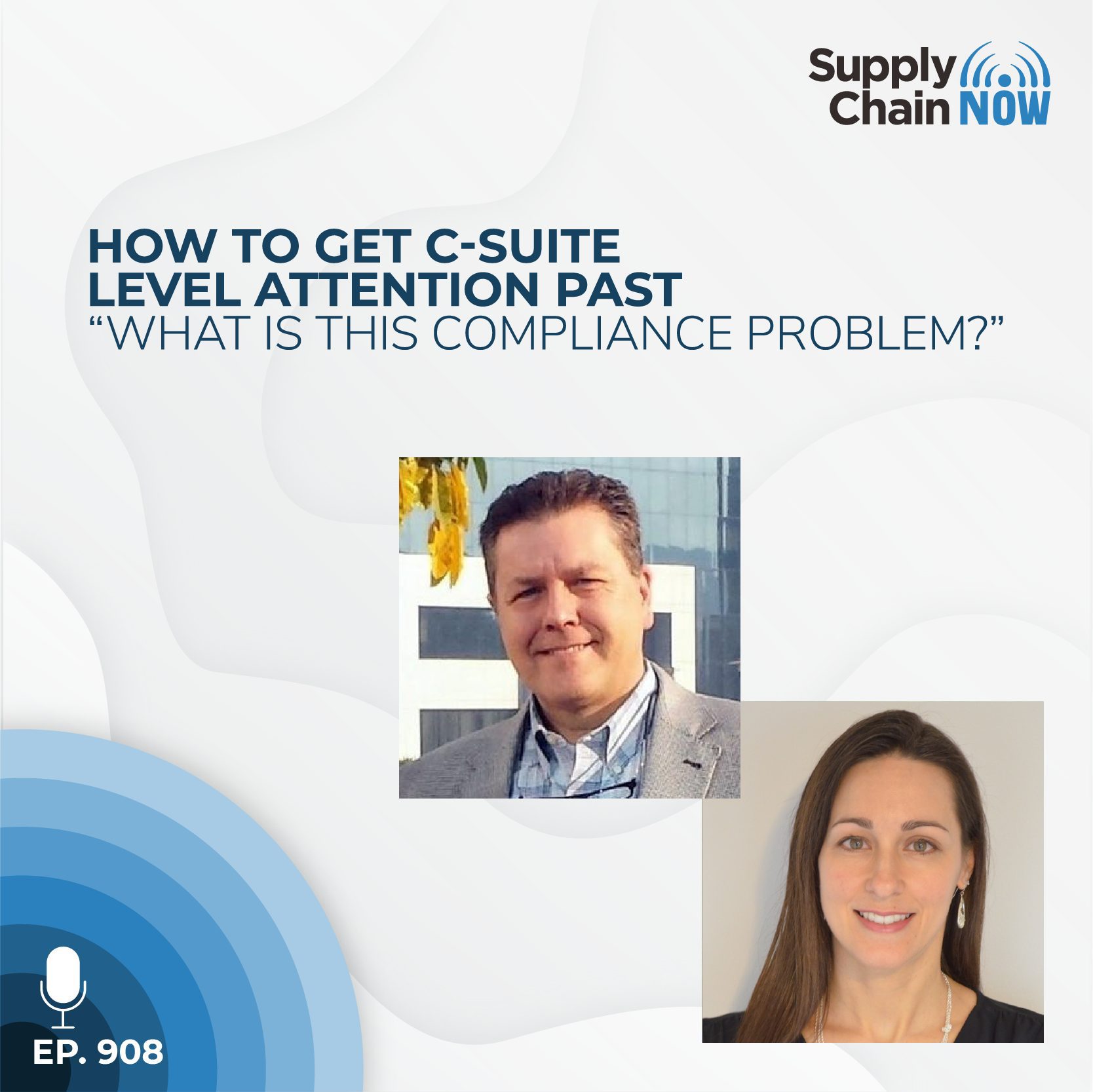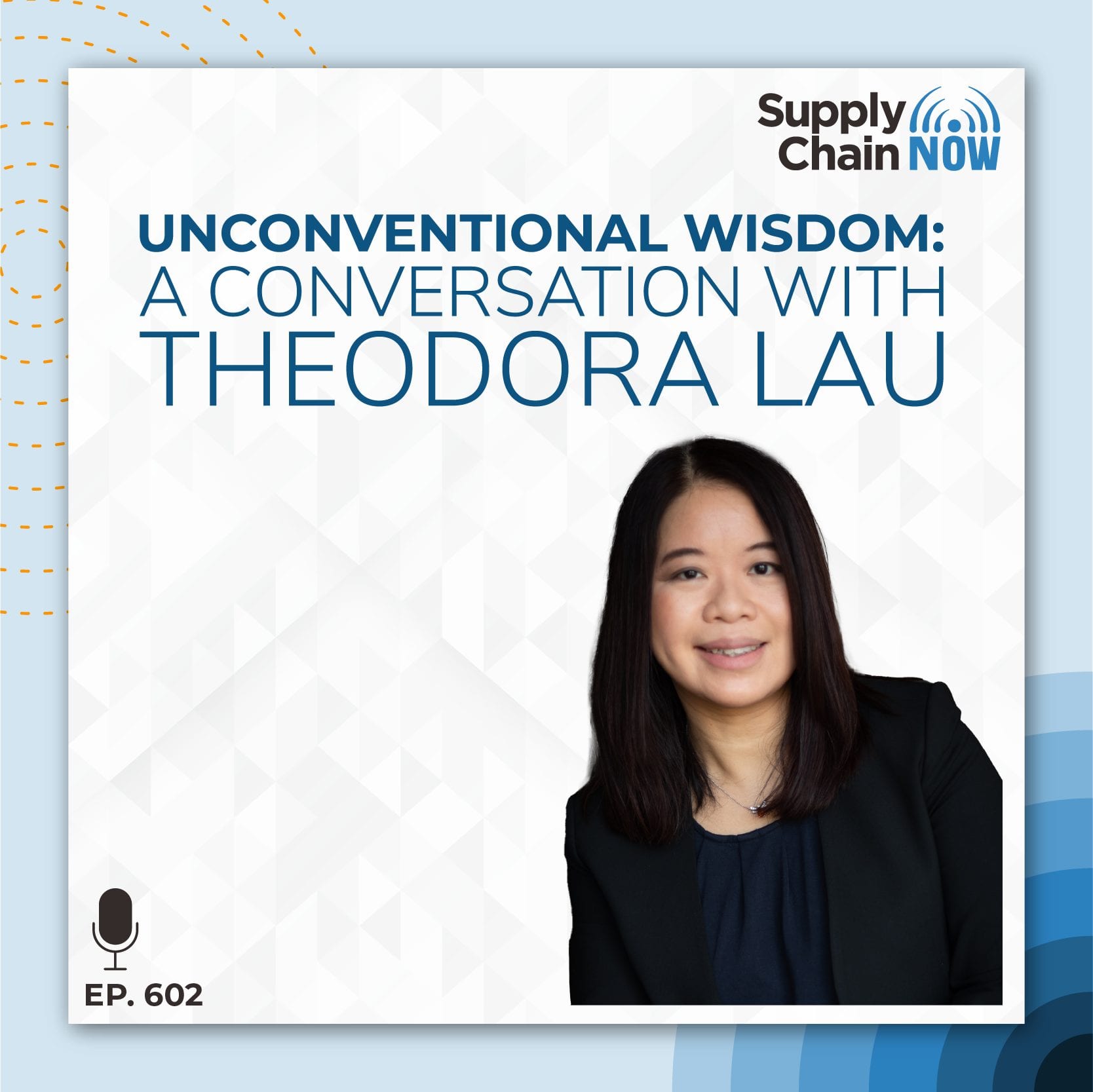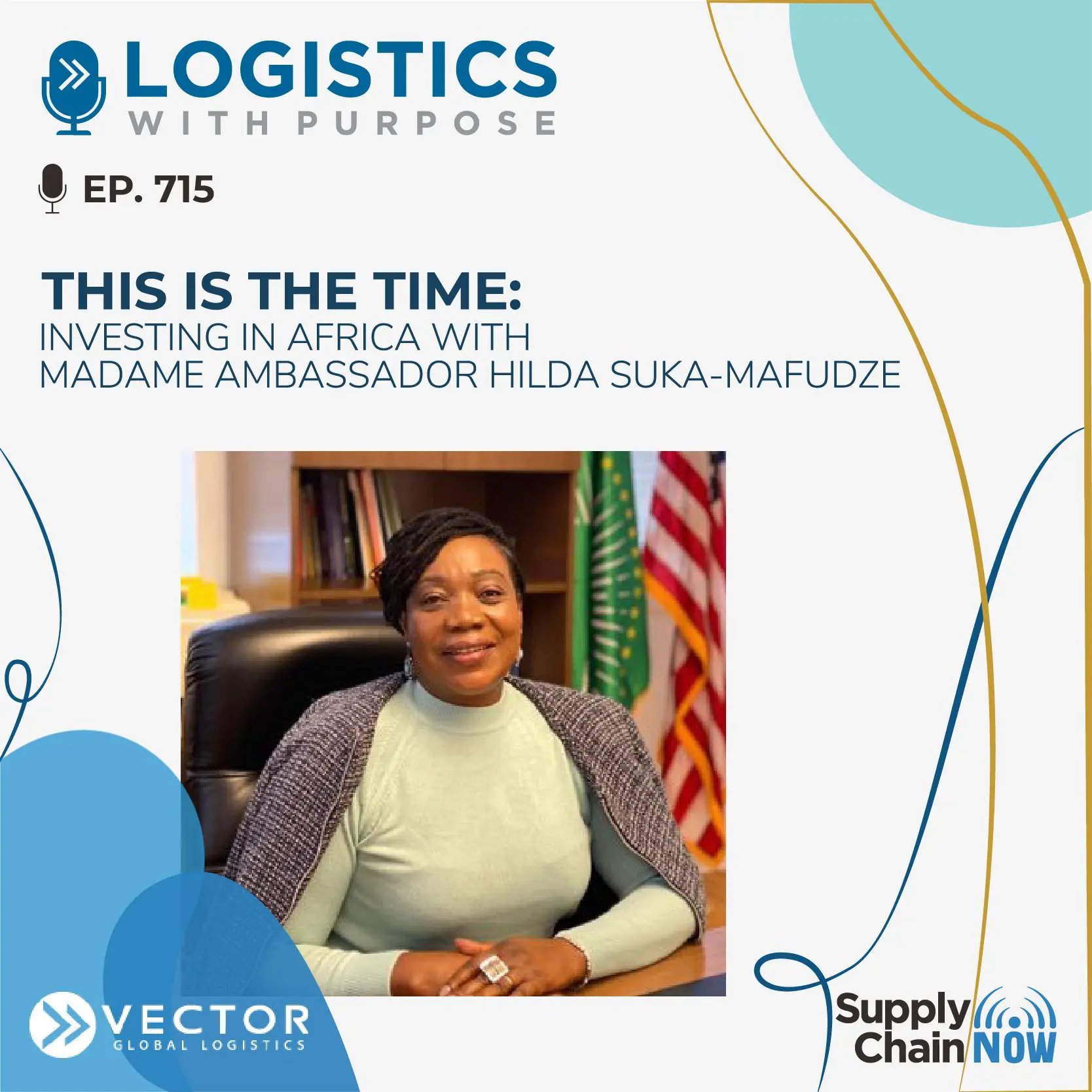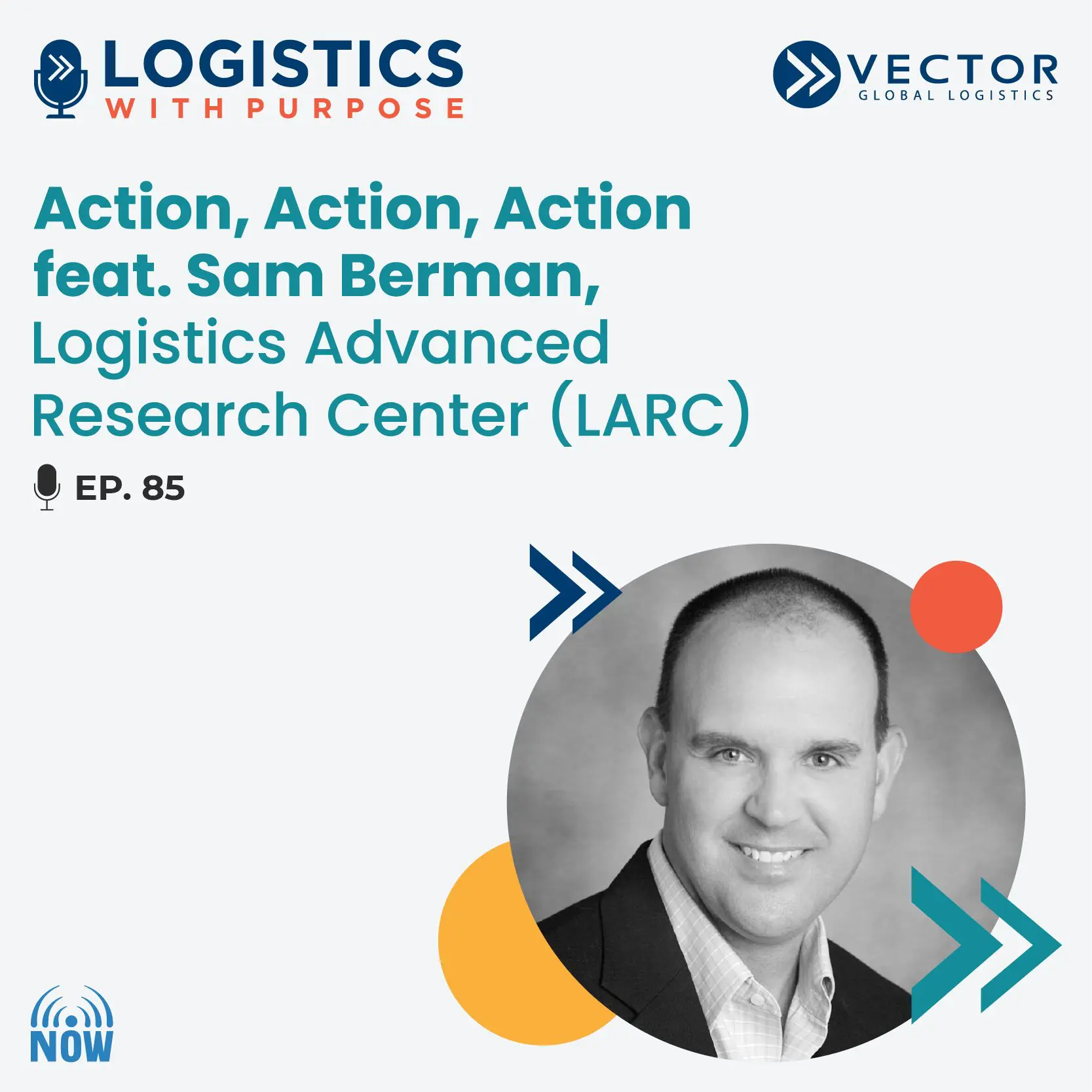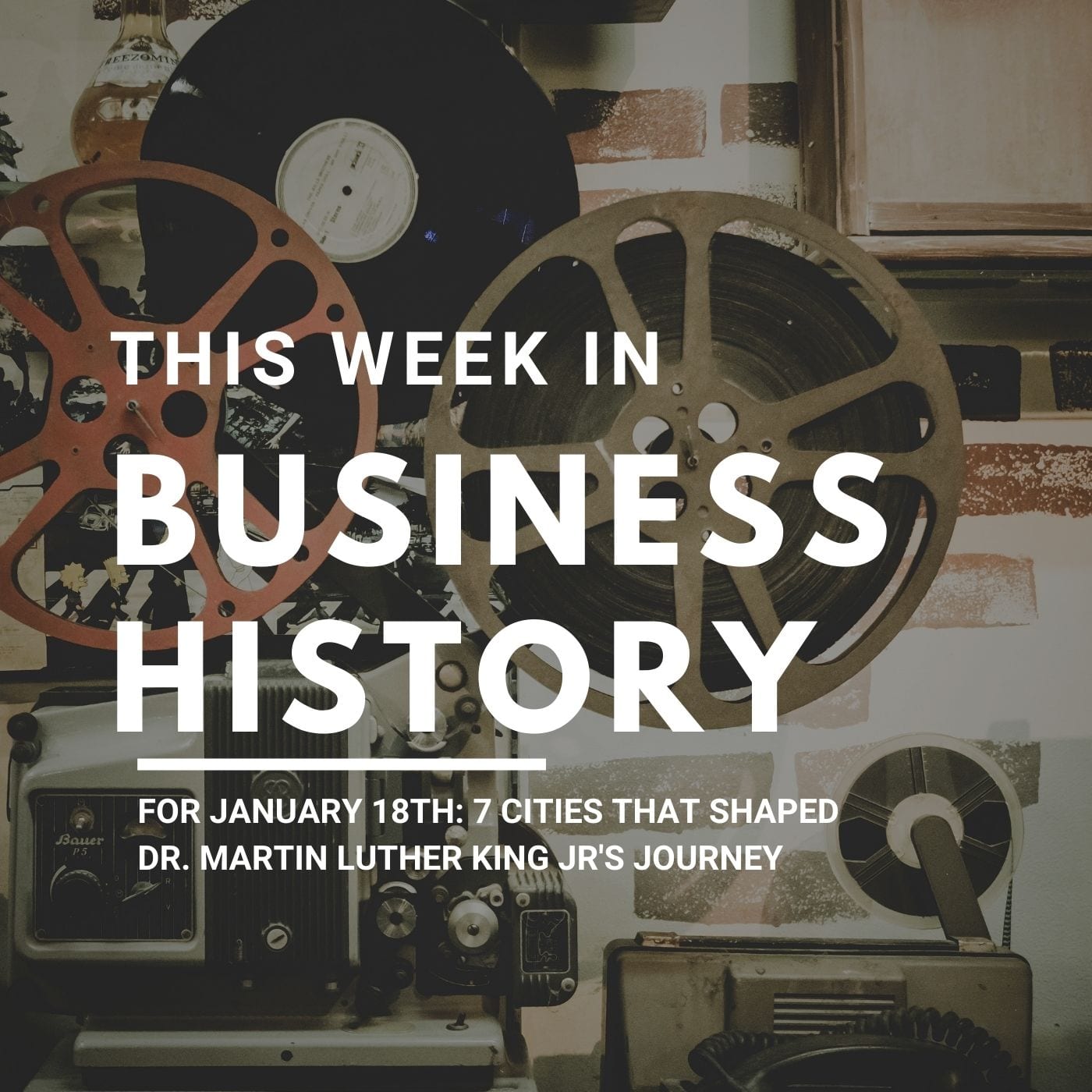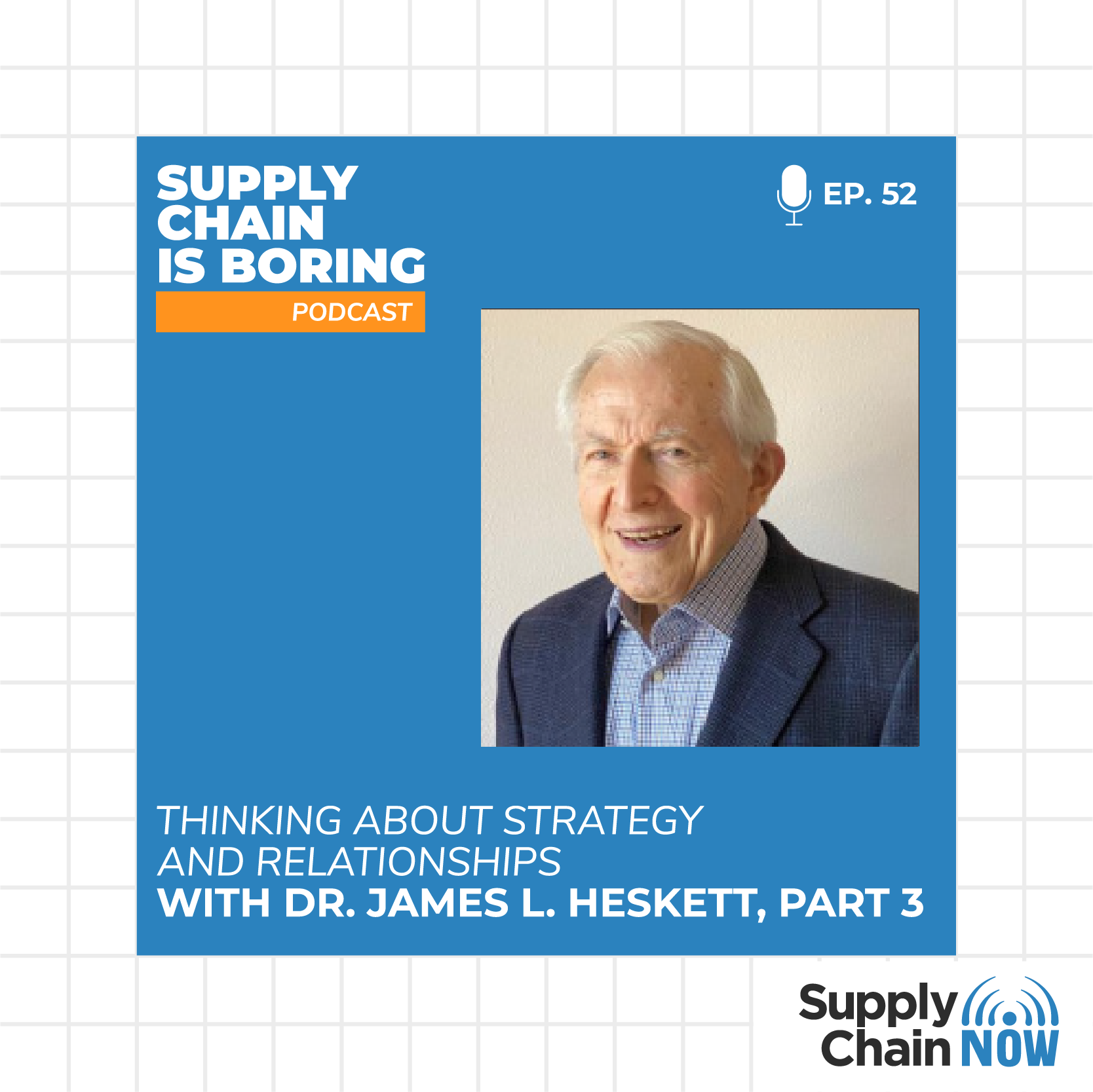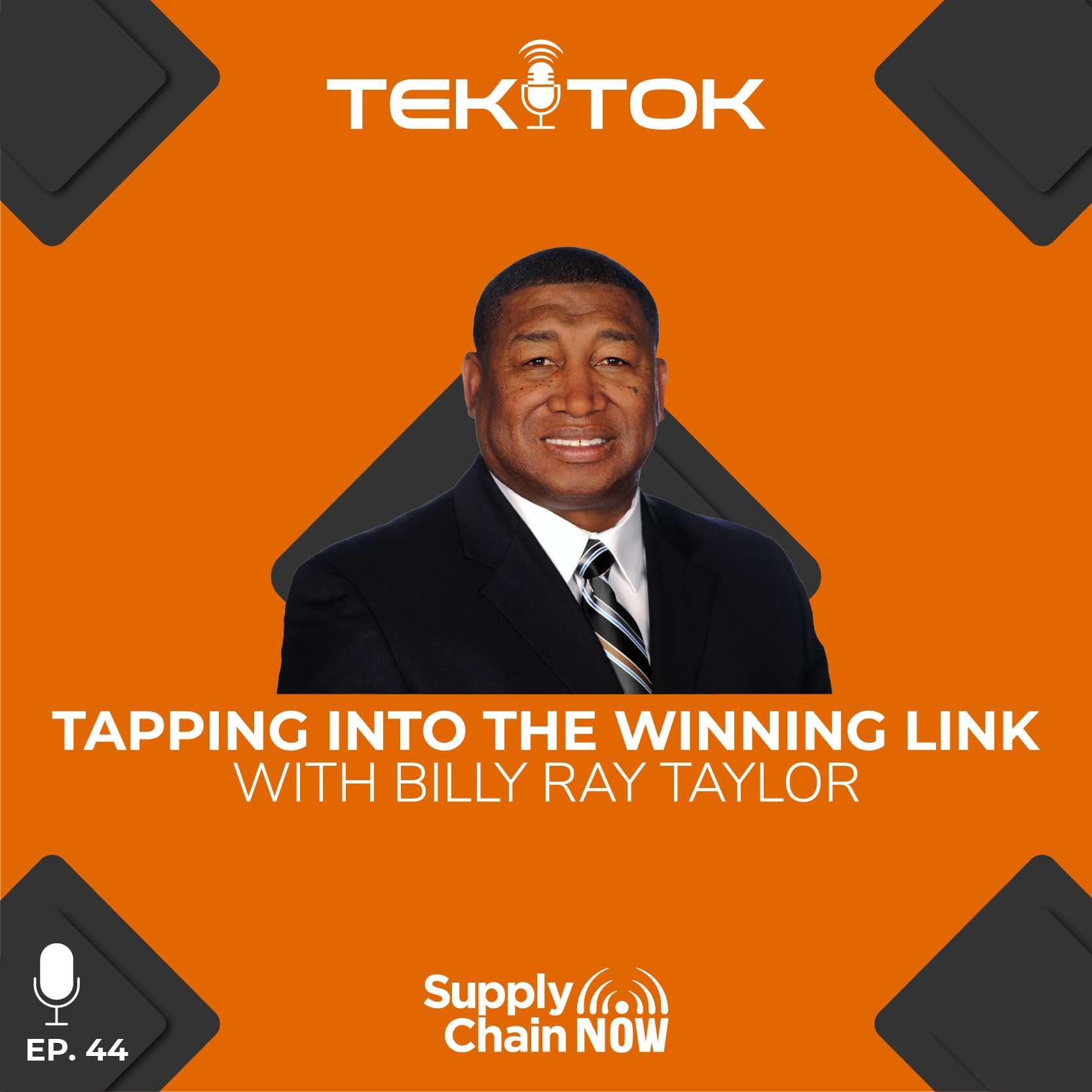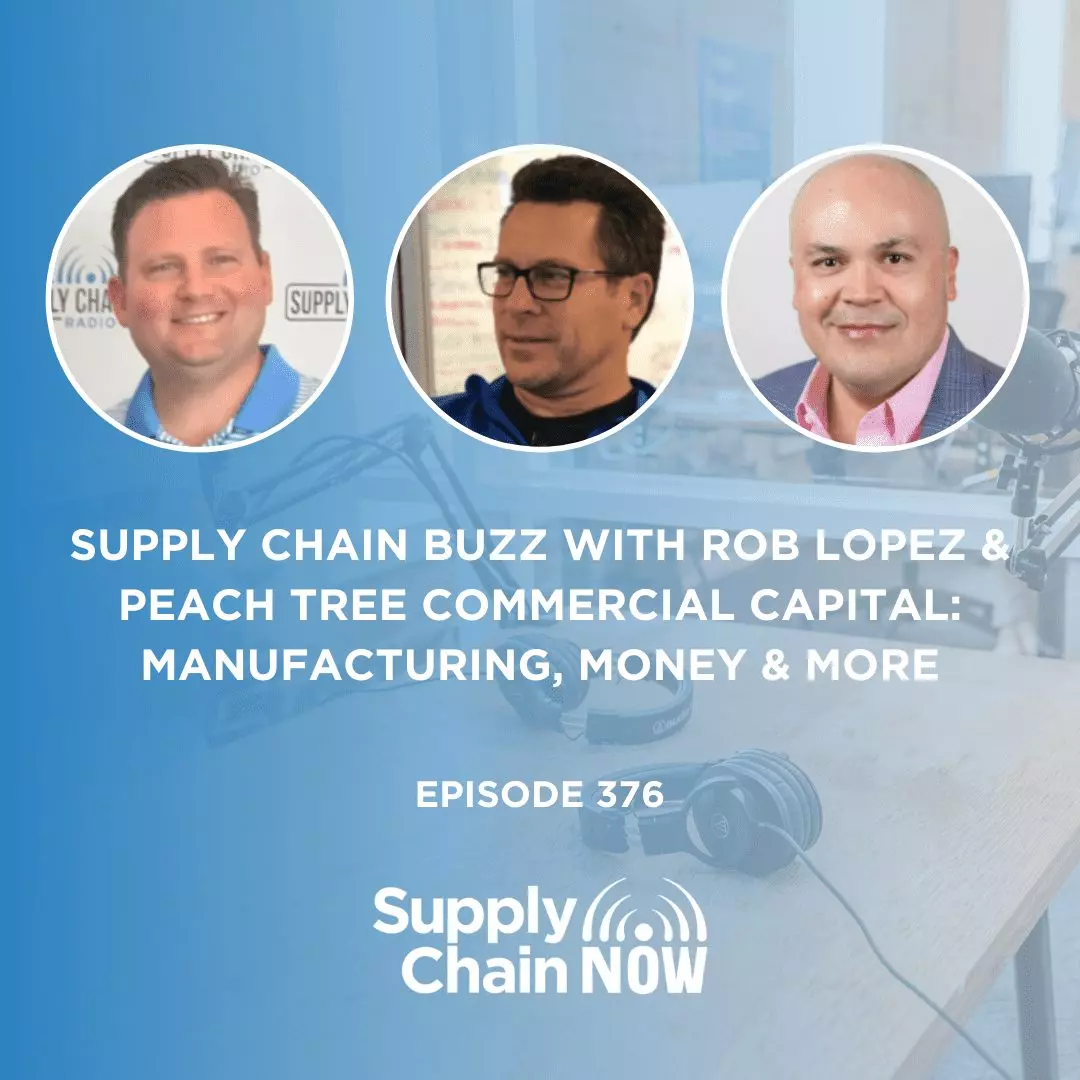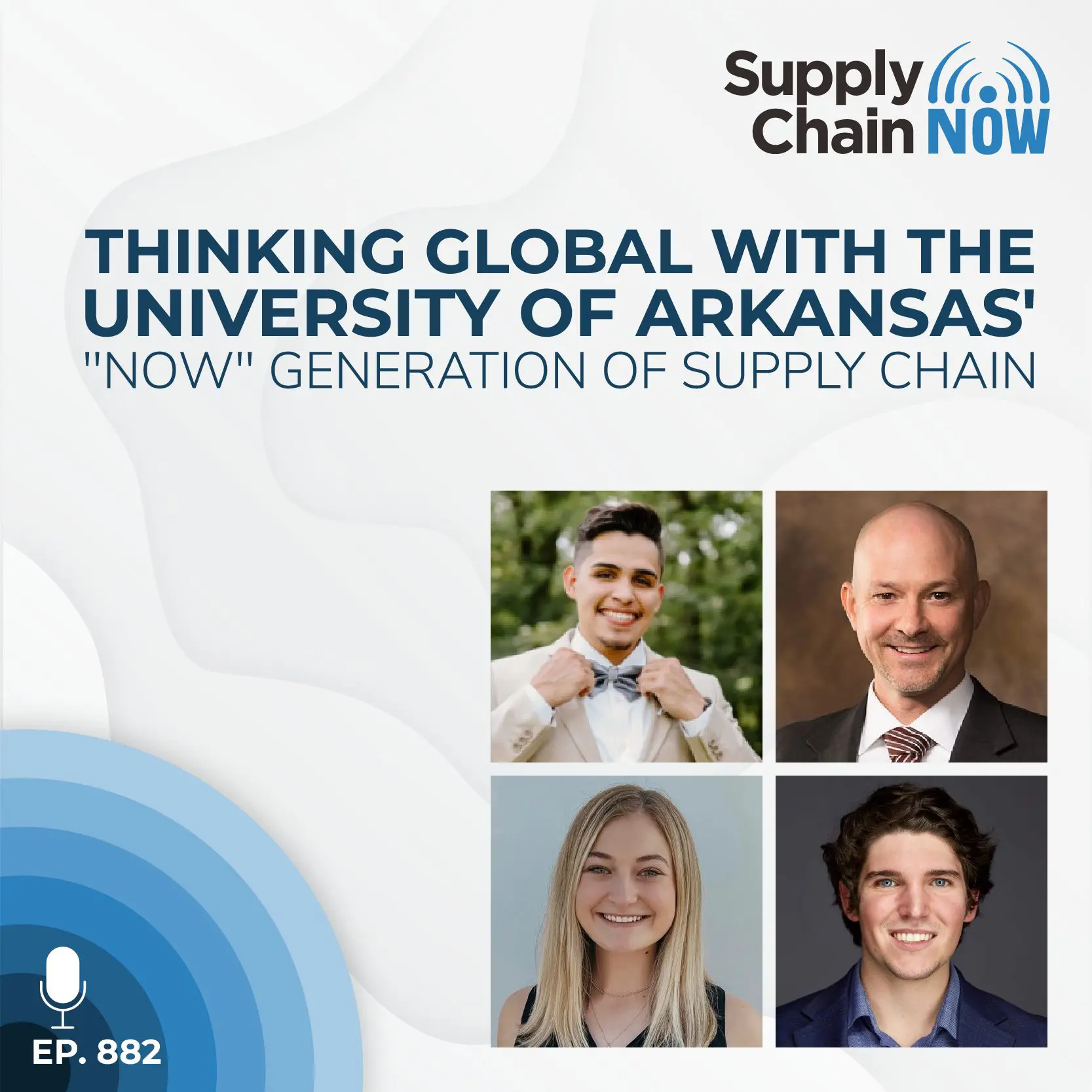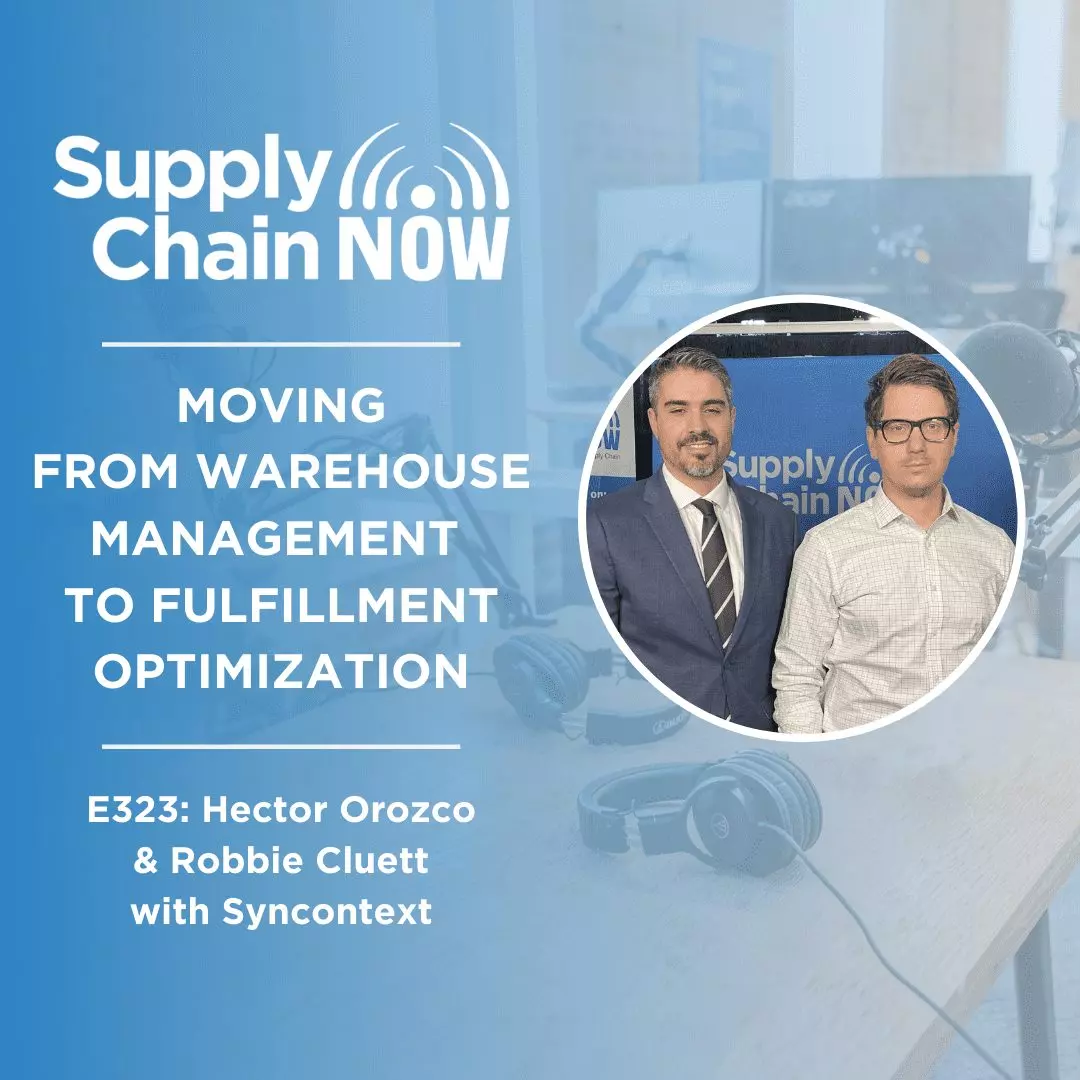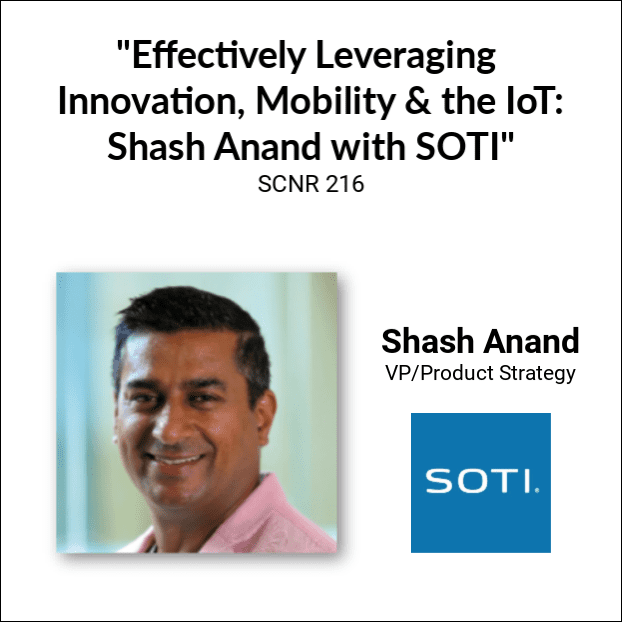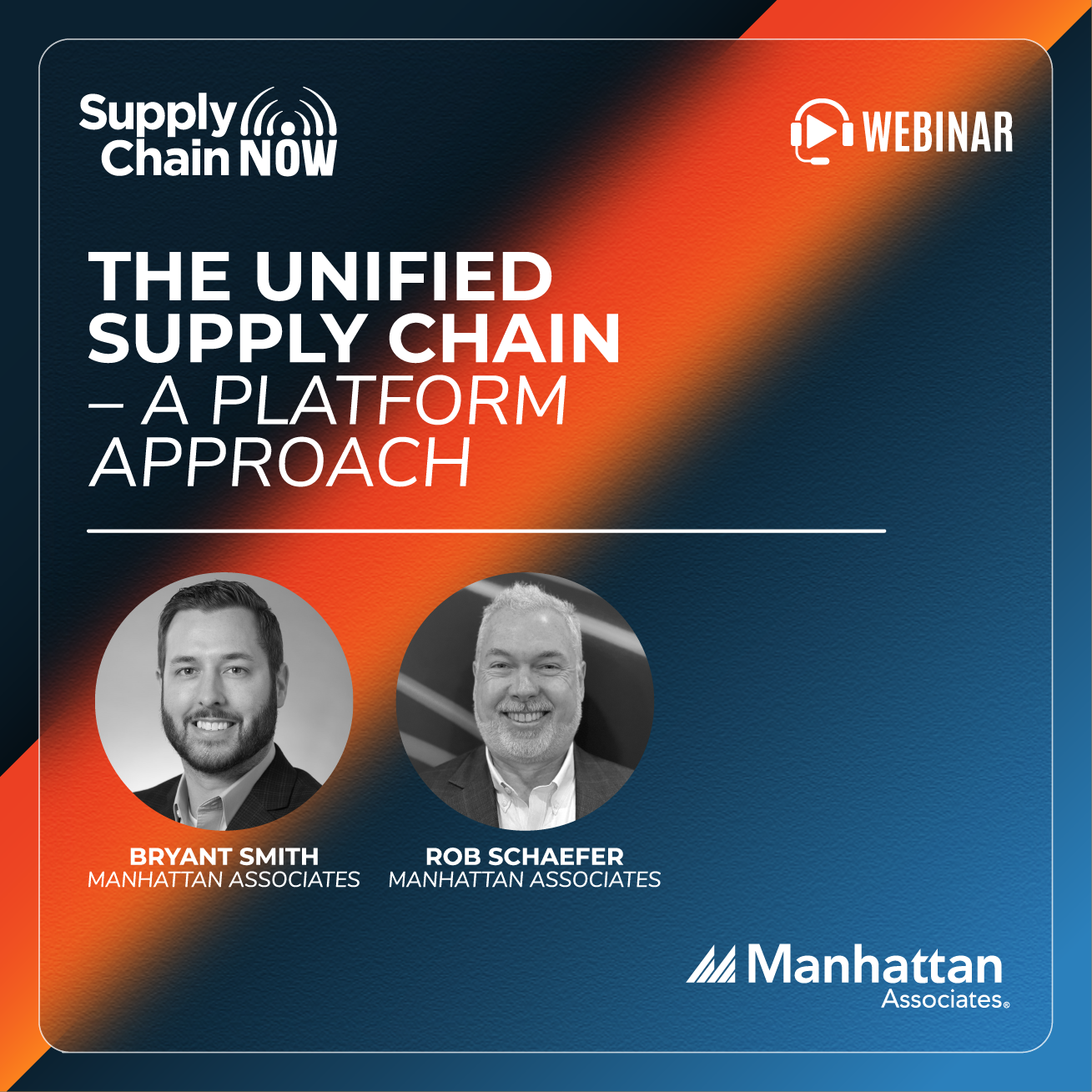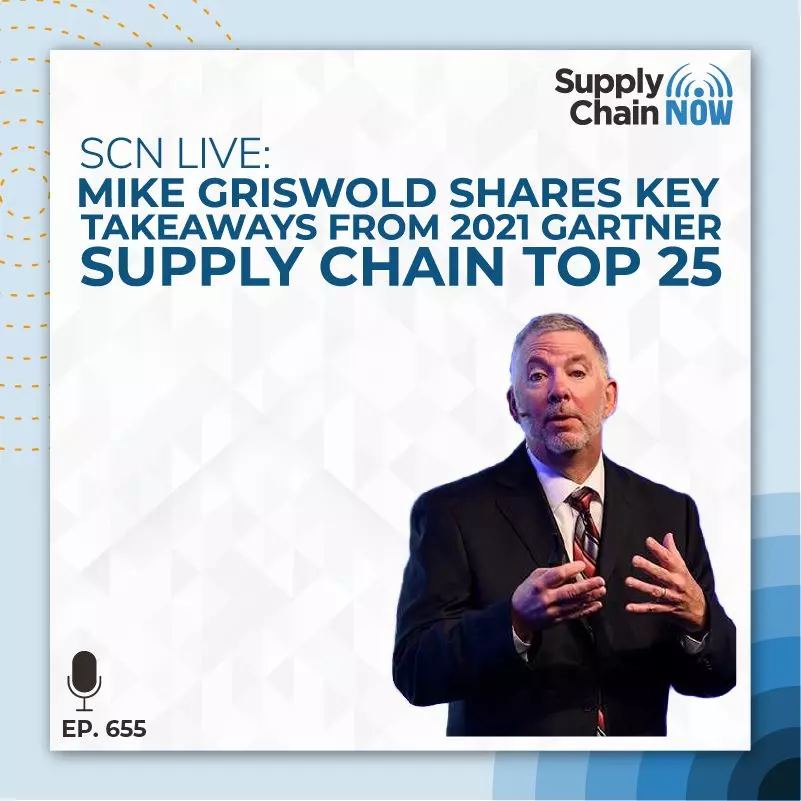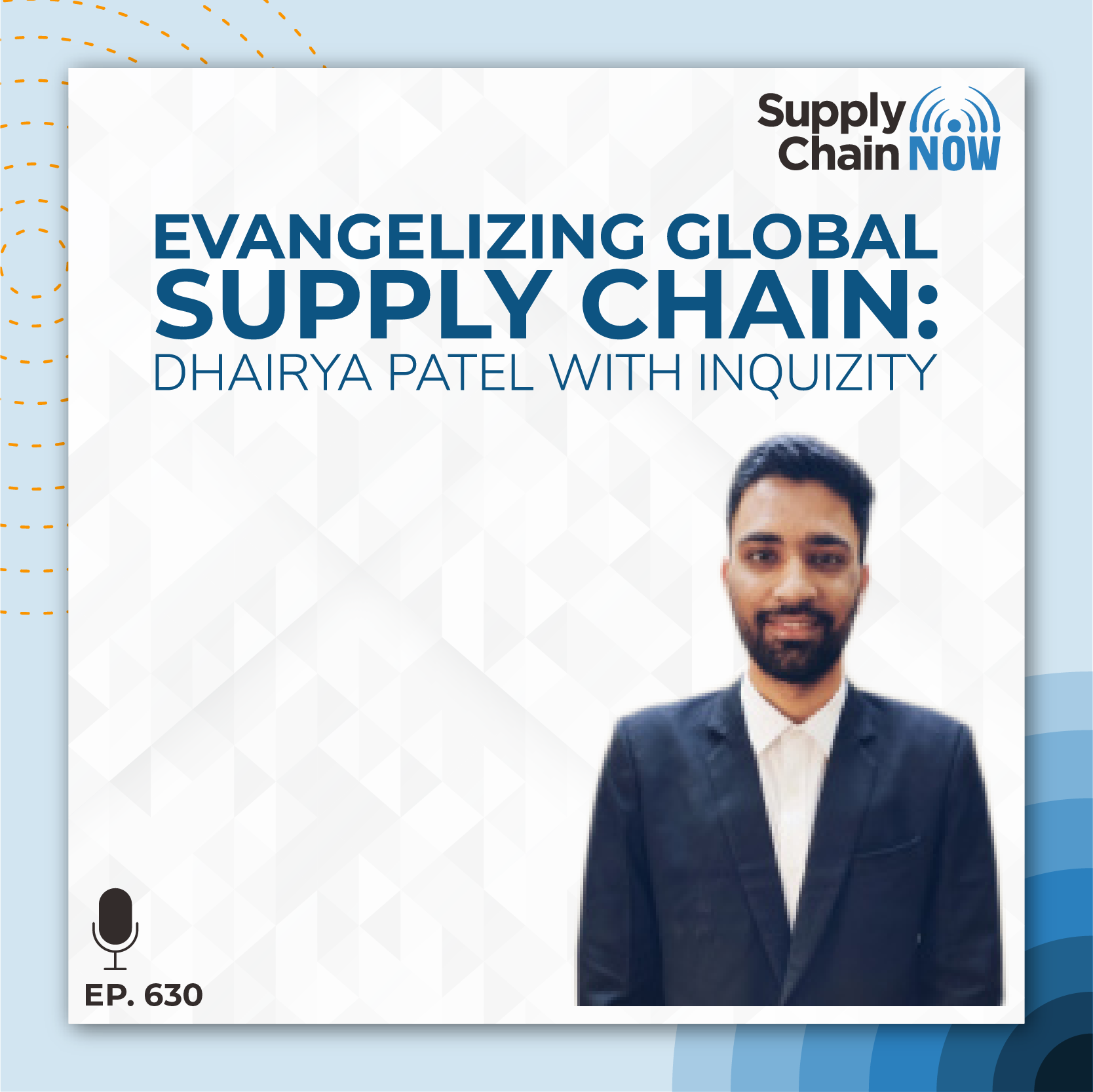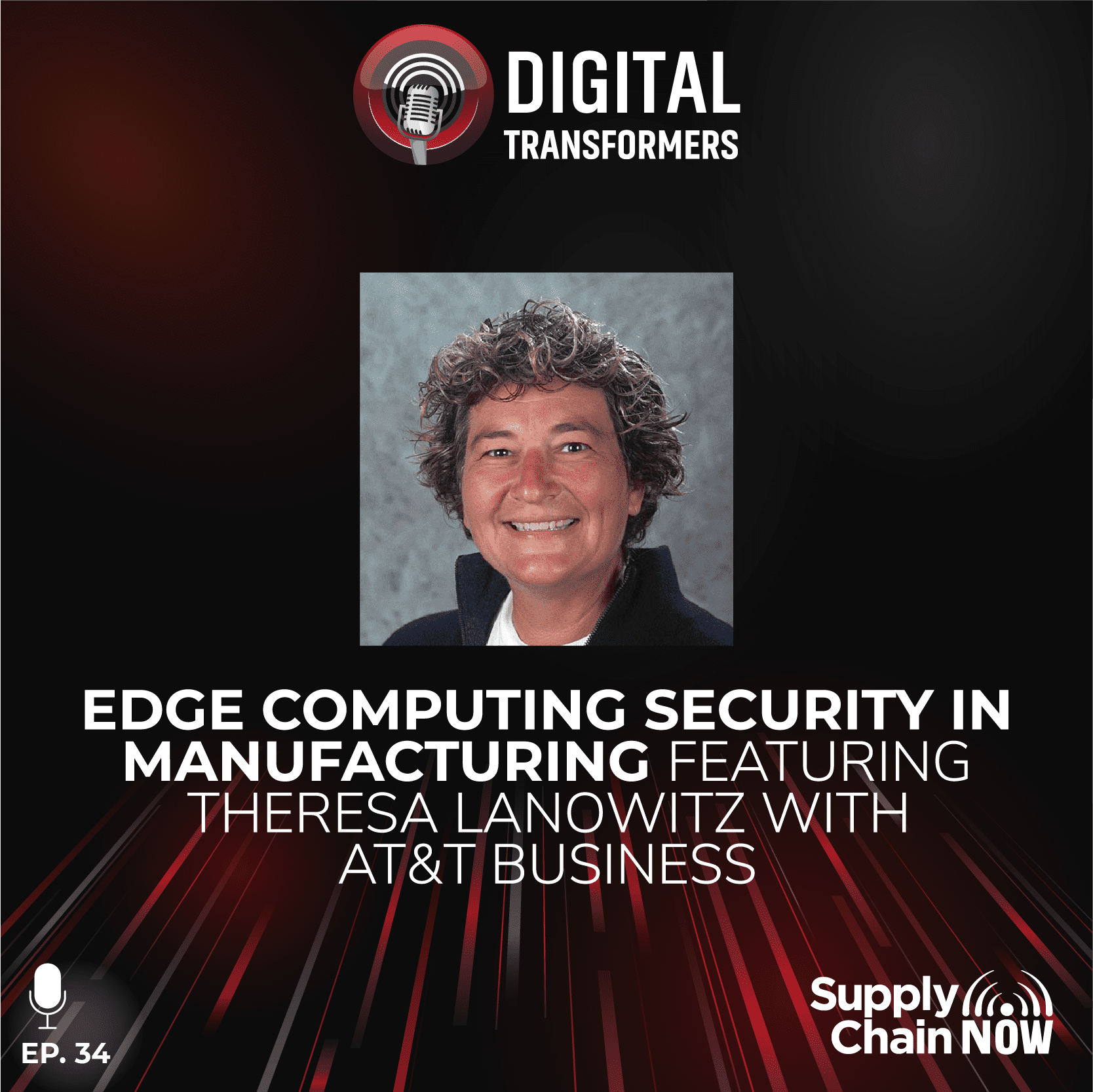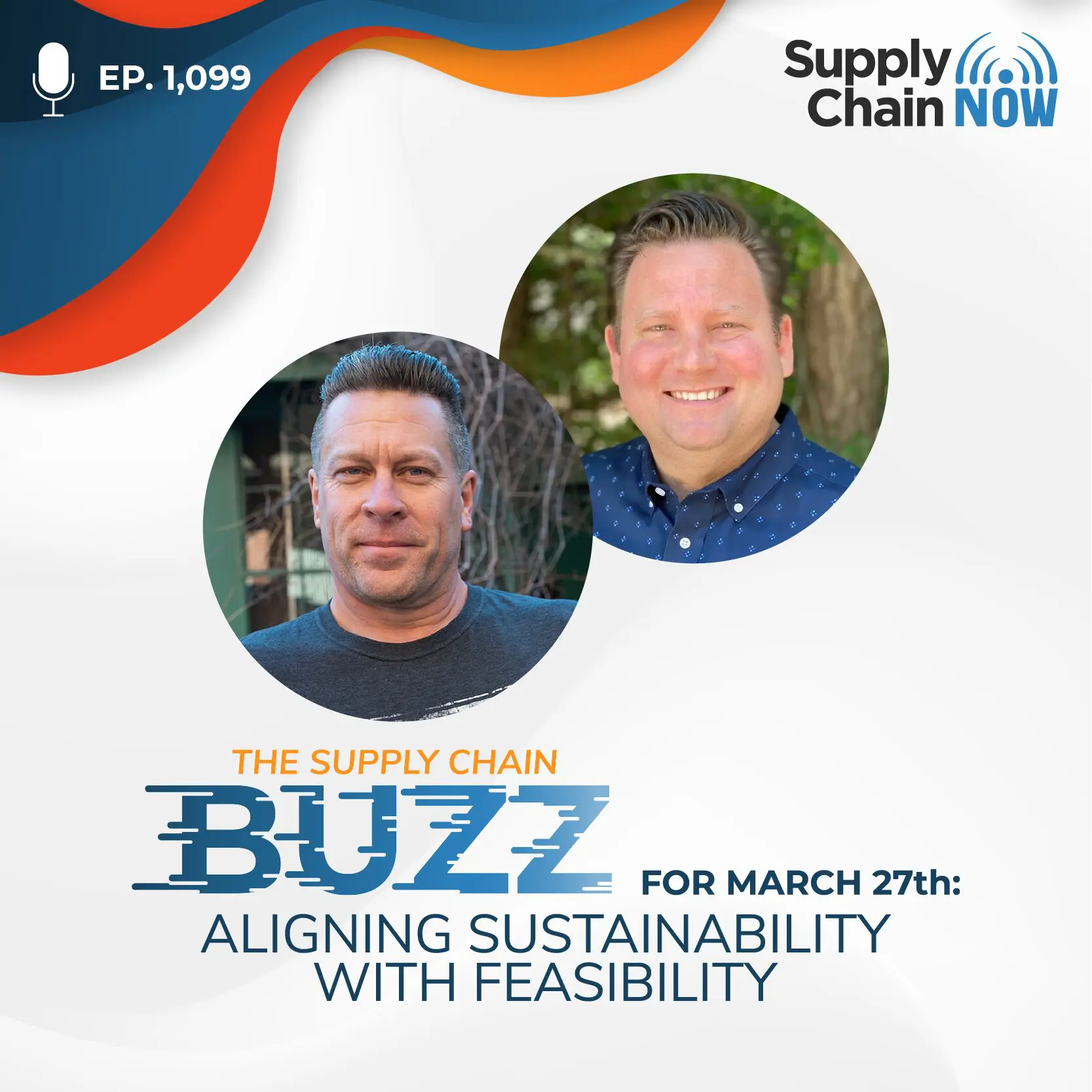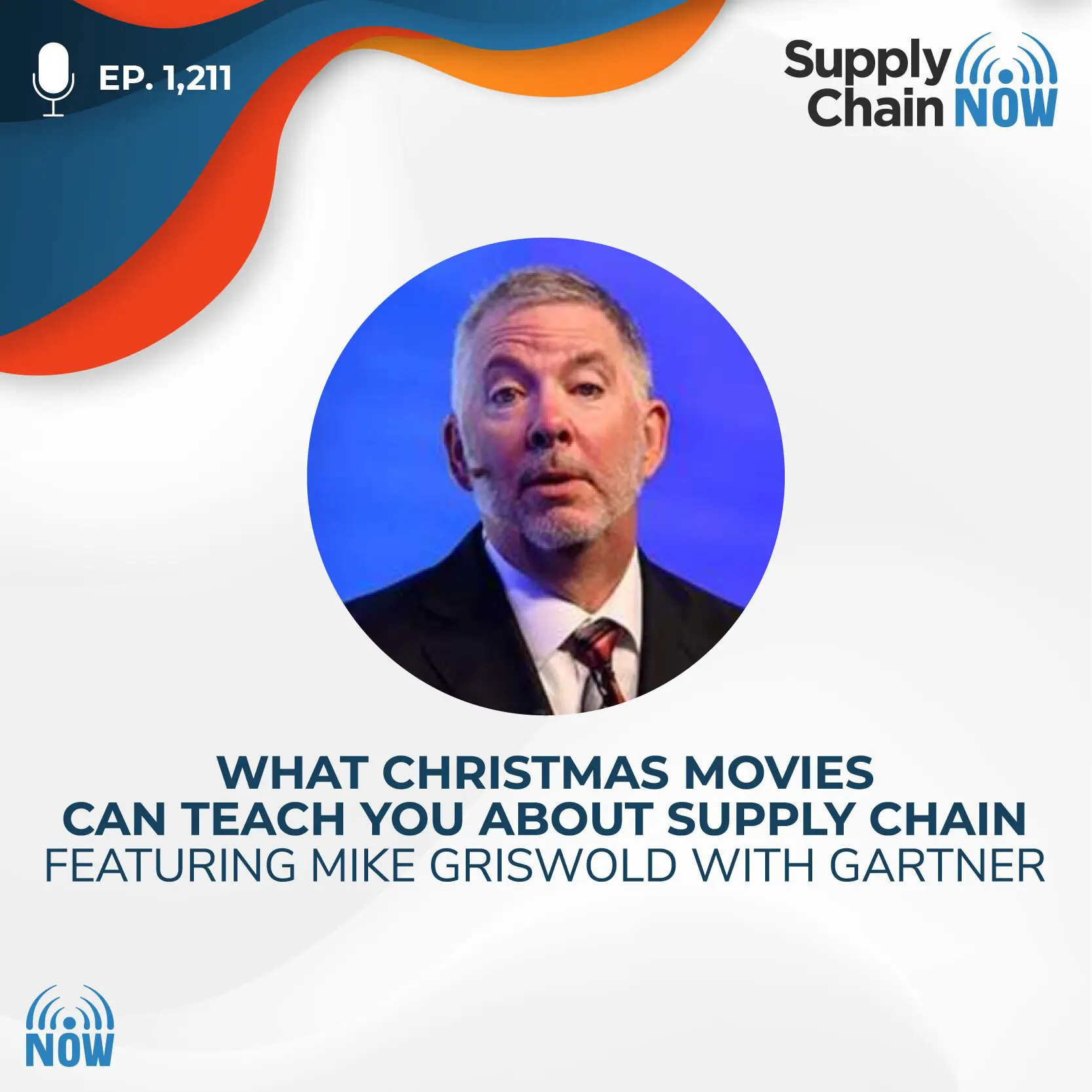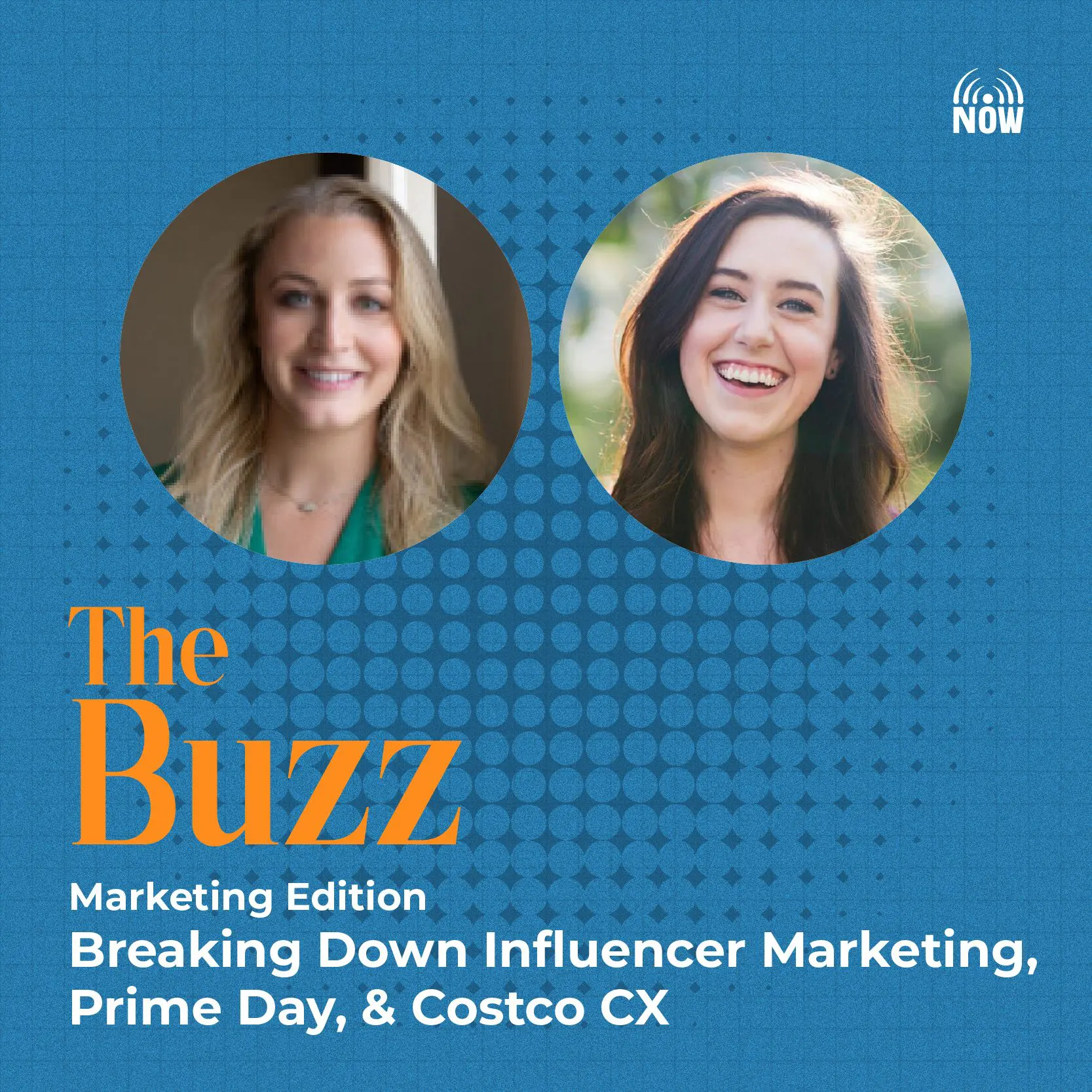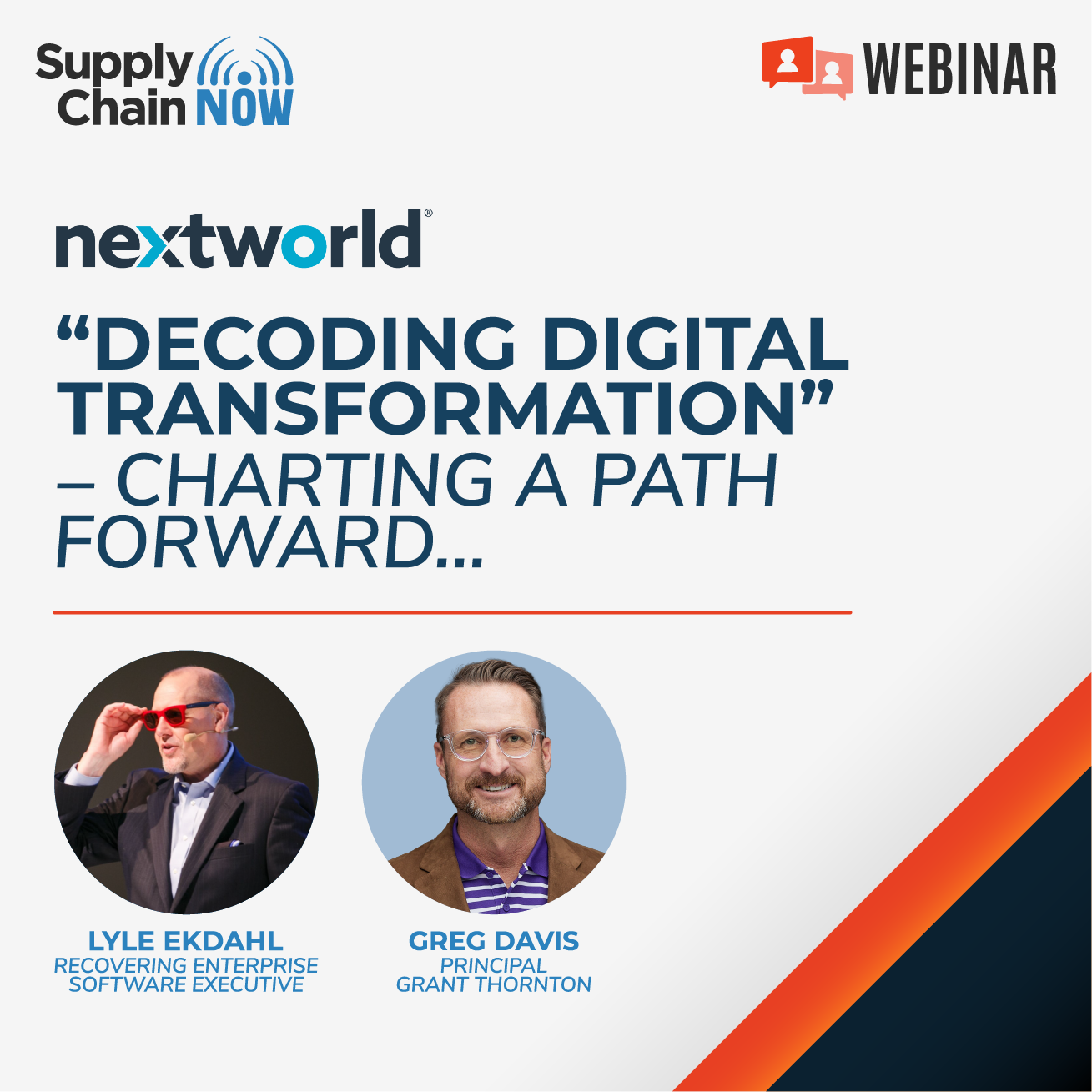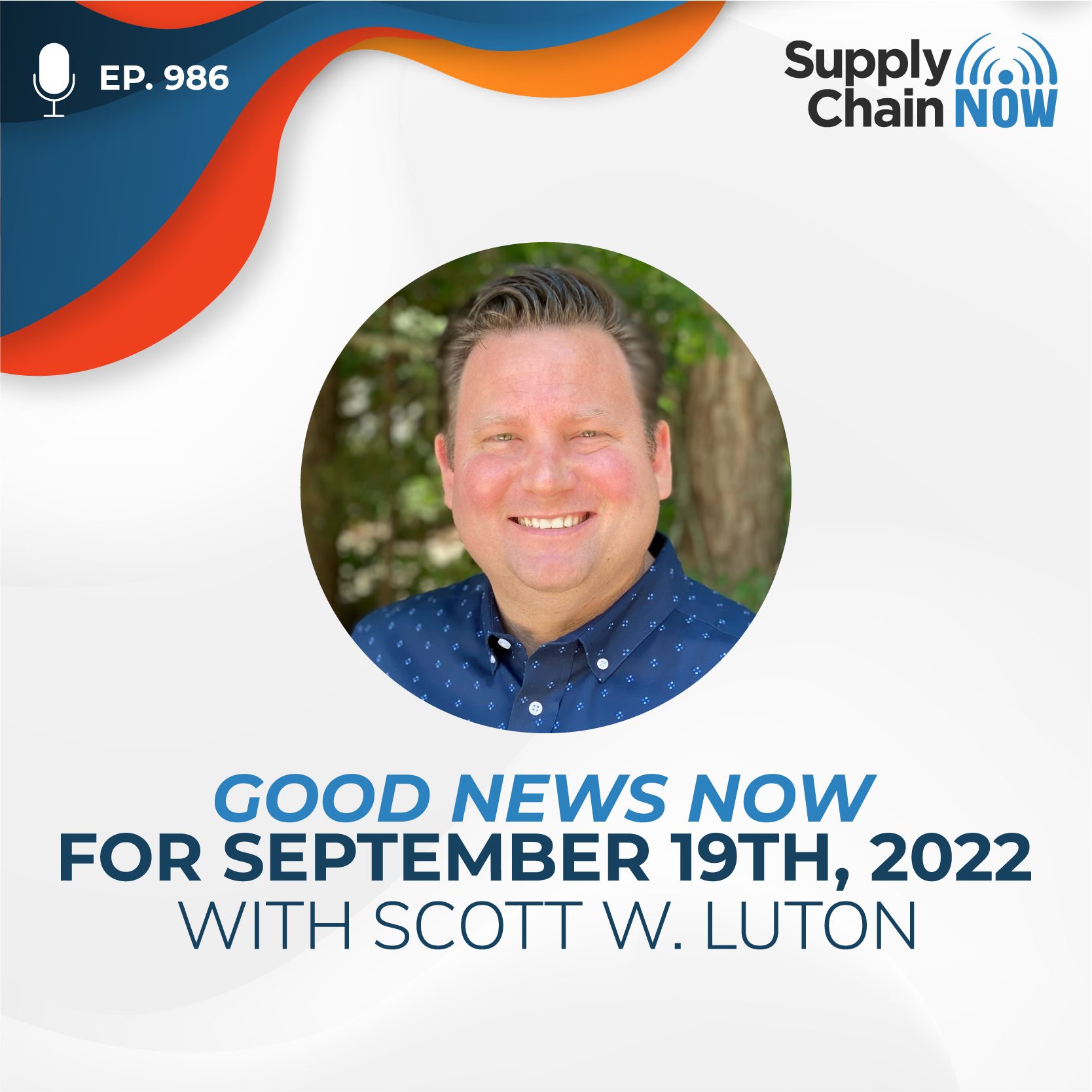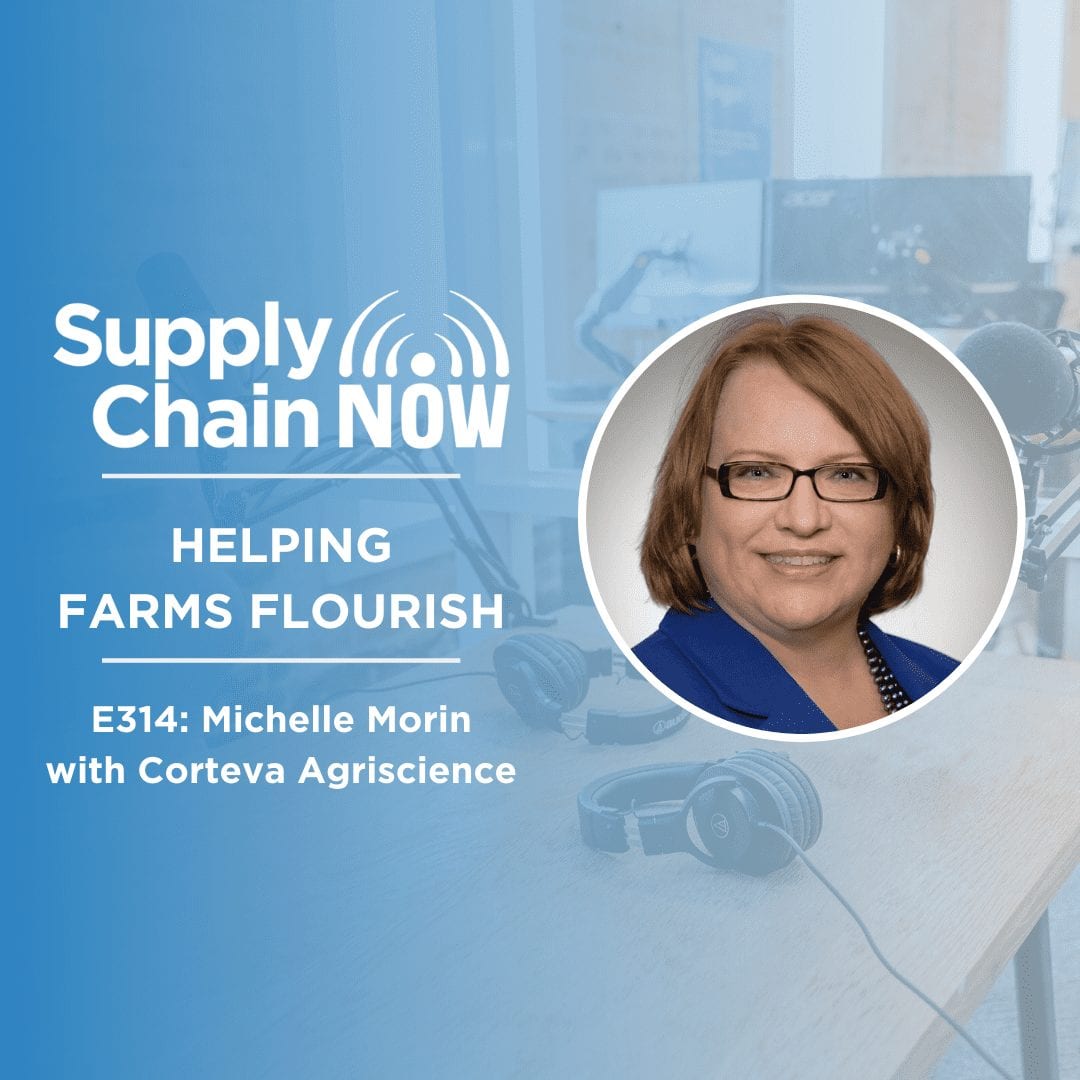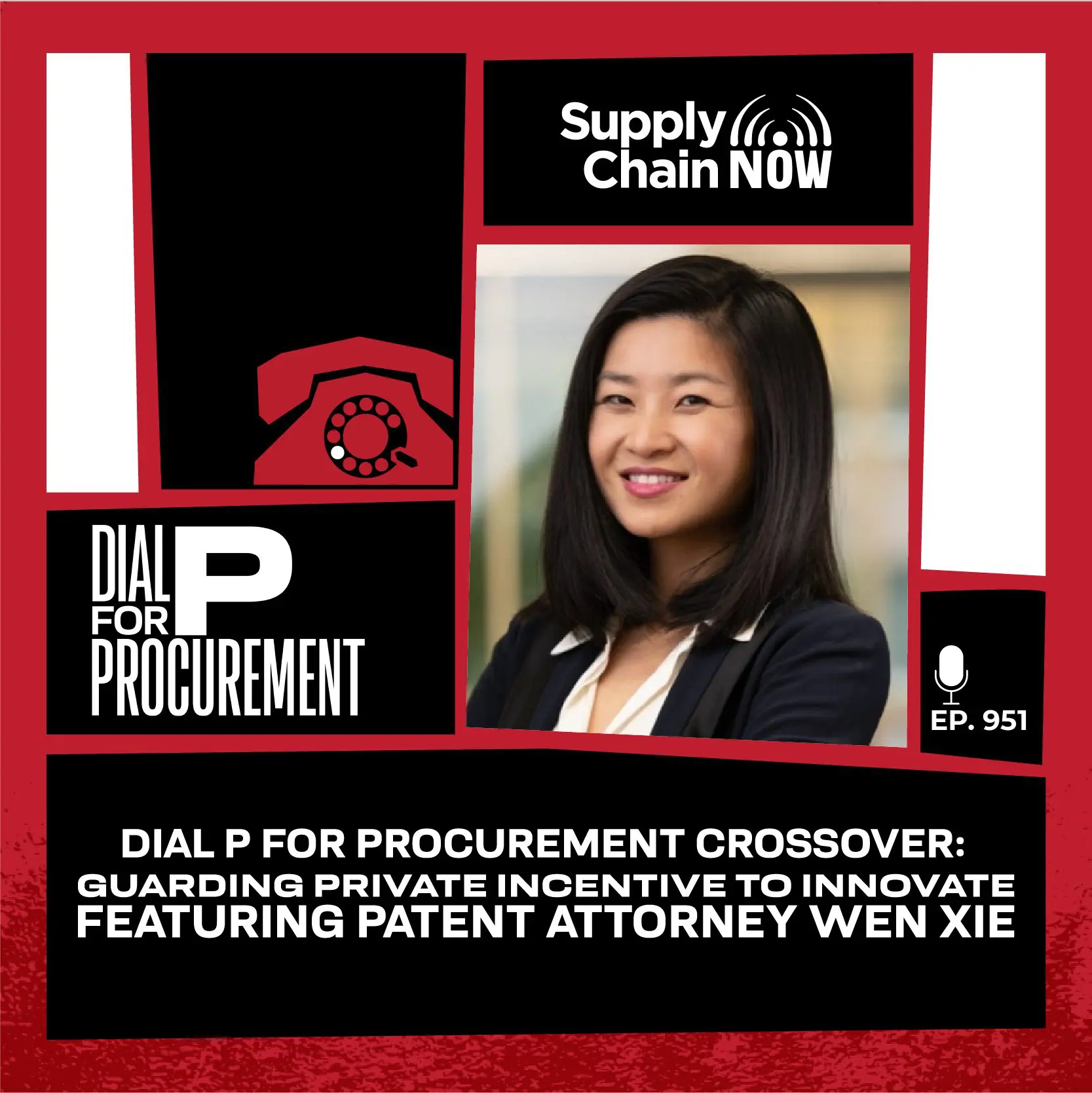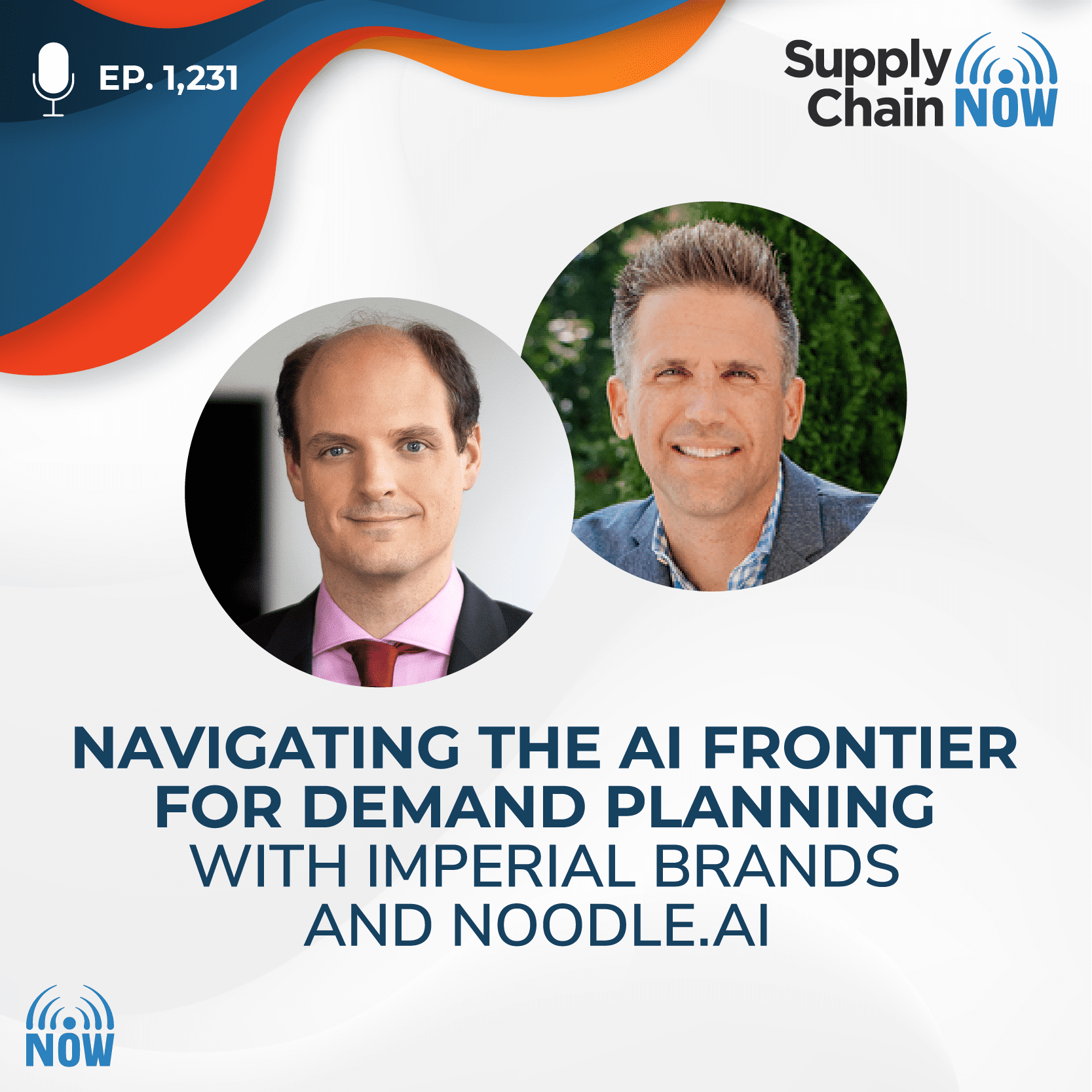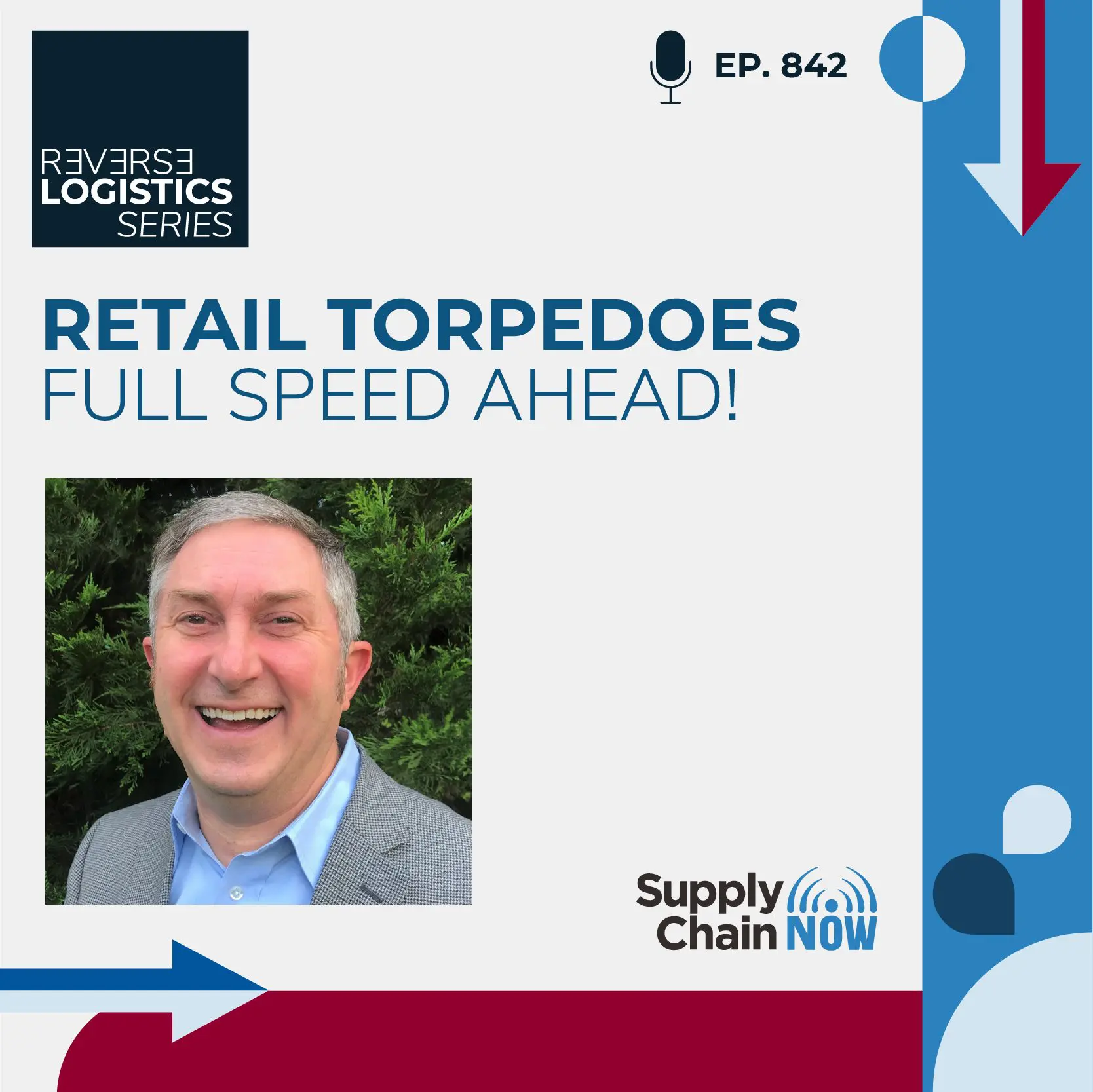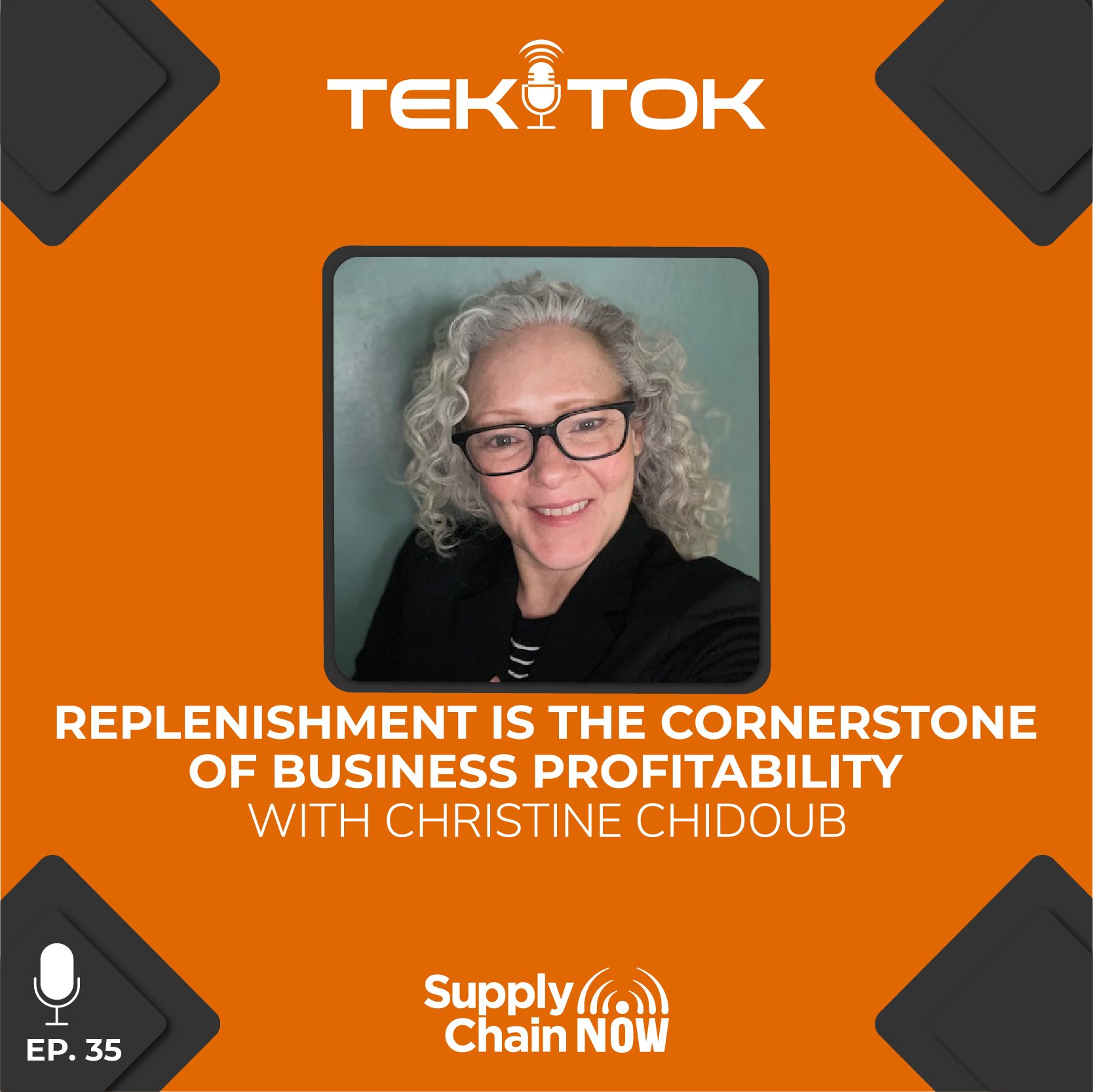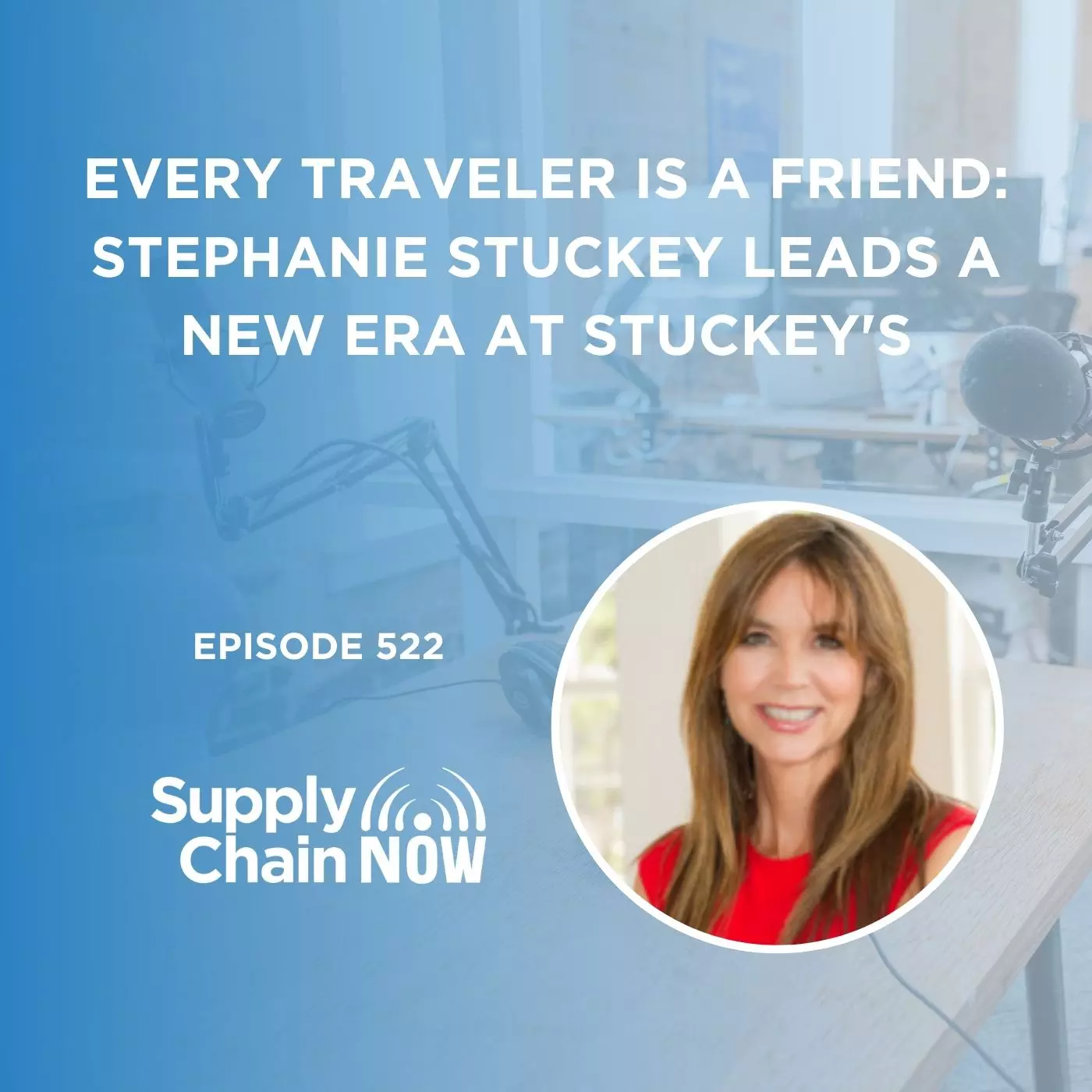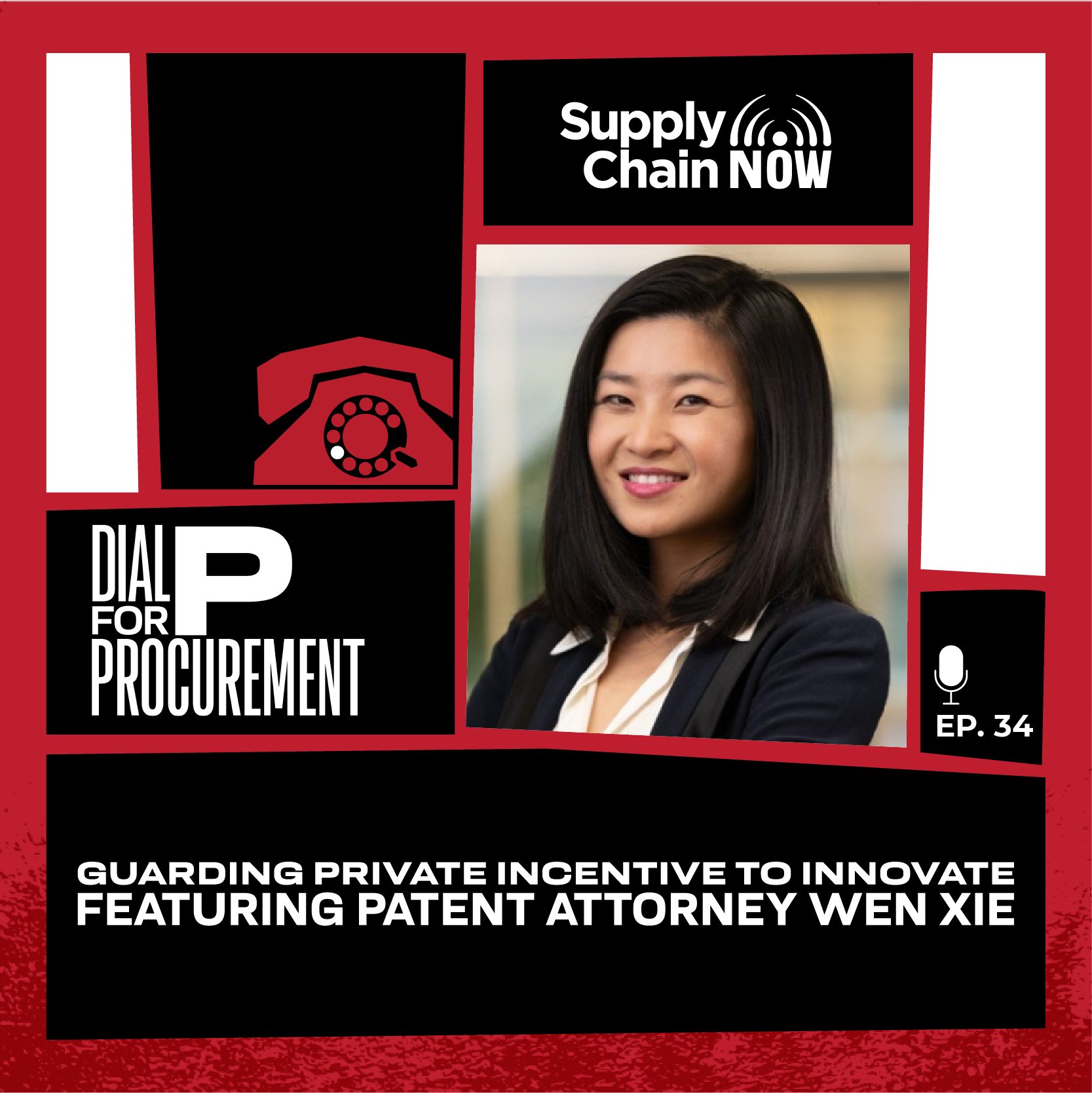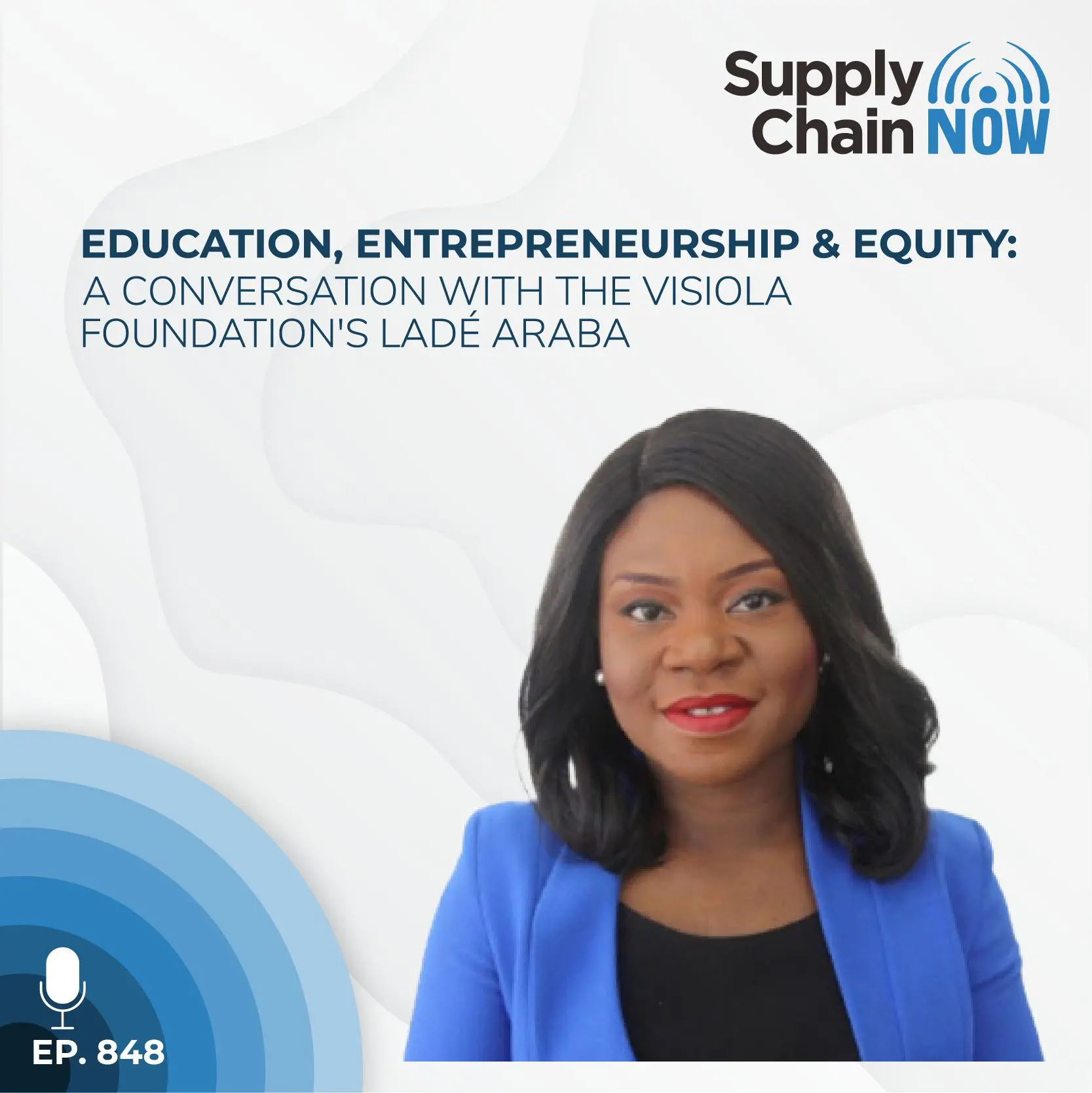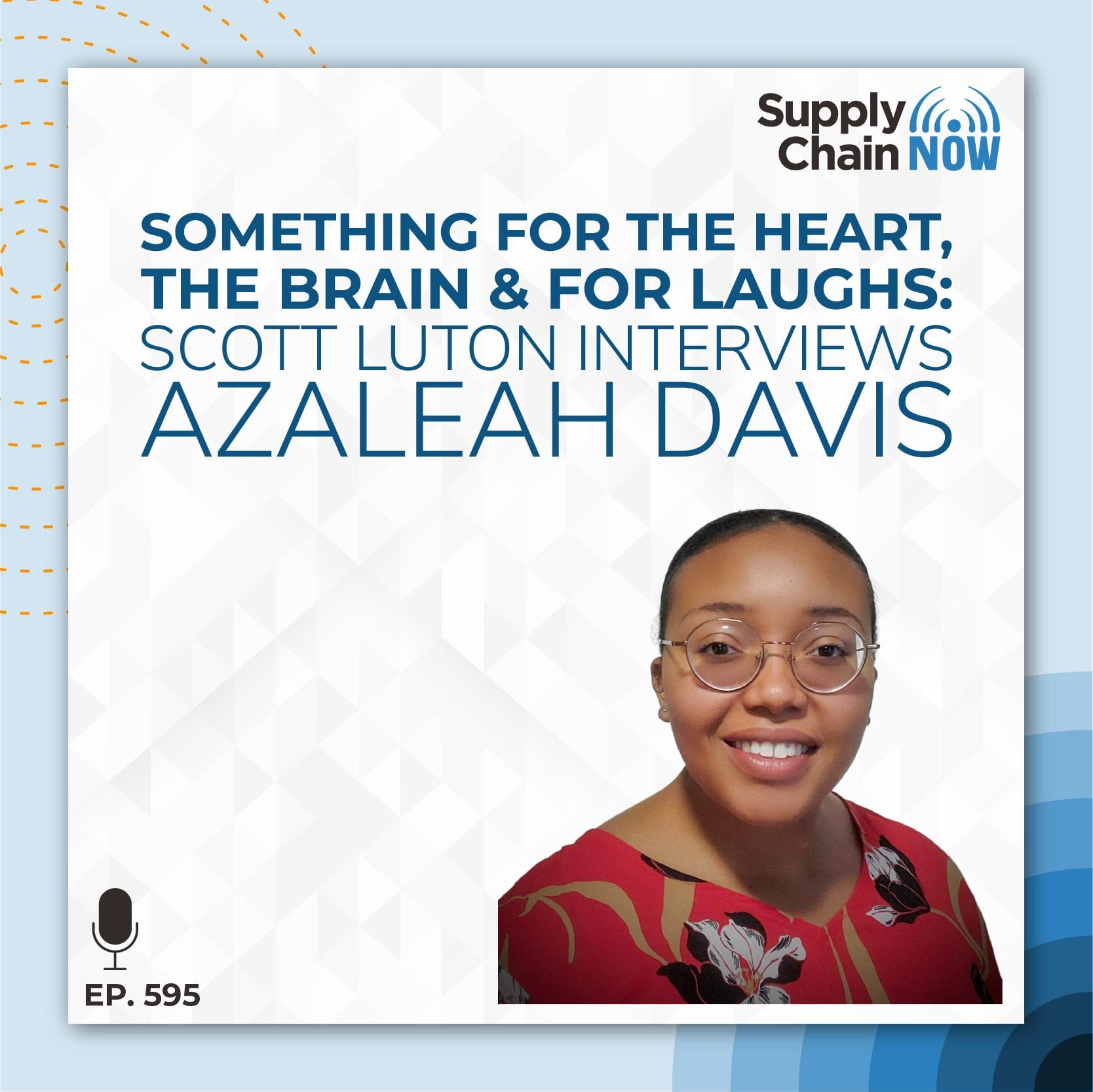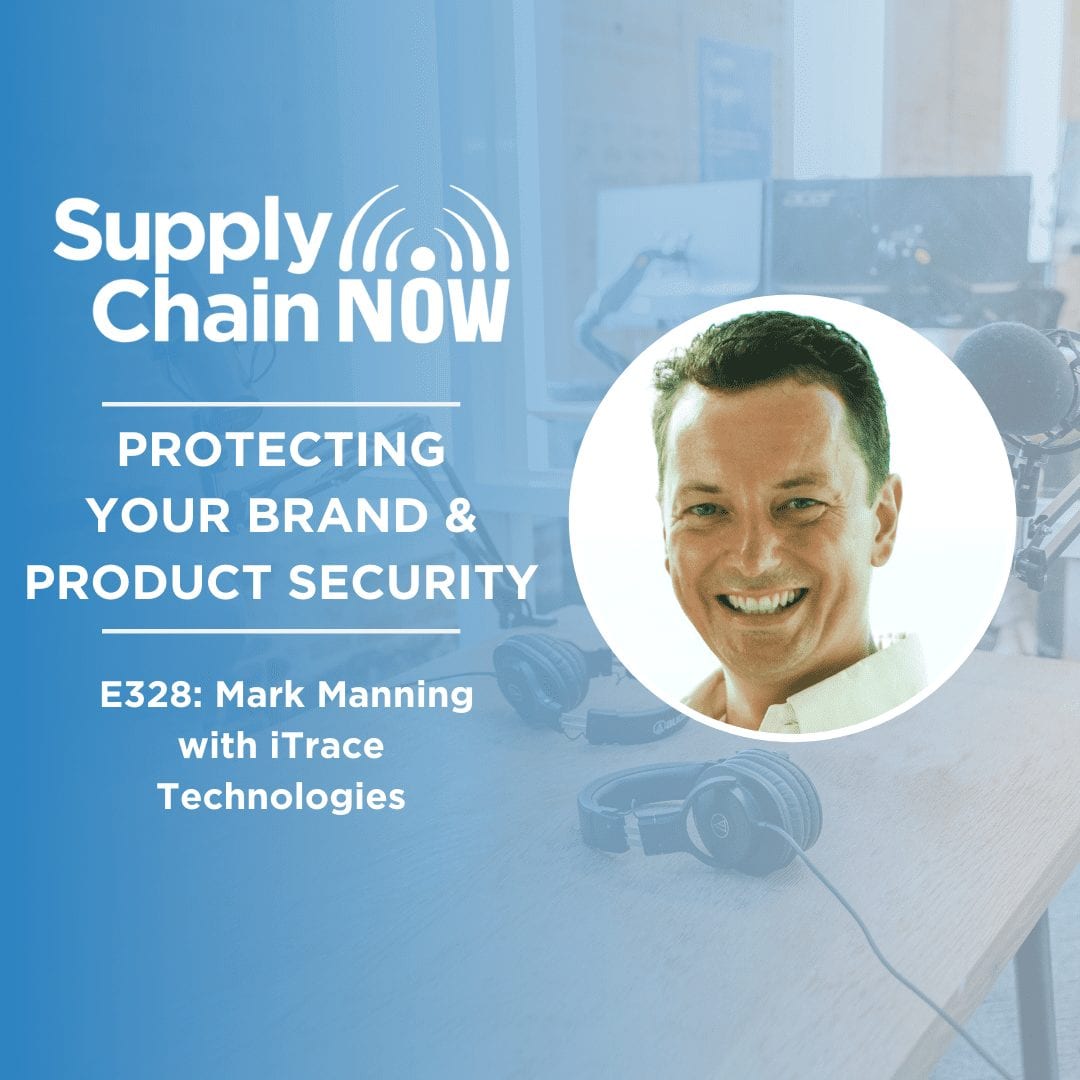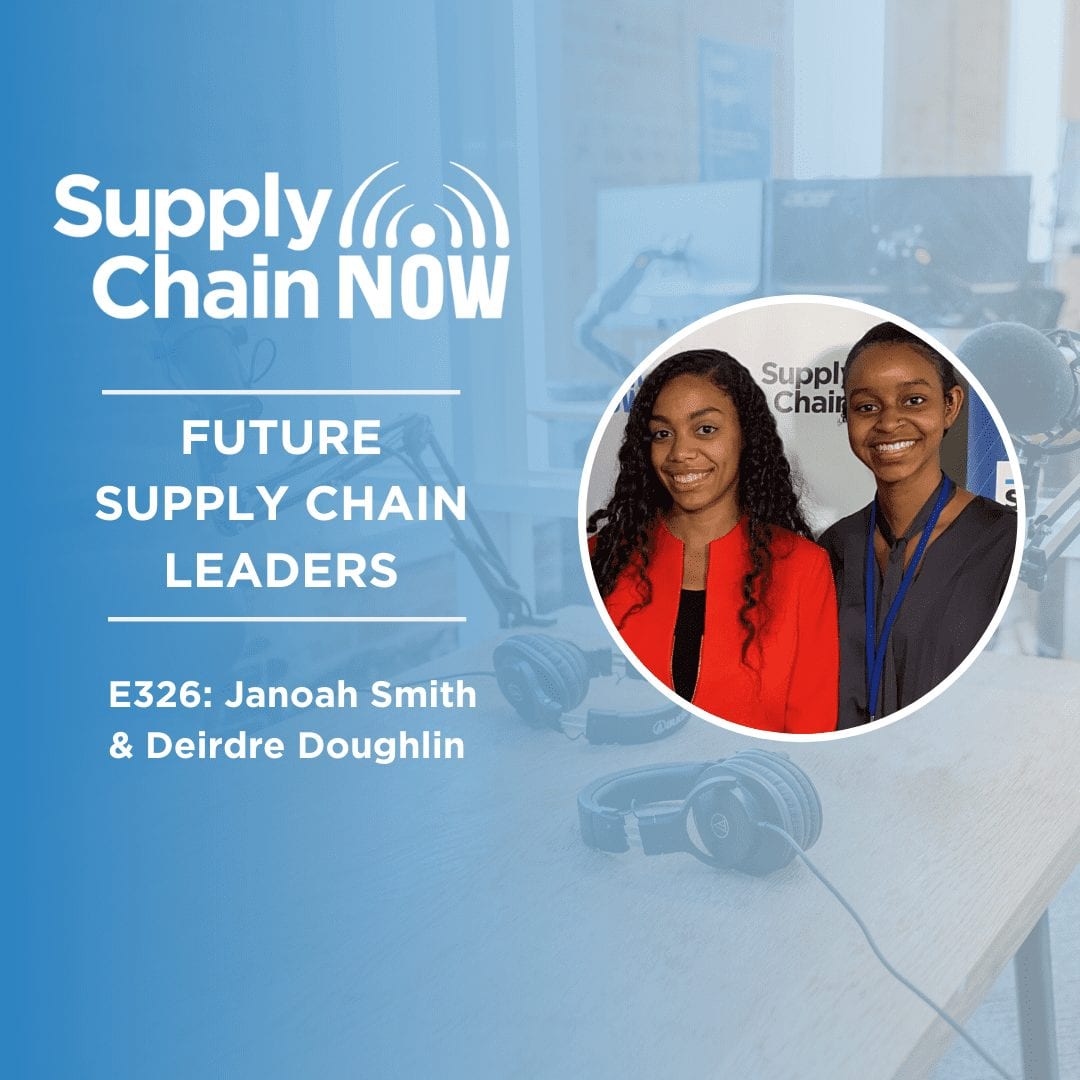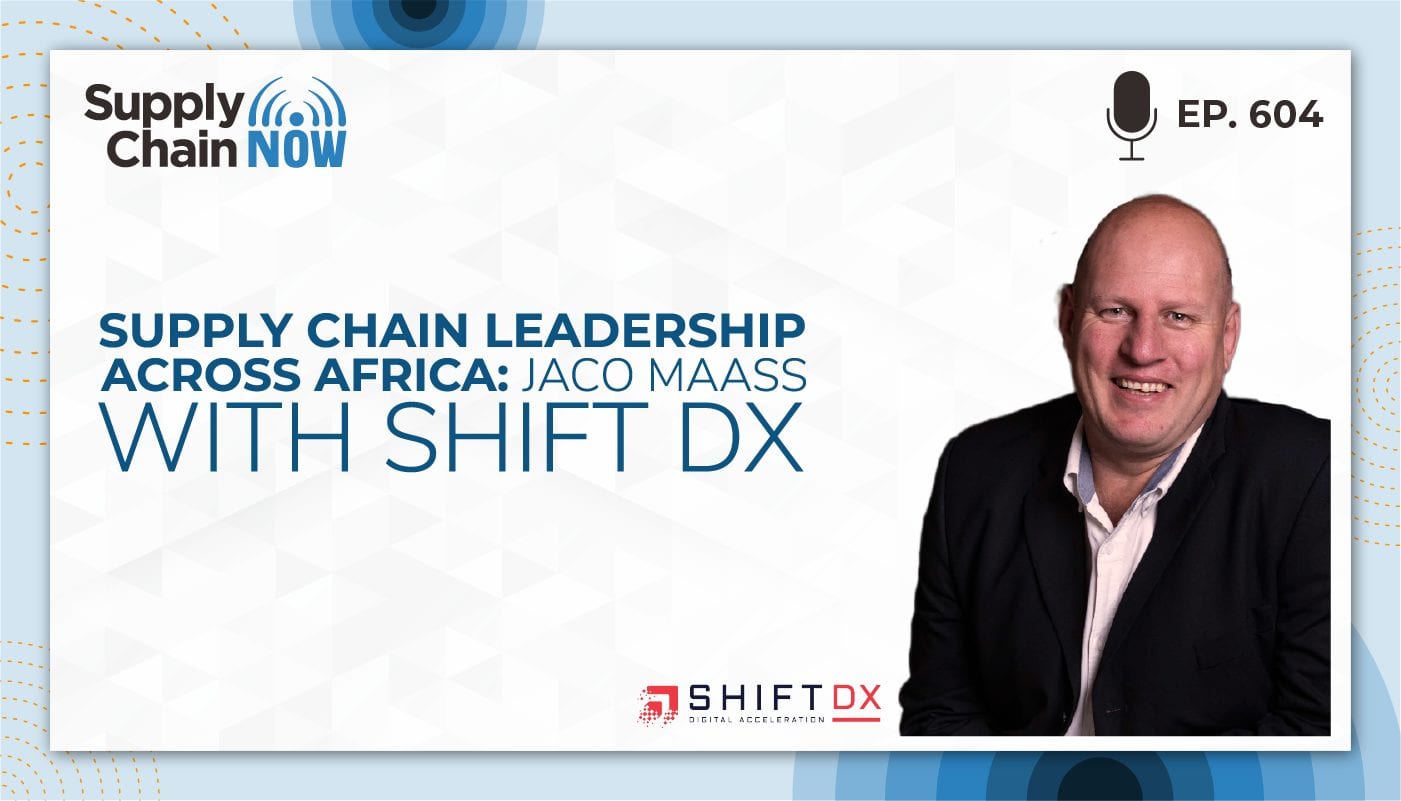
Episode Summary
“You really need to be in the land. You need to be in the field. You need to work with the people on the ground. That’s what we do; and we built into that cool technologies like blockchain and IOT and artificial intelligence and analytics. We make it real for the people on the land.”
– Jaco Maass is the General Manager of SHIFT DX
Although supply chains are increasingly global in nature, the concerns and culture in each link of the chain is still tied very closely to the local community. European and North American supply chains often reach the continent of Africa – and South Africa specifically, where today’s guest it based – but that does not mean that we can easily appreciate all of the differences between our business climate and theirs.
Jaco Maass is the General Manager of SHIFT DX, an industry leader in digital transformation in the agriculture supply chain that is making technologies such as the Internet of Things, Artificial Intelligence, Blockchain technology and platform marketplaces accessible to primary farmers in Africa.
Through the opportunities made possible by digital technology, Africa is emerging as a huge beneficiary and a large player in the fourth industrial revolution often referred to as Industry 4.0.
In this episode, Jaco paints a vivid picture of the combination of digital transformation and African agriculture for Supply Chain Now Co-hosts Greg White and Scott Luton:
· The multiple types of farmers (including commercial and emerging) working in the African agriculture supply chain
· How digital technologies are making it possible for small farmers in Africa to join the global marketplace
· The critical importance of traceability in food supply chains, including livestock, produce, and more processed goods
Episode Transcript
Intro/Outro (00:03):
Welcome to supply chain. Now the voice of global supply chain supply chain now focuses on the best in the business for our worldwide audience, the people, the technologies, the best practices, and today’s critical issues. The challenges and opportunities stay tuned to hear from those making global business happen right here on supply chain now.
Scott Luton (00:32):
Good afternoon, Scott Luton, Greg white with you here on supply chain there. Welcome to today’s live stream, Greg. Good afternoon. How are you doing? I am doing well. I guess we better be fleet of foot today. Mr. Luton. Yes, extra fleet Bobby. And there’s a band named body fleet and to beat by, but I’ll get it right a little later on. We’ll have to look it up. Bobby fleet in the band with the beat. Um, but nevertheless today’s episode is all about what’s going on all the cool things going on across the continent of Africa, especially in supply chain, especially in global business so much that doesn’t get enough visibility and coverage. And Greg, this has been one of our favorite new series, right? Yeah. I mean, I, I have been amazed and I think we both have of what we have learned already just from what is going on in Africa, but incredible complexities and incredible difficulties, right.
Scott Luton (01:29):
Of such a vast place with so many countries on it. And the, the difficulty both in bringing emerging markets up right up into kind of first world market status and also all of the dynamics between, but, but just the incredible growth that’s going on and yeah. And amazing innovation that’s happening there. Agreed. We’ve got a labor valued for sure. Yes. So late breaking news bulletin. So Murphy’s law is alive and well as we, as we’ve long noted and Jenny from the, the one and only Ginny Froome typically joins us and co-hosts a series with us, but we’ve got some, we’ve got some internet and some power issues. So she may join us about halfway through and that’s fine. We’re, we’re very transparent about that kind of stuff here cause everyone’s experiencing it. So we’ll miss Jenny. Hopefully she can join us just a few minutes late, but we will see, we definitely want to share a say picks is doing is a great community, you know, kind of bringing people together to help further the industry in South Africa and, and it really across African region y’all can learn more at St.
Scott Luton (02:37):
Picks S a P S C s.org. They’ve got a great virtual event coming up in August. Greg also want to share one more resource to see if we can do this. We’ve got, uh, an interesting webinar coming up on March 23rd. That really we’ve gotten a bunch of questions and inquiries about industry 4.0, it’s nothing new, really. However, there’s a ton of new creative applications, especially when comes to the manufacturing industry. We’ve got two pros to know to be joining us on March 23rd for free y’all can sign up in the link in the show notes. And Greg, we’re looking forward to hosting that one, huh?
Greg White (03:08):
I am particularly because of two things. One, one of the many, one of the main questions I get frequently is what the heck is industry 4.0, so not to be a spoiler, but in brief, think of, of the industrial revolution taking so many things from manual to mechanical, think of an industry 4.0, taking mechanical to technological and improving both manual and, and mechanical processes through that. That’s the simplest explanation I can give. Let’s see what Toby, Austin and Mike have to say when they join us and note that Toby us also is working at a division of Porsche. So do you think I’ll ask him about cars?
Scott Luton (03:51):
Oh, definitely. Definitely. I’m bringing my diet Coke and popcorn and just watch y’all go at it. Uh, so my favorite parts. All right, so y’all check that out. March 23rd. Of course you can find the link in the show notes. Let’s do this. And of course, standard disclaimer, if you enjoy this conversation, be sure to find supply chain now, tequila, sunrise, and the rest of our properties, wherever you get your podcasts from. Now, one of my favorite parts beyond meeting our guests, we’ve got wonderful guests teed up, uh, Jaco Moss will be joining us here just momentarily. But we love saying hello to everybody. This, this one of my favorite parts of these, the world kind of gets like closer, right? When we jump online together and enjoy a good conversation. So pre teak, you can’t do a live stream without pretyt. Can Kenny Greg,
Greg White (04:33):
I can’t. And I feel like I might never eat Indian food again until I’m in fact, I am boycotting Indian food until petite can get here for the lunch that I have promised him.
Scott Luton (04:45):
Wow. That’s that’s big news. Big news. Yep. Never again, never again. Any of, you know, Susan via LinkedIn. Great to see you here, Peter Beaujolais wonderful interview earlier this week. Hopefully you, this finds you in, in your, your, your, uh, extended family doing well. I know that that you had had some developments there this week, but hope this finds you well. And I love that soccer ball as a, as a translator, as a bridge. I love that that came out in the interview past kina via LinkedIn. Great to see you here. Thanks so much for being a part Salman via LinkedIn. Simon is back. Simon has some great questions earlier this week, Greg, and you remember them too, cause you’re you’re, you’re a laugh a little bit Simon. Okay.
Greg White (05:30):
Simon’s obviously channeling good morning, Vietnam.
Scott Luton (05:35):
I missed that. You know, and he’s not afraid of asking the Greg white question. So I love that about Simon. So great to have you here. Tom is here early and there’s a countdown. He says, I did not know that. Hey Tom, great to see you. And I don’t know
Greg White (05:49):
Anybody about that countdown. We’ve gotten some nasty grams about that. Somebody who’s claimed who has claimed a countdown. Yes, gosh.
Scott Luton (05:58):
You know, it’s interesting that there’s a
Greg White (05:59):
Desperate business. If that’s what you’re going to pay,
Scott Luton (06:02):
You get things from the free usage, uh, you know, communities we’re all part of. And then all of a sudden you see claims here and there. So it’s, it’s interesting, but Tom, you said Mike Lackey looks familiar. I think Mike made an appearance just a few days ago on, on your podcast. So hope this finds you well, great to have you here. Aaron Peterson. Great to see ya. Another way in the supply chain universe. What’s up gang.
Greg White (06:25):
Didn’t we ask the question if you graduated. Yeah. Right. Did we get the answer? I don’t recall that.
Scott Luton (06:32):
Aaron. Aaron, no pressure.
Greg White (06:34):
Aaron, of course, but we’re all very curious as you,
Scott Luton (06:37):
Yeah. We’d love to reconnect. So we sat down with Aaron in February, 2020 with him and three of his, uh, colleagues from Morgan state university. And, uh, Aaron would love to know what’s the latest with you and your career. So I hope this finds you. Well, Gary Smith is here with us and Greg’s got his palette just for you, Gary. Yeah.
Greg White (06:55):
Gary C just for you. My palette is back in place. Um, also Gary informed me that it was 62 there in the last couple of days and he has his bike out. He has his bike out ready to ride all tuned up with new brakes. We’re ready to go.
Scott Luton (07:12):
As I learned Greg, as he made a guest appearance and let a episode of this week in business history, he’s a biking enthusiast. He’s very passionate about biking and he knows all the, all the equipment and stuff. So we’ll have to pick his brain soon enough
Greg White (07:27):
Supply chain, by the way, my best buddy Todd rains is an, I would say, uh, he is a biking obsession, and he has been talking for months about the struggles of getting parts in for these bikes, bikes themselves, of course, and now, and now getting parts in the year that they would have figured it out. But I, I guess just the uptick and who knows.
Scott Luton (07:52):
Well, that’s why I’m not getting my 20 miles a day in just so you know, we’re waiting on four or five spare parts.
Greg White (07:57):
I’m going to have to write that excuse down. That’s going to be part of my 17 pages.
Scott Luton (08:04):
Peter says, Hey, great show, Greg with Gregor party agreed. And he’s got some tequila, sunrise recommendations for you. Wow.
Greg White (08:14):
Sheila Scott, on that episode, we literally on the second part of that, of that interview. The second half of that interview, we spend twice as much time talking about tequila. As we do about how to build principles and culture into your business. Now it was well more than even doubt because of the two.
Scott Luton (08:33):
So I got to catch up. I clearly I’ve got to catch up and don’t get me.
Greg White (08:37):
We thought about both the principles and culture of your company and tequila.
Scott Luton (08:42):
And if we look forward to that and get tequila, sunrise, wherever you get your podcasts from Daria. Hey, great to have you. Thanks so much for your recent comments. And I look forward to your contributions here today.
Scott Luton (08:56):
Okay. We’ve got to stop there. We’ve got great guests. We’re going a little bit longer because we’re saying like saying the low, but also we’re, we’re hoping to give Jenny a little extra time. So who knows? We’ll see if we can’t cap, we can’t have her join us as we get deeper into conversation, but for now, Greg, let’s bring on our exceptional guests today. Are you ready? Let’s do it. Okay. Let’s bring in Jaco, Mohs general manager at shift DX, Jaco. How are we
Speaker 5 (09:27):
[inaudible]
Jaco Maass (09:28):
So you were so entertaining. Why did you bring me on now? So, well, you know what? We really enjoyed the pre-show conversation. Of course your ears have been burning for weeks is as Jenny and others have been singing your praises. So looking forward to diving in, but we’ve got to answer to our mystery and I want to share that, uh, as Erin says, he’s going to have a big announcement coming up. That’s exciting. And he also says he’s received an offer already. So as soon as this Clarence has done anything in the door, he’s going to make the announcement. So hopefully we can, we can help him make that announcement. So Aaron that’s great news. Okay. So Jaco, let’s get to know you better. And you know, we all miss Jenny we’ll we’ll, hopefully Murphy’s all will cooperate. We’ll have her join us, but let’s start by getting to know you a little better before we talk heavy lifting and industry and, and thought leadership.
Jaco Maass (10:17):
Let’s get to know Jaco Mostel a bit better. So tell us, where are you from? And, and, um, you know, give us a minute or two about your upbringing. Oh, thanks guys. Thanks for opportunities is great talking to you and your community. I grew up on the West coast of South Africa. Now you would most probably recognize that English is my second language. Um, so you know, sometimes say that you must be careful because if the English out is some shorter words that we start using to describe difficult concepts, I went, you will enjoy that Greek. I went to university of Stellenbosch, uh, in a beautiful town, uh, well-known uh, studied agricultural administration, started off my working career in the citrus industry, really, you know, and that’s supposed to probably the only place that I really got to know it so much did a lot of things.
Jaco Maass (11:10):
They, and they moved over to the banking industry for 10 years. I did cash flows and cash flows and people’s financial statements, which is an interesting thing. And it becomes quite relevant in my story a little bit later on, I joined PKB a hundred year old agricultural organization, situating, where I’m coming from in 2010, specifically looking at commodity finance and how you actually can start utilizing a commodity and utilize that as a underlying security, which is also relevant to the old African story. In 2013, I moved over to it. I believe that almost all the way through my working career, you can choose from a corporate banker over into it, which was funny. And, uh, yeah, it was since I’ve been yet important, Elizabeth got a beautiful wife and kids, two daughters, and, uh, I implemented the ERP and then, uh, through the streets, uh, had a little bit of a surprise, keep the number three. So we [inaudible] implementation [inaudible] but it is a boy. And he’s really fun. And I really you, in which way from oranges is that, was that your citrus, right? From orange to banking, to technology. That is quite the right. Right. But I do think that it needs more bankers, you know? Yes.
Scott Luton (12:42):
And bankers need more it. Right. So does agriculture truly, which is what we’re going to talk about today. I agree. Cultural supply chain. So we got a lot more comments coming in and I wish we could, we could reference everybody, but hello, as Aaliyah and arena, who’s in Cape town, uh, Andrea is here, which is wonderful. So hello and welcome everybody. So Jaco, so really quick for you start talking heavy lifting, give us one hobby that you enjoy doing kind of, to kind of unplug and maybe a favorite recent read a book. Yeah.
Jaco Maass (13:13):
Yeah. I will say that. I must always, I would always like to say that digital transformation is my hobby. If you ask my wife, you know, I’m constantly busy with it. I get up at four o’clock in the morning, keeping myself busy with this such an interesting field. But yeah, I do enjoy, um, fishing a little bit and uh, exercising, but otherwise, you know, I try to keep a balanced lifestyle, the latest interesting reads. I, you know, I don’t want to go into a bookstore because there’s such a lot, the latest is very much a books that I’ve bought the series on that is all about the business models, value creation. And how do you actually deliver value to your customers? But yeah, so, but one of the books that stands out is one is called friction friction.
Scott Luton (14:05):
Okay. We’re gonna have to dive into that one. All right. One last question for, uh, turn over to Greg here. You mentioned in your downtime, you enjoy digital transformation. So, and you talked about in your profile that you’re very passionate and in love with this world of data analytics. So where what’s the Genesis of that? Where did that?
Jaco Maass (14:26):
Yeah, I think it started when I was in the bank when I was in a bank app. So in South Africa, Barclays from Barclays, as you guys will call it, the both apps are over and they brought something. What was called value, aligned performance management tool, which created all about what is the value of a customer. And we even had in our KPIs, something that we add the cross sell so much product to sell to a customer. So when I joined this agricultural organization BKB it’s, it has the largest national footprint in South Africa. So I got to call it organization. And I was so intrigued on this footprint and say, they must be value in the clients that they had. So the data analytics portion came, and this is, this is where the whole nine yards come in because I needed to start in it physically with a, the, when in the land and then started moving up to an ERP and then to business intelligence and eventually get into analytics and starting showing what the value is in a relationship that you have with your customers.
Jaco Maass (15:31):
So, uh, on that note, one quick comment, and then Gregory, we’re gonna pass the Baton. So we were talking to Keela before you joined us Jaco, and I’ve got a reference this two quick comments. First AAS is speak AA in Wichita, Kansas air capital world is referencing Ondrea. And we know that Guadalajara is the tequila capital of the world, your evil twin. Andrea offered us a couple of shots already say, Hey, great call out there. And I got a reference it’s comment from time going back to the implementation. Hey, glad to hear the stressful ERP implementation for sure. But it’s with me for the rest of my life. I could. Alright, so Gregory, where are we going from here?
Greg White (16:16):
Yeah. Well, first of all, I had to laugh when you said that digital transformation was your recreation, because I can relate, you know, when people, when you, when you have to do a bio or something like that, and people ask you about your recreation, you really, you really have to think about it. And I realized the number of times that I’ve passed up, going to play tennis or racing cars or whatever to work. And I, I have actually started telling people, I think work might be my, my recreation, right. So I empathize with where you’re at for sure. But you are so dedicated to this, so dedicated to digital transformation, what’s going on, that you have a company shift DX, right? So tell us a little bit about what you all, what you all do there. I’m fascinated by how that might, I mean, and I know you probably may or may not be able to make the comparison, but I’m fascinated by how that might be different in South Africa than it is in other parts of the world. But tell us a little bit about what you’re doing. If you’re coming.
Jaco Maass (17:17):
I think the company, the company was created as a flow out and you, you earlier discussed about the fourth industrial revolution, you know, as an it manager, I think you’re constantly being questioned about what is that Uber and Airbnb type of transformation that’s going to happen in your industry. So, you know, and, and, and one of the things that we, the blockchain, for instance, very much in the BKV concept is something that is most probably, uh, has the opportunity to disrupt us open a hundred year old organization, because it’s all about trust. So I tried to convince my within much, going out MDU was at this retirement stages to give me some money, to do a proof of concept on the blockchain and the success from that, then leverage us into let’s start putting these technologies out in the support of the South African agricultural industry. So what’s shifting, starting doing is taking the fourth industrial revolution as a tool for the primary Africa, South African farmer, if it emerging or commercial and making it a reality for them by utilizing technologies like blockchain and advanced analytics, auctions, digital auctions, and, you know, the journey has just been unbelievable, but still, also very stressful. So, um,
Greg White (18:42):
Interested in this whole concept, you know, I’m from, uh, I’m from a farm state here in the States, Kansas. So, no, I don’t know, Dorothy, before you ask Jacobi.
Jaco Maass (18:51):
Um, but, um, I am interested in the transformation of, of the agricultural supply chain. So, you know, what are you,
Greg White (19:01):
Are you seeing happening there? Is there anything you think people really ought to know that they’re not completely aware of in the agricultural supply
Jaco Maass (19:09):
Today? Yeah, I think there’s definitely two things. There’s two worlds that we need to put apart when we talk about actually crossover in Africa and maybe more closer to home to South Africa, there is the traditional commercial farmer that has always been very competitive in the international market. So if we can just for a moment talk about the commercial farm or the South African commercial form that has gone for years without the subsidy from government. And I, I think what does happen through COVID and this is a prediction and I’m, I’m, I’m, you know, if you read articles in economists and all of that, I think the South African farmer should not really benefit from what is coming out of this crisis because they had to be competitive in an international market with industries that were subsidized. If those subsidies starts flowing to social welfare, they are really competitive now.
Jaco Maass (20:01):
So that’s on the one side of the commercial farmer that has adopted these technologies to tremendous effect, to be competitive in a market that was subsidized. Then on the other side, to be talking about the emerging farmer and the challenges that we are, that we are having in Africa with regards to, to, to, to the emerging farmer and bringing them into a commercial market, you know, I think it’s just going to be alleviated by, by something like the, uh, the reality of fourth industrial revolution tools that it brings. So in a lot of what you shared already, and you mentioned
Greg White (20:36):
A little while back about how, how stressful and challenging the journey’s been let’s let’s apply, you know, digital transformation is everywhere and, you know, we’ve launched a great series, have been well received by Kevin L. Jackson digital transforms,
Scott Luton (20:48):
Just because it’s so front and center in every conversation, regardless of industry sector, you name it. But when it comes though to agricultural supply chain and cause this is, I think for me, at least I can tell ya, there’s not a whole bunch at, you know, I’m, I’m so much the consumer when it comes to that topic.
Jaco Maass (21:07):
Yeah. When it comes to
Scott Luton (21:09):
Digital transformation is in that sector, what are some unique challenges that you’re seeing that’s inherent to agricultural supply chain?
Jaco Maass (21:16):
Yeah, I think some of the challenges are very much infrastructure makes me think of, there was a, a time magazine article that was once written about, uh, the differences between India and China, because in the early eighties, they were exactly on the same stage with regards to the development. But there’s two things that China did different. They invested in education and they invested in infrastructure. If you look at the challenges that we have in this country with regards to what the cost is, very much those two things. So education and the ability to generate infrastructure is a starter. It’s not just about the roads. It’s also about, uh, electricity, like Janie will, uh, conference this evening right now. Yeah. Electricity
Greg White (22:04):
Parliament right now, lobbying for underground power.
Jaco Maass (22:08):
She must go green genie anyway. And, and education, because, you know, one thing that I’ve learned in the banking industry was all about how do you, how do you, how do you transform the ability to manage the risk? How do you give the emerging form of the ability to manage risk? Because that is the big thing that we need to address.
Scott Luton (22:28):
So let me, uh, uh, Greg, before we move right along, speaking of Jenny, I want to share a common here. Good. Y’all go, great job as always chap. So sorry, not to be their area fiber issue, as they say, uh, working on it apparently. So they might see later, great. At least can listen. So Jenny, I hope this finds you well, so glad to see you and sorry for the challenges there. Uh, also want to share this comment from Rhonda and Dr. Bumpkins as Zimmerman. She, she kind of piggybacks on something Greg shared, and I think this is a great comment. Your passion often filters your work life and fun time habits too. When you love what you do when you love what you do. I agree Greg white work, as we call it can fuel our passion in life. I bet she meant to say, which is a blessing when it is truly purposeful for humanity. Appreciate you sharing your perspective on this aspect. Good stuff. I want to add. Rhonda shared with me yesterday. She, she apologized for the typo, which also always messes with my brain because she is a, she, I think she’s on the treadmill yesterday, out in beautiful Arizona, uh, as she was typing listing. So Rhonda, thanks so much for sharing and thanks for filling me some curve balls there. All right. So Greg, where are we going next?
Greg White (23:37):
Yeah. Well, uh, I mean, I think we have talked about this topic. So every time we’ve talked about supply chain in Africa with so many people, but every time we can get another perspective on that, I think it’s incredibly valuable. And so, you know, one of the things we always ask is what do you see as the current or primary challenges and maybe just solely in the ag supply chain, but what do you see as the current challenges in Africa specifically that, you know, either are being dealt with or need to be dealt with or, or are hindering or helping the marketplace there?
Jaco Maass (24:13):
Yeah, I think, like I said, you know, if, if we really look at the commercial farmers and I visited a place called Redfern tiny Namibia, uh, last year and it was, I was astonished I how those emerging farmers utilize something like a electronic tech, which they put in a animal’s ear, which immediately allowed a individual farmer because the challenges of Africa is very much what, what we all know as the fortunate, the bottom of the pyramid. These are, these are, they are a lot of small, small community farmers, cars that as thin animals or forms or on a small field. How do you bring those type of guys into a commercial market that supplies into the U S or the Europe market? Coming back to my story on the movie and hood Fontaine is I was astonished by how, if you can utilize something like technology, or you can bring those small groups all together into, into a commercial package that you can then trickle over into a commercial market. So yes, the challenges very much is, is getting the technology to them, getting them connected and, and making them part of, uh, but it’s, it’s totally, totally a different marketing. What we are used to the way that right, the animals or the commodities
Scott Luton (25:36):
Before we move forward. I want to share this speaking of this industry from Simon, he worked for an agricultural firm and a single biggest challenge was the location of the project. It was in the middle of bloody nowhere field, uh, difficult to get to, and nothing there for us to transform and building power, et cetera. Interesting perspective.
Jaco Maass (25:56):
Yeah. I must say that there’s a lot of this, a lot of businesses coming now into Africa, investing in, in sorting those problems out there. Sorry, please.
Greg White (26:05):
No, no, no. Well actually you were kind of going towards what I wanted to kind of spin out on there and that is, there are so many of these entities. I, you know, I think of, again, Kansas history, learning about the cattle pens in Abilene, Kansas, how farmers and ranchers would, they would bring their flocks to this common market and, you know, they would be sold individually or maybe blended or whatever. But you’re talking about the situation where instead of thousands of head of cattle, 10 heads of cattle and a thousand farmers,
Jaco Maass (26:37):
Right. Not even date we’re talking to at three. Yeah.
Greg White (26:41):
And the challenge there becomes, you know, things like quality, even breeder, provenance, pedigree, whatever there. Uh, and, and as you said, treated so differently, have you seen, I mean, have you seen some advancements in how to manage that, share that with us,
Jaco Maass (26:59):
This company that owns shift is, is, uh, as I mentioned earlier, BKV, who’s an a hundred year old agricultural organization specifically, and you will see the paintings behind me. The fiber industry will mow it, that type of thing. And also livestock site, uh, BKB as over the past 15 to 20 years available. And this is an amazing thing. They’ve developed these emerging farmers taking part in a international wool market, and they’re delivering, they are delivering wolves physically in a plastic bag and taking part in an international market. And what we’ve seen because they see value because they see it as this is not, you know, there’s this value. They immediately start investing into that industry and they look well after the animals, listen, we are not talking about farms where somebody owns a piece of land. This is community land. And this thing walk, there’s a, there’s a chief that sees overseas thing.
Jaco Maass (27:59):
They come together in sharing sheets and it’s unbelievable how they then in the sharing sheets she had as a community and then deliver into this community, into the international market. And this organization handles this and, and, and bib pays out. I think in the region of 80,000 of these emerging farmers each year, I handled them and bring them into this international community. And this is what I’m seeing is, is that it’s an opportunity to start utilizing the fourth industrial region, to knowledges into other industries, bringing them in and supplying into a world that is going to require 30% more food over the next 30 years. Powerful share a couple of comments. If as Leah says, there’s so much deep rooted history, Gregor of speaking to this and family lineage engraved in these long running agricultural companies. And she also, uh, you know, we’re talking digital transformation here today.
Jaco Maass (28:56):
Curious to understand the difficulties in digitizing agricultural processes are pursuing that farmers have a very structured and traditional culture rightfully so and way of doing things that could cause difficulty in integrating digital digitization. They understand what works, but digitization could enlighten all of us on what works best or worst. Any comments there. The interesting thing about a farmer, and if this is not just a South African thing, I think this is an international thing. A farmer is what they call. I think the word is a kinetic learner. They learn through seeing, so you need to show them, you need to physically show them. Now, this is sometimes a challenge is saying that you, you need to choose the road that you go down to on. And then hopefully to a point where you can show it to somebody and say, this is how this thing works in order then to say that, but does this create value? So they, you know, sitting with the farmer and showing them this digital transformation can do the following for you. But, you know, we all know the book of Jeffrey Moore called crossing the chasm, what we see. And last year we implemented our first digital auction on the 15th of February. I think the last one COVID just closed the chasm. And, you know, we had, we are sitting in our first year on about 200 digital options that we hosted this year.
Greg White (30:17):
Yes. Necessity is the mother of invention. Right. And you know, it’s interesting, especially as Leah’s comment there, it’s, it’s really interesting knowing that dynamic, having worked on the family farm and realizing that’s why I’m a kinetic learner.
Jaco Maass (30:39):
No,
Greg White (30:39):
I am. I’m literally the person who says, draw me a picture. Right. And I think that is true because so much of what you do is tangible. It is inherently tangible. And in some cases solely tangible, you, you raise a beast, you sell that beast, you get physical capital in your hand, right? Things like that. You raise a crop, you sell that crop, you get physical capital in your hand. And, you know, as I was thinking about this a little bit earlier, when you were talking Jaco, it always comes down to economics. When you said they’ll treat their animals better when they see how the process works and see the value that it brings, you liberally see those things, right. They can see, for instance, if you’re talking about sheep’s wool, they can see better will like, I mean, anyone, anyone who has ha has herded sheep knows better will when they see it, literally knows that. And of course, when they see that additional capital from that, then they see the value and that motivates them to go back next season and change the way they do things.
Jaco Maass (31:45):
It is pretty much so
Greg White (31:47):
When you you’ve seen that occur. And, and as a Leah’s sort of, um, uh, you know, sort of an enunciated that as well, but are there other aspects of supply chain or of agriculture or, or the confluence of the two in Africa that you think needs more visibility, more needs to be seen more either by the participants or by the general marketplace in order to bring it along in terms of digital or just general transformation?
Jaco Maass (32:17):
Yeah. I think we specifically think the first hurdle that we need to cross is traceability. Knowing where the product comes from, moving out, the product has been handled personally. I I’ve got a, a bee in my bonnet about, you know, do you really know what you’re eating, right? Because that question has been popping up. Or if you put it like this, since I joined this specific business understanding what’s in your meat, I think you need to ask the question, where does my meat come from? And what did that animal eat anyway? That’s it? I think coming back to our challenges are if we can start doing traceability and then adding value from that, adding the analytical portion to that so that we can start improving the ability of that farmer and for him to become more efficient as well as more productive. So that’s the first hurdle that we would like to cross with. My specific was probably the traceability portion in world food production.
Greg White (33:16):
It’s certainly possible right there. They’re doing that with fish fishing in Indonesia. So, I mean, you can literally trace a fish all the way back to the actual boat and Fisher person who, who actually caught it. So the possibility exists and probably one of the links is those ear tags that you’re talking about.
Jaco Maass (33:37):
But isn’t this exciting times, you know, this is being technology like blockchain, IOT, all of these things coming to the party and stalling solving problems that we’ve been having for decades.
Greg White (33:49):
Yeah. Well, you know what that, you know what it does Jaco, I think again, thinking back, you’ve got me thinking a lot about my youth, but thinking back, I think about
Jaco Maass (34:01):
Concept that inhibit.
Greg White (34:02):
So thanks for waking me up that, you know, I think back to our version of blockchain, which was, we knew which rancher we wanted to buy a side of beef from every year because we liked how they treated their cattle. We liked them. We knew that they were a good breed. We knew that they were fed properly. So there was just the right amount of fat on the, on the animal. And because the world has become a much, much broader place and we get our goods, things like citrus from so far a field, right, South Africa, citrus gets sold in the United States, right? So because we get these things from so far, a field that ability to go and watch your neighbor raise their produce doesn’t exist anymore. So this is, this is the technology equivalent of being able to know your neighbor,
Jaco Maass (34:52):
But like, it’s all about the story that the product that you consume. You know, when I was a banker, I worked in the, you know, wisdom, caves, wine industry, quite a lot, either port or a wine sellers. And the thing is when you drink a bottle of wine, doesn’t matter where it comes from. You are actually drinking a story. You know, when, where you eat, where, you know, the story of the brand, the wine tastes different. When you noticed what helped you with tequila, the tequilas. And we need to do that with all our foods. You know, it just feels different when you know where it comes from. And I know we’ve talked a lot about beef, do this conversation, but chicken, the poultry industry here in Georgia, it’s one of the things, the second largest export of the state, we’ve got chicken, poultry farms everywhere. I can only imagine. So some of the similar
Scott Luton (35:38):
And unique, uh, digital trans challenges they’ve got in the poultry industry, let’s see here. And by the way, it’s interesting also, because you’re talking about what, you know, get to know where your beef comes from and what the animals have been eating. Gosh, you walk into a grocery store these days and you see chicken breasts over here and they’re here. They’re massive. The birds must have been the size of giraffes and on other, you know, with no hormones injected, it’s more, it looks closer to what we’ve, we’ve become accustomed seeing. It is fascinating. I want to share a couple of comments here. First off. I think Peter was asking to clarify if I heard you, right. Jaco, you were saying P K B was the, was that right? PKB and is that an investment firm? Was that a bank? Is that a financial institution? What is PK again,
Jaco Maass (36:26):
It’s going to cost a little organization that is primarily looking after they, they, they, uh, do about 60%, 68, 65% of the South African world clip. And we do livestock auctions every day, about seven auctions for every working day, somewhere in the country. We host auctions. Then they, uh, great depots, great industry, uh, Razan business sugar, uh, from neighboring Swazi land. Uh, and then about, uh, 60 retail branches that, uh, serves the primary agriculture.
Scott Luton (37:00):
Gotcha. Thank you for clarifying. And Peter, thanks for asking the question there, Tom, uh, piggybacks on Greg’s earlier comment, as well as being able to identify the fishermen. I don’t want certification that was transported at proper temperatures and insufficient time. Excellent point, excellent point. Yeah.
Greg White (37:18):
All of that, all of that is possible. Not all of that is integrated in every supply chain, but yeah, certainly. Yeah.
Scott Luton (37:26):
Agreed. Peter says back chickens, you got to watch this movie supersize me too. Holy chicken. It came out a few years back. I think, I think I started watching that one, but it wasn’t quite as good as the first one, Peter, but Hey, I have to revisit,
Greg White (37:38):
I think that’s your for my ignorance, but what little I know about chicken? Uh, I think I’m just happy with my ignorance,
Scott Luton (37:45):
Right? Exactly. Rhonda says our land air and water health impacts everything in the human body supply chain. Excellent, excellent point there. And there’s a couple of folks that don’t want to ask questions, but David says, Hey, send them to me. I’m going to ask anyone anything. So I love that David, and, and by the way, quick update, we’re publishing a YouTube interview with David tomorrow. Uh, we sat down Dave and a week or two ago really enjoyed it, love his comments here on live stream and look forward to sharing his story there. Okay. So have we have we, we haven’t talked yet, Greg, about all the things going, taking place across, not just South Africa, but across the whole African continent. What’s, what’s an item or two Jaco that you feel should have more visibility across the globe. Yeah, that is
Jaco Maass (38:36):
An interesting question. I think that the mobile visibility for, for the, for the African is the uniqueness of the Africa farmers. They, they are bringing something to the party, which you don’t necessarily, you don’t necessarily find in other economies. Um, and it’s, it’s the, what I’ve seen in, in, in, in this country, uh, working with them is their ability to just, you know, also kind of love for the land to have kind of love for the country. But yeah, so I think for, for me, they uniqueness is just the skills that they have, but it’s, it’s, it’s different. It’s totally different in what we find in the rest of the world. We, you know, it, it really, that’s why our gray I’ve really enjoyed our conversations with Jenny. And, you know, last month we had Kabir with Zippy logistics and some of our other offline conversations. It’s fascinating. The more you dive in, the more you learn, the more you’re made aware of all the things that you just had, you know, how big, at least for me, my blind spot has been to both South Africa and Africa, uh, as a, as a region, right?
Greg White (39:48):
Yeah. I mean, I think it’s, it’s hard for us to think of. I mean, I think the vast majority of Americans think of that place, that you send books and 22 cents a day and t-shirts to after the super bowl. Right. But it’s far more and far more advanced than that. Of course there are those areas pockets, in some cases, large populations of people who are virtually destitute, but you know, the fascinating awakening, I think for a lot of people that we’ve interacted with after having these sessions is just how much advancement and how rapid the advancement is in, in Africa. I mean, it, it is turning in many countries from an agrarian society to an industrialized society, to an industry, uh, you know, a technology enabled industry. It’s going from agrarian through the industrial revolution to industry 4.0 in a matter of years, rather than century.
Jaco Maass (40:44):
Yeah. What do you agree that, you know, after it goes, basically the last frontier, you know, we’ve developed China with developed India, somehow this continent is setting. And the question, what I’ve seen in Africa is this is going to be, China is moving in and they are situating themselves very much in Africa. They bullying infrastructure big time, big time. So the question is does is the loss economy that is going to be developed in this, this is this huge opportunities. But as I said, it is a different way of working with them,
Greg White (41:19):
Very complex. Isn’t it? I mean, with the number of countries and even tribal and other cultural divides, even within those countries, it is a significantly complex, uh, environment you beat to it, Greg,
Scott Luton (41:34):
Uh, cause that’s another big pain. Well, I didn’t read ahead. No, no, no. That’s, that’s a good takeaway is learning, learning from all these conversations and, and, and Jenny and the safe sex community, you know, the 54 countries, I believe that makes up, uh, the African continent and just how all the differences there. Cause Greg going back to your point, I think when folks use the word Africa, they use it in a very, in a very holistic but generalized manner. Unfortunately I think you make the same. I’ve heard you make several times the, the same kind of view on the U S I think maybe abroad folks can think of the U S in a very generalized sense as well. But as we all know here as, and as, as clearly, and it was, it was illustrated during the pandemic because you had different States to different things at different times.
Scott Luton (42:18):
There is, there’s a lot of differences amongst the 50 States, uh, leadership and otherwise. So I think that that’s, uh, one of the other great learnings here, uh, from having these conversations that I particularly enjoyed. Uh, I want to call this, this Andre has a great comment here. We’re talking agricultural supply chain a ton here own the Africa supply chain series, your own supply chain. Now Andrea says the agricultural supply chain nowadays doesn’t cover the demand of the population. An example is the avocado export from Mexico to the U S all the local farmers send the best avocados trying to cover the international demand. So to cover the national demand, we import avocados, put chemicals in them to help them grow faster, affecting land and our health. I had no idea Andre, uh, Adria, thanks for pointing out. My kids love avocados. In fact, uh, Amanda might chuckle, but Ben really latched on our youngest latched on to the, um, the jingle avocados from Mexico. And he just, you know, would not ask, you would ask him on cue where avocados from. And he just, you know, he did it for a laugh, but had no idea it’s, it’s fascinating supply and demand. And, and once you infuse commerce in there, you know, all, all the transactions that got to take place Shockoe.
Jaco Maass (43:35):
Yeah, no, I, you know, getting back to it’s, it’s, it’s just this underlying format of trust that happens in the supply chain, which is we, we, we talk about supply chain as this moving Jain of stuff that happens. But the, the, the, the fundamental thing that becomes very much relevant in Africa is, is do I trust you? Mm Hmm.
Scott Luton (43:59):
That’s great, Greg. That is a wonderful, wonderful point.
Greg White (44:03):
Somebody captured, somebody captured the timestamps of that statement.
Scott Luton (44:08):
Seriously, we’re, we’re laughing and smiling cause we enjoy these conversations, but Greg trust clearly is what makes the world go round? What makes global supply chain take place, right?
Greg White (44:19):
Is undoubtedly that, uh, you know, I mean, you know, we talk about, you know, we were talking about the local supply chain look, supply chain started when I had some grain and you had an Arrowhead and right. I trusted you to give me a good Arrowhead. You trusted me to give you a good grain beginning of supply chain right there. And it got more and more complex from that point. And the relationships got more and more distant from that point. And as we seek to do as, as Andrea, just as Andrew, just alluded to, as we seek to get things out of season or get things from further, uh, around the globe, that trust aspect becomes more important, even more important and yet more difficult to affirm. Hmm.
Jaco Maass (45:05):
Well stated. All right. So I want to make sure Jaco there’s so much, as we talked in the pre-show, there’s only so much we can get in in a 50 minute or so conversation, let’s make sure folks can connect with you Jaco. And then we’re going to ask Jenny in the comments for a couple of things about safe picks, but Jaco, how can folks connect with you and shift DX? How I think the best way to connect with me is through LinkedIn. I’m very active. I do post, uh, please send an invite and go through my timeline because shifted X, we tell our story very much through, through the videos that we post and the specific stories that we want to share. Uh, shifty X is quite a new company. It’s a year old, but you know, I think the defense that we have is we are really making our hands dirty because creativity is the blue collar work.
Jaco Maass (45:57):
You know, you need to, you really need to be in the land. You need to be in the field. You need to work with the people on the ground. And that’s what we do. And we built in from that cool technologies like blockchain and IOT and artificial intelligence and analytics, and all of those are level six, but we make it real for the people on the land. I love that go to the gemba folks, the folks there in the fields, the folks in our factories, the folks that are doing it, they’re the experts. And they’re some of the most brilliant people you ever meet. So excellent way to recap that in as these two comments say, Jenny starts off ignore Africa in all 54 countries at your peril. Excellent point and Petrie. I believe I got this wrong. I apologize. Africa is on the brink of an economic takeoff, much like China was 30 years ago in India, 20 years ago, kind of as, as Jaco was pointing out as well.
Greg White (46:47):
I see a relationship there. Yeah. So
Jaco Maass (46:49):
That’s actually my brother. Hello, B3. I appreciate your comment. I love it. Jenny. Jenny points out relationships totally based on trust. Uh, agreed, great point. There were Jaco, always a pleasure, uh, really enjoyed our time together here today. Appreciate you joining us on this, uh, series that we conduct in partnership with St. Pics all the best. And we’ll be reconnecting again with you here real soon. Thanks Scott. Thanks. Great. It was absolute pleasure. All of this through the supply chain now community. Thank you so much. All right. That was a, you ever get the impression you’re talking to someone that’s 10
Scott Luton (47:30):
Degrees a lot smarter than you are
Greg White (47:34):
Every day, every
Scott Luton (47:36):
Well, sharp, sharp, uh, uh, interesting. And there’s so much more behind what he’s shared here today. A lot more stories, but I want to do this and w as we can keep, you know, kinda, um, wrap it up today, Jenny would love for you to drop the link to the virtual August event in the comments. So we want to make sure folks know how to connect with a lot more stories and business leaders and, and, uh, content from South Africa and, and across Africa. All right. So, Greg, what was one of your favorite aspects of our discussion with the one and only Jaco Moss here today?
Greg White (48:14):
Well, there’s a couple one is that he is a net. He lives next door to the, I think the most famous surfing point in, uh, South Africa. And he didn’t mention surfing as one of his recreations, which tell me, tells me he really loves digital transformation because Jeffrey Bay is one of the most popular spots for great breaks in the whole world, as he told us in the pre-show. So I was stunned to hear that he’s not a surfer. Um, you know, the other is, is the breadth of his experience and think about how these tie together, as he said, getting your hands dirty, started in the agricultural business, learning the numbers by moving to banking and finance, and then ultimately translating that into how to create effectiveness in both of those areas with technology, by moving into digital transformation. And I think, you know, one point that wasn’t raised here, but it certainly ignited this thought in my mind.
Greg White (49:12):
And that is that Africa is actually at an incredible advantage and incredible advantage for rapid growth. And that is because they lack the infrastructure. They lack the historical infrastructure that actually holds developed countries back. A good for instance is a few years ago, I learned about how so many people in, especially Northern Africa, they don’t, they are unbanked. So 80% of the population of Africa at that time was unbanked. Meaning they don’t have a bank account because they don’t have ID. And because they, they don’t get paid enough to be able to, and banks aren’t available, et cetera, et cetera. So a lot of people are now banking on their phone. Now that’s something we should already have been doing in the developed world, especially Europe and America, but our current banking infrastructure, which again, as I always say, follow the economics has a lot of money built up in the current, uh, inf infrastructure of banking, um, can allow and won’t enable. And I experienced this by traveling around the world and seven, eight years ago, maybe more being able to being able to use an international credit card to tap and pay, which now is just now finally coming to America, right? So those advancements in developing countries can come much, much more rapidly by not being encumbered by historical infrastructure stuff.
Scott Luton (50:37):
Definitely. And I’ve got smarter just in the last 45 seconds, Greg. So thank you very much. 45 seconds. It felt like four minutes, 57 maybe, but I enjoy your learnings from your global travels. Uh, I’m very jealous. I want to share a couple of things here to Jenny. So y’all can go to safe picks.org for news of the big annual event, uh, safe sapiens 2020 once y’all check that out. Uh, Louie kind of makes the point. Greg was making, if Africa’s leadership can get sorted out economic takeoff will quickly follow opportunity, hopefully for all
Greg White (51:10):
Lord. So let’s, let’s not ruin the mood by counting on politicians.
Scott Luton (51:16):
That’s true. And that’s, uh, you know, that is a global statement. I bet, regardless of your, your country of citizenship, you can appreciate, okay. So I hate the, uh, start to wind things down here. Really. I’ve enjoyed all the comments, love Jaco story and installed leadership share today. We met, of course, w w we miss Jenny, but Hey, this stuff happens and we’re going to catch her on the next show for next month. And, you know, Greg, I got to point out you’re wearing flourish, uh, a wonderful company. I’m hoping we’re working on a Colton’s agent, Colton Griffin CEO, founder, CEO, possibly interview on April 20th. So we’ll see if we can connect the dots and make that happen.
Greg White (51:55):
Another agricultural industry being disrupted by technology
Scott Luton (52:00):
Every day, every day. Well, Hey, thanks everybody. Thanks so much for tuning in, uh, of course, if you enjoyed today’s live stream, you can check us out@supplychainnow.com where we’re working hard to serve as the voice of supply chain and, um, letting us out of the bag. We’re rolling out a new websites can be so much more functional, so much more content, so much more ease of navigation. And so stay tuned for that supply chain now.com. All right, am I in trouble, Greg?
Greg White (52:30):
We’re already in trouble. Could we be in more trouble Scott? Really?
Scott Luton (52:35):
But, uh, I’m, I’m hearing some yelling right around the corner. So I think I might might’ve let something go that I shouldn’t have, but Hey folks, it’s all about a community is all about the folks that, that, that tune in here and, and engaged share. And we want to, you know, how, how can we, it’s always our thought here is how can we make sure that it’s as easy and as, um, as diverse and as, as effective as possible, right? So folks can, can learn wherever you are and, and can contribute wherever you are. So I really appreciate everybody’s role and participation in that journey. So with that said, Greg really enjoyed today’s conversation, uh, on behalf of our entire team here. Hopefully everyone has a wonderful end to their week. Do good, give forward, be the change that’s needed. And on that note, we’ll see you next time here at supply chain. Now, thanks for buddy.
Greg White (53:25):
Thanks for being a
Intro/Outro (53:26):
Part of our supply chain. Now, community check out all of our programming@supplychainnow.com and make sure you subscribe to supply chain. Now anywhere you listen to podcasts and follow us on Facebook, LinkedIn, Twitter, and Instagram. See you next time on supply chain. Now
Featured Guests
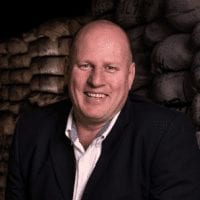
Jaco Maass is the General Manager of SHIFT DX, an industry leader in digital transformation in the agriculture supply chain. The BKB Group established the company to assist itself and the livestock industry with the challenges of a digital economy and the opportunities of Industry 4.0. Shift DX makes technologies such as the Internet of Things, Artificial Intelligence, Blockchain technology and platform market places accessible to the primary farmer. With the reality of an 80% increase in protein production over the next 30 years, Jaco has first hand experience of the pressure on supply chains how the industry is shaping up to deal with the challenges. Jaco Maass grew up in the Western Cape in South Africa. He has a degree in Agricultural Administration and MBA from Stellenbosch University. Jaco started his career in the citrus industry, after which he became a corporate banker for ten years. He joined BKB in 2010 with a focus on developing commodity-based finance products. In in 2013 BKB he saw potential in his love for data analytics, and he was appointed as the CIO. Under his leadership, the ICT Department of BKB became a world leader as a business enabler and industry disruptor. His entrepreneurial skills have led to the establishment of Shift DX in 2019 and, in a short period, had significant influence in the agricultural community, drawing the attention of the World Economic Forum who has recognised the work of this small startup business. Connect with Jaco on LinkedIn.
